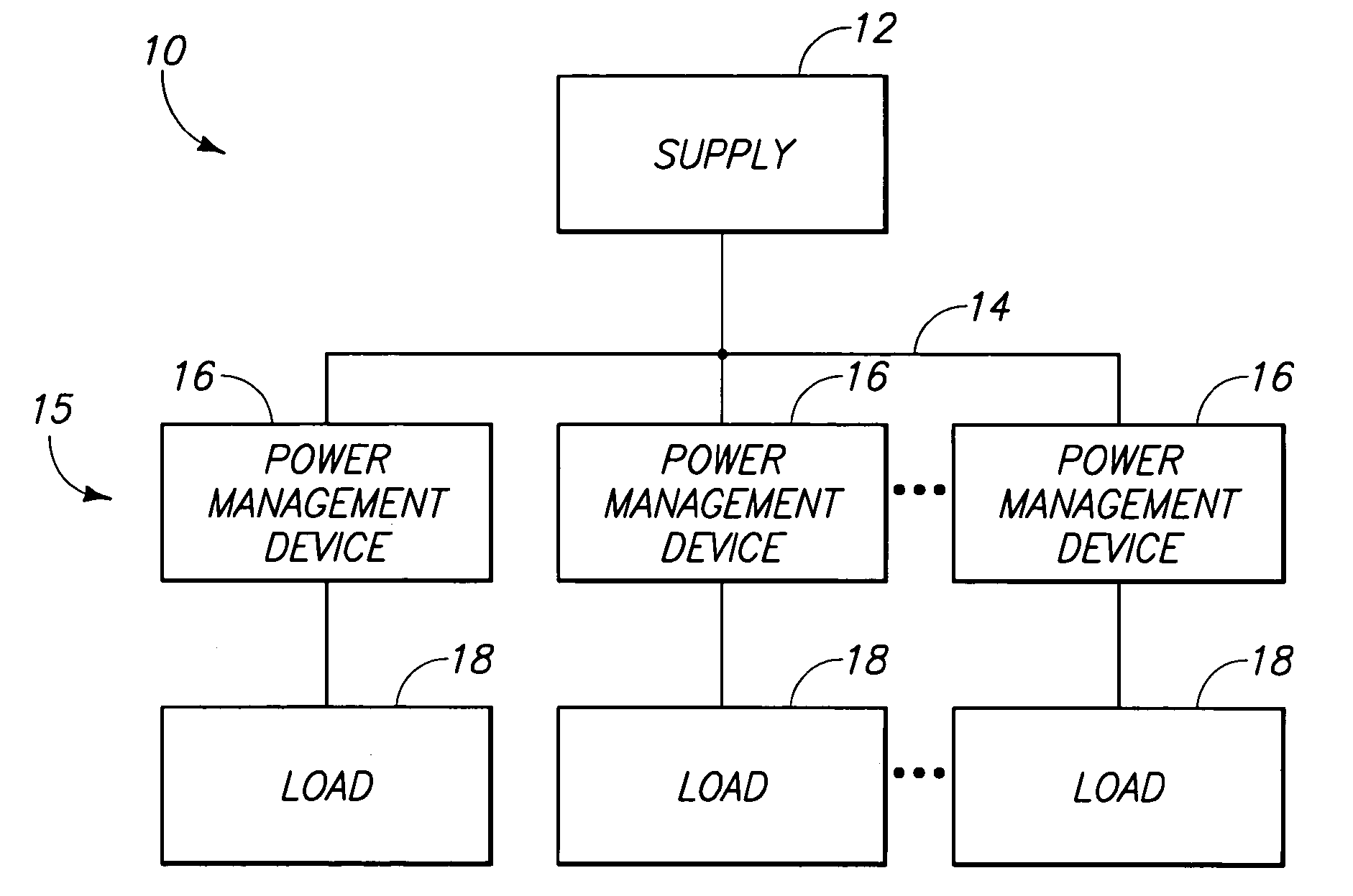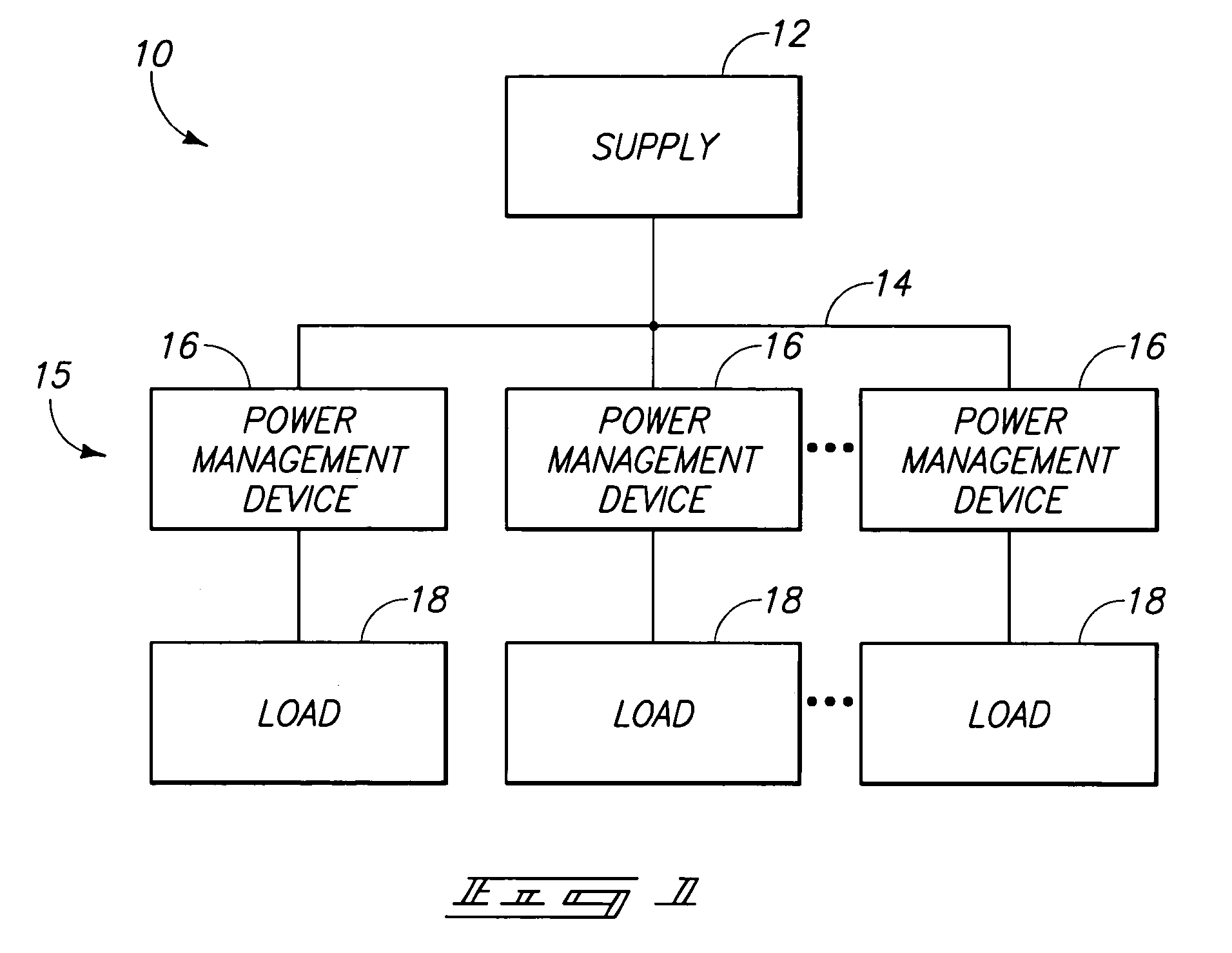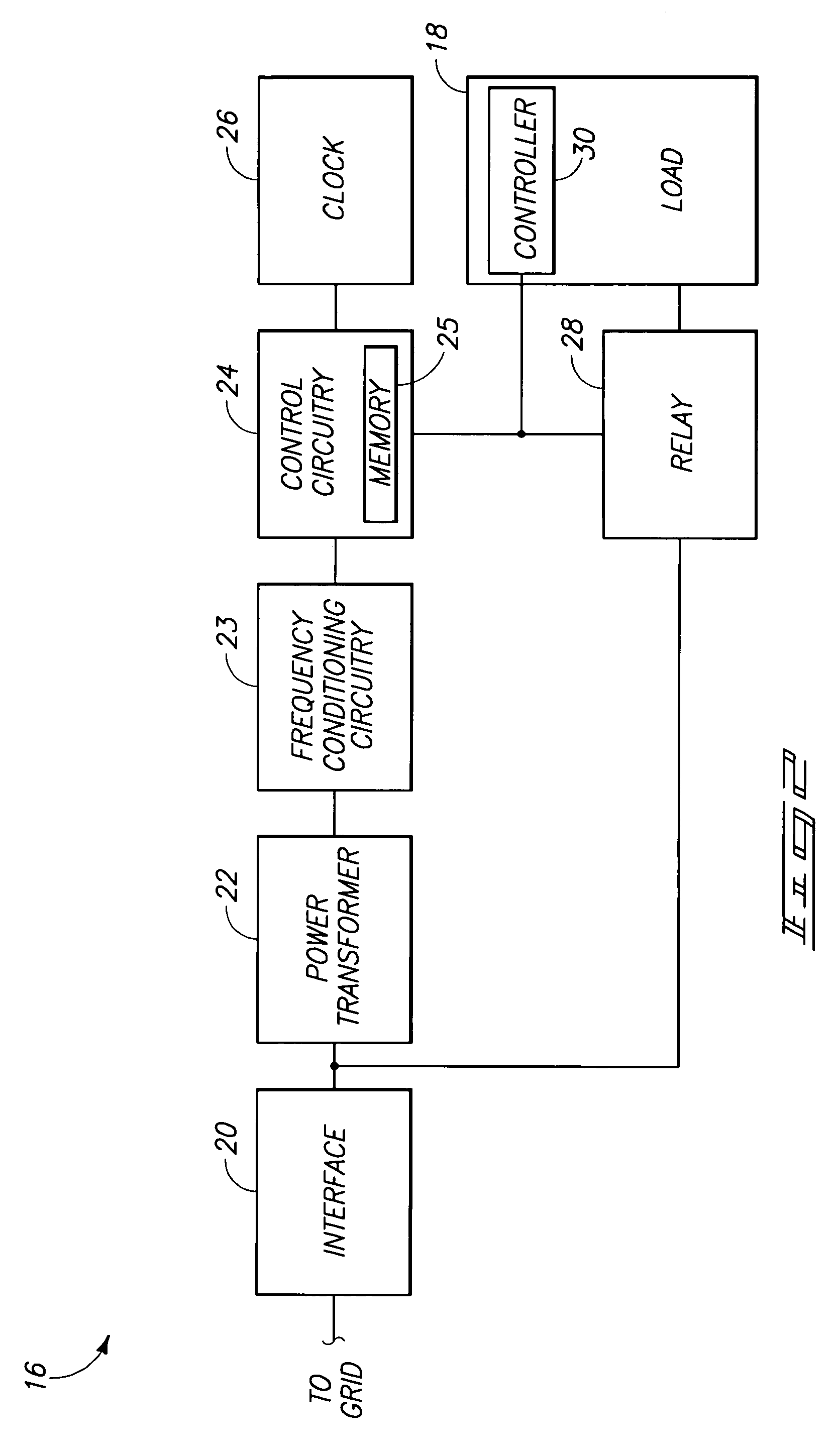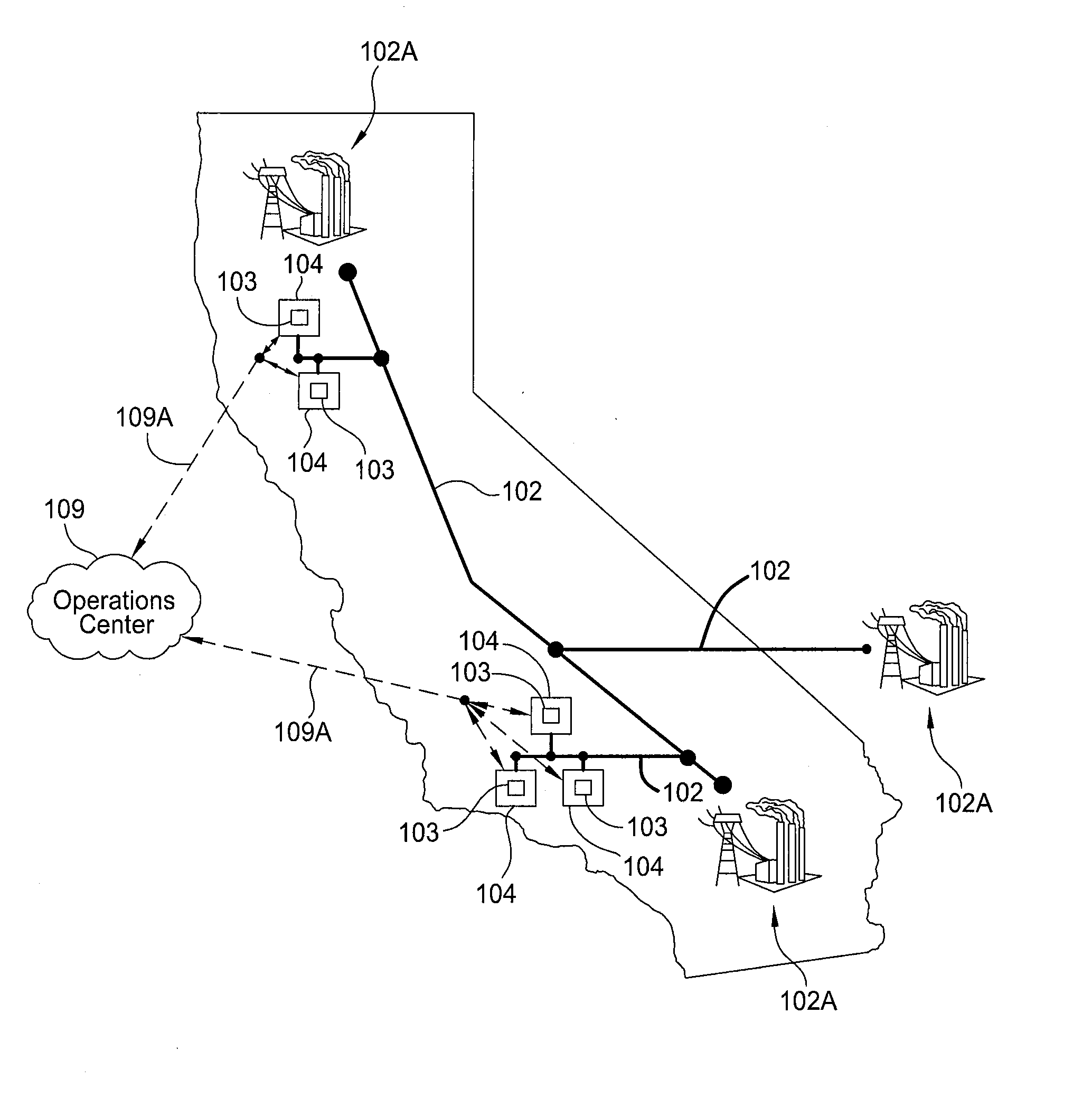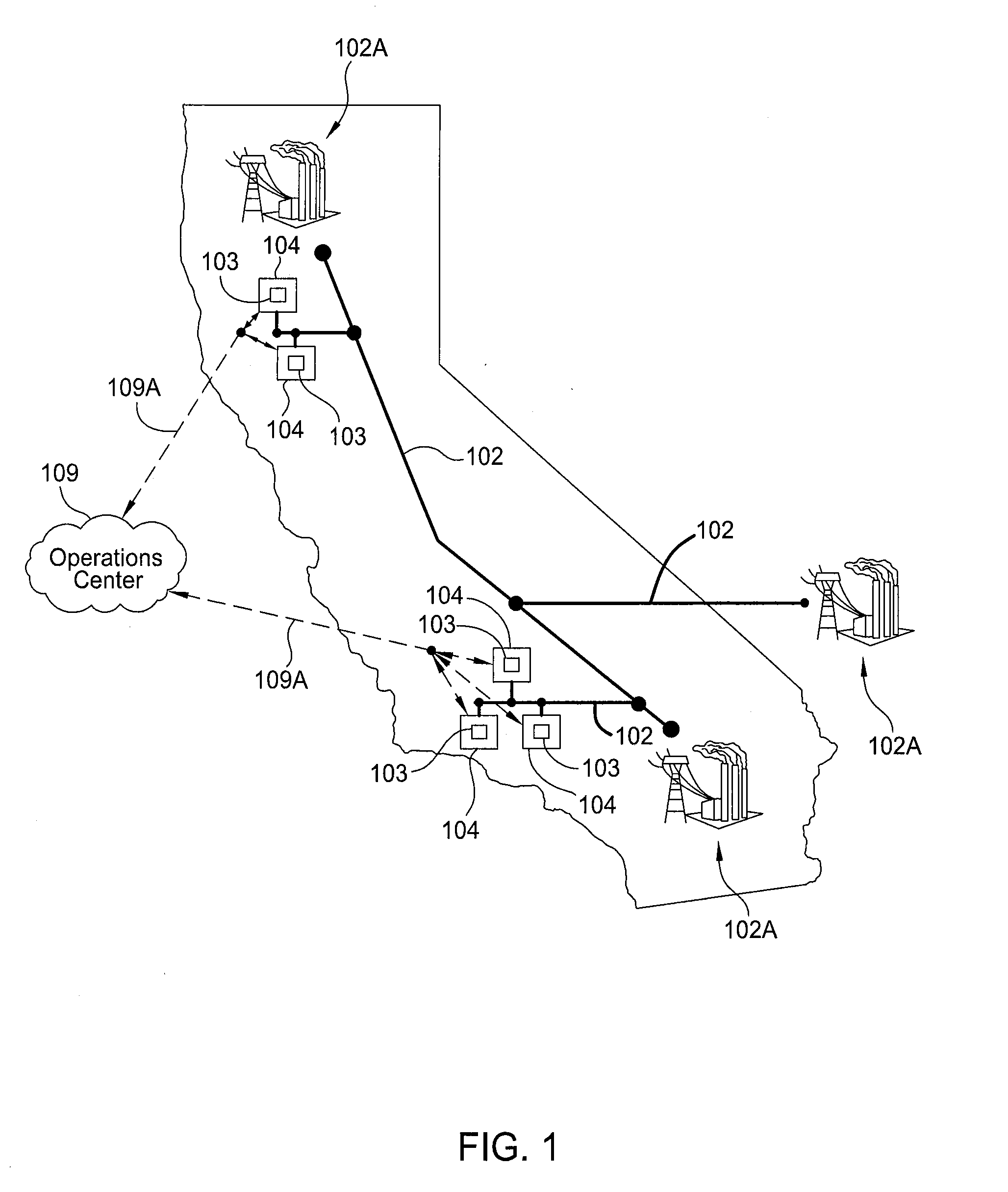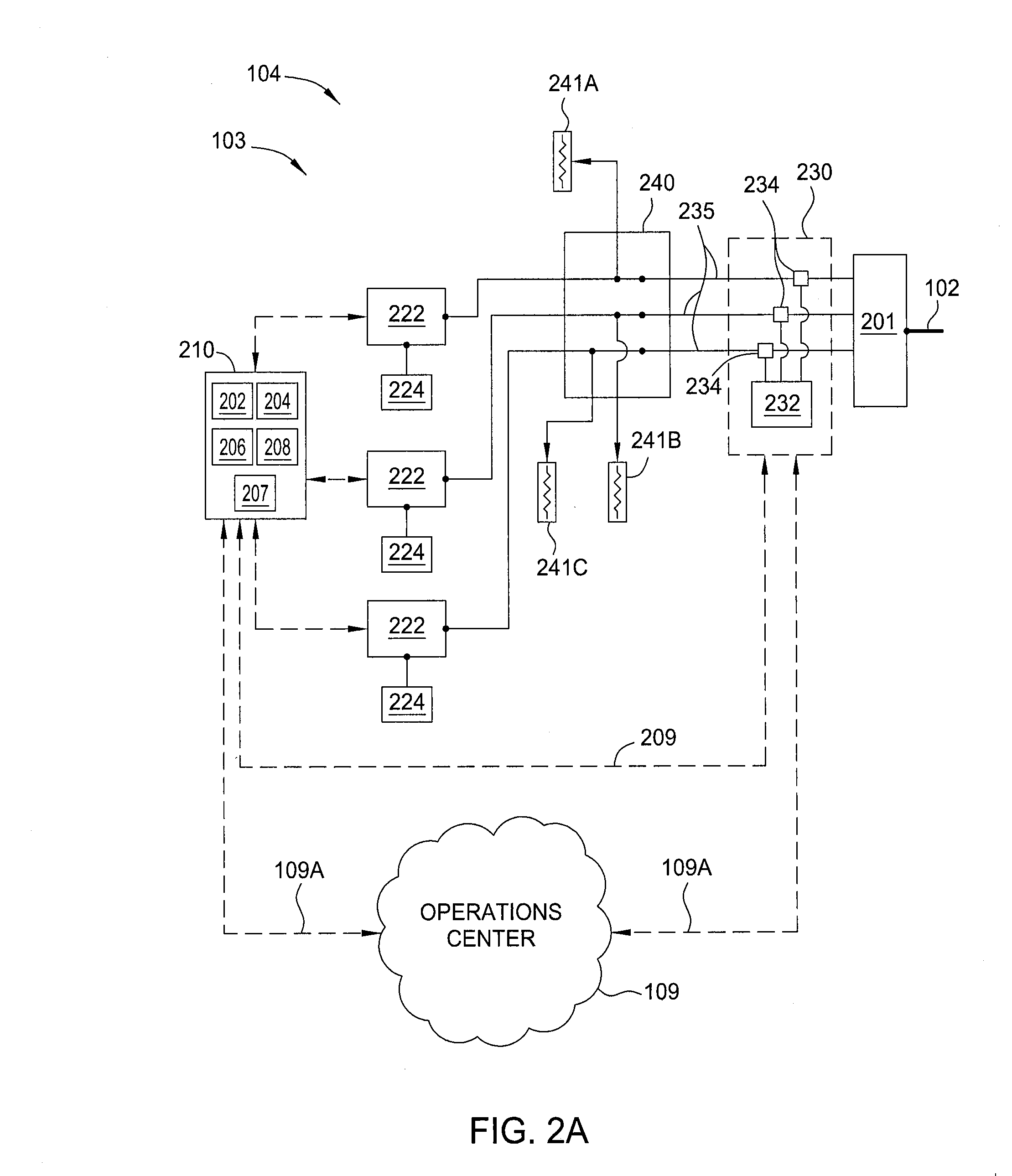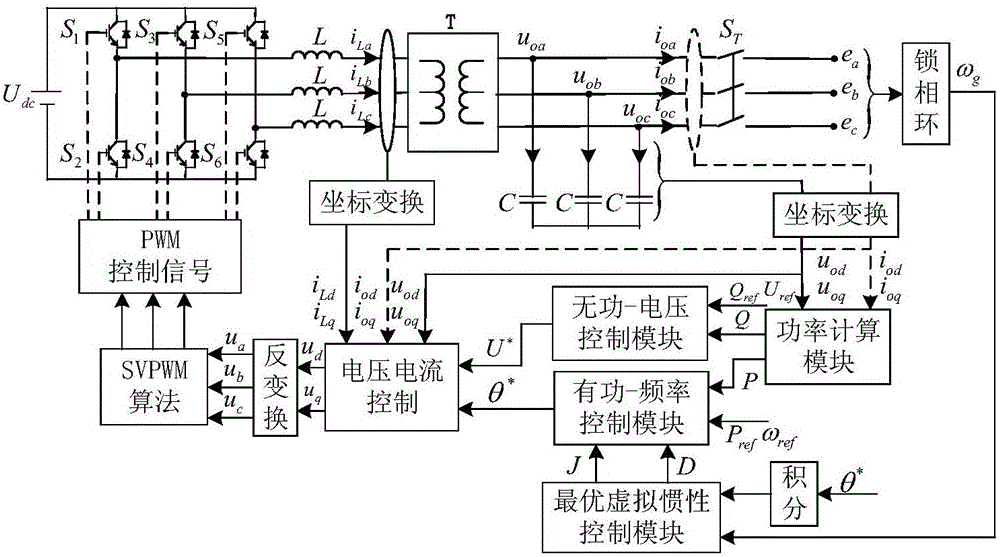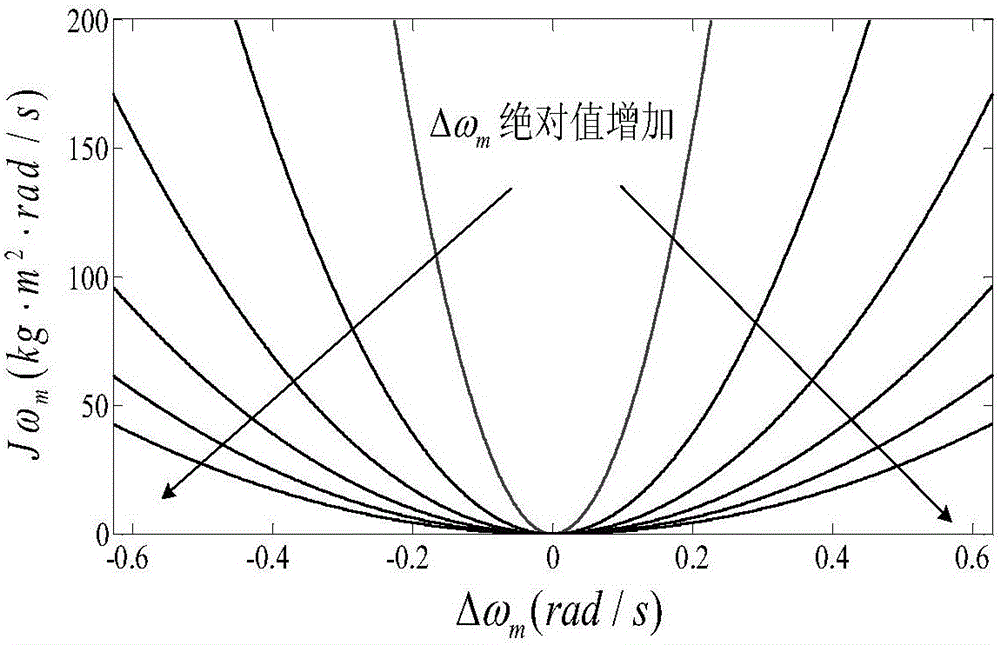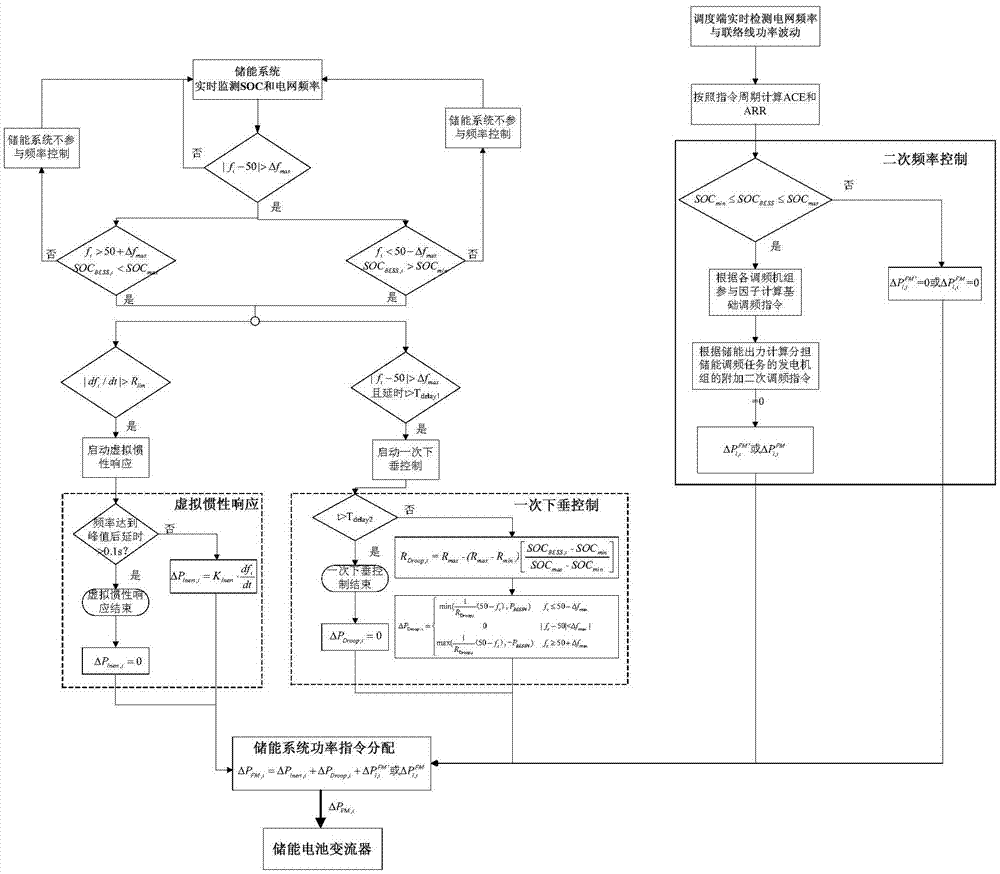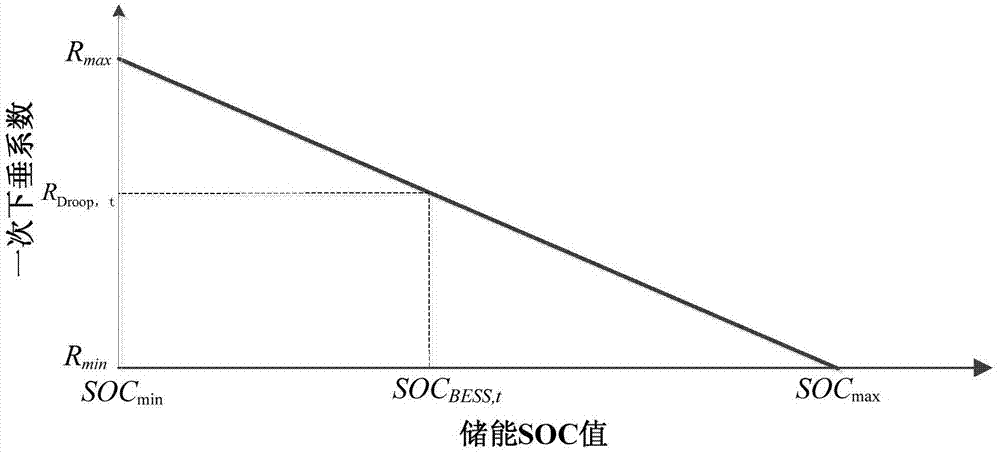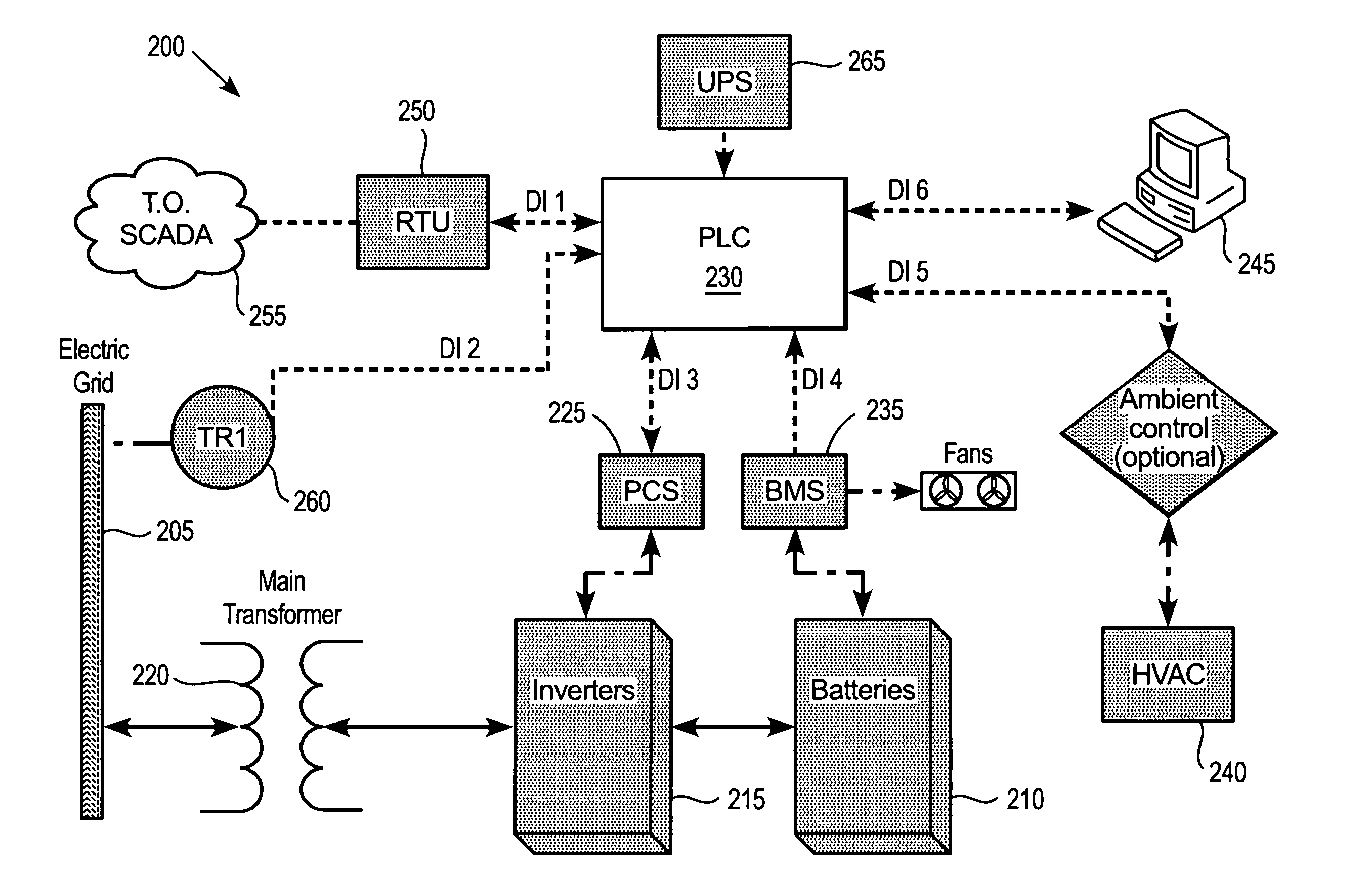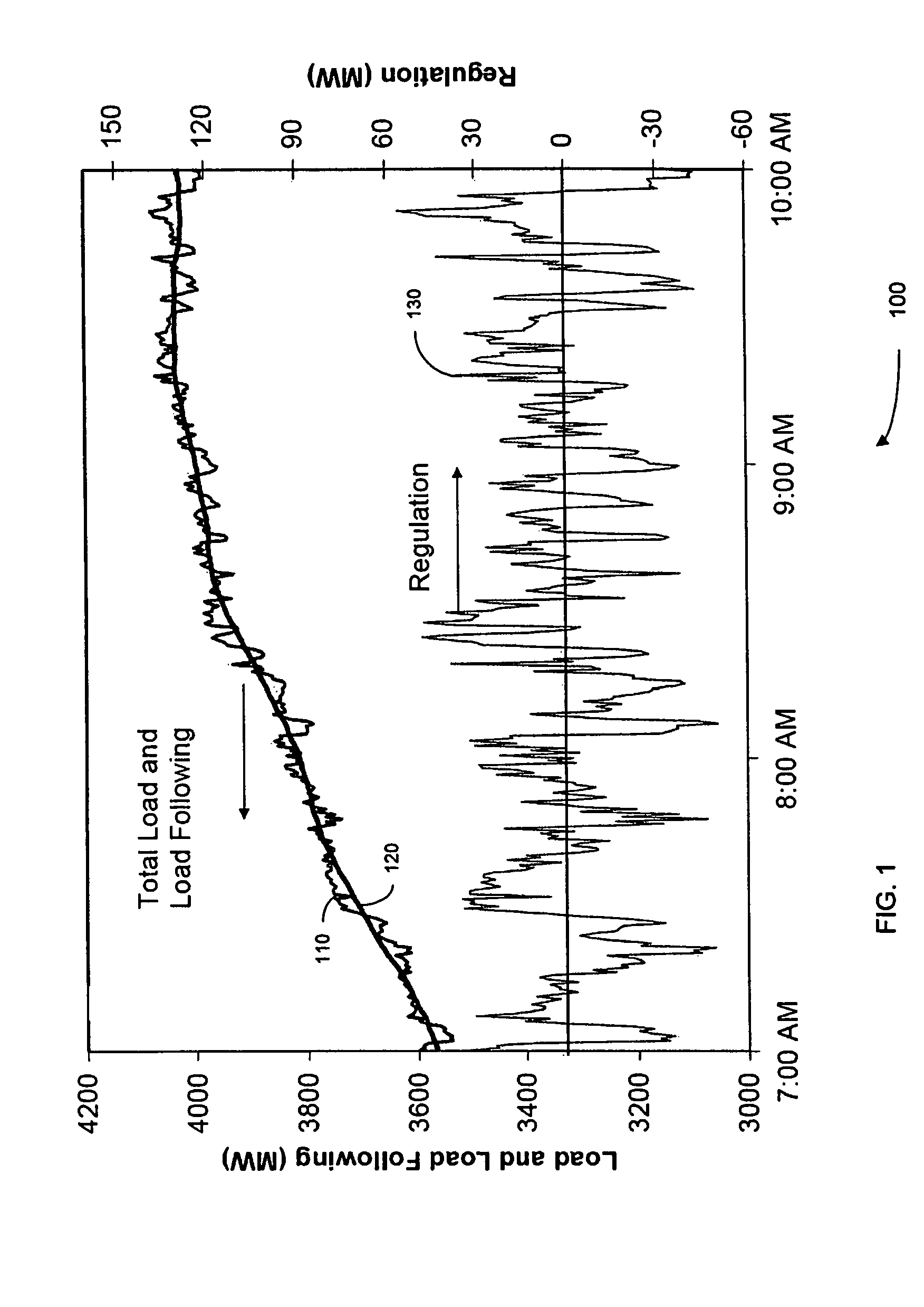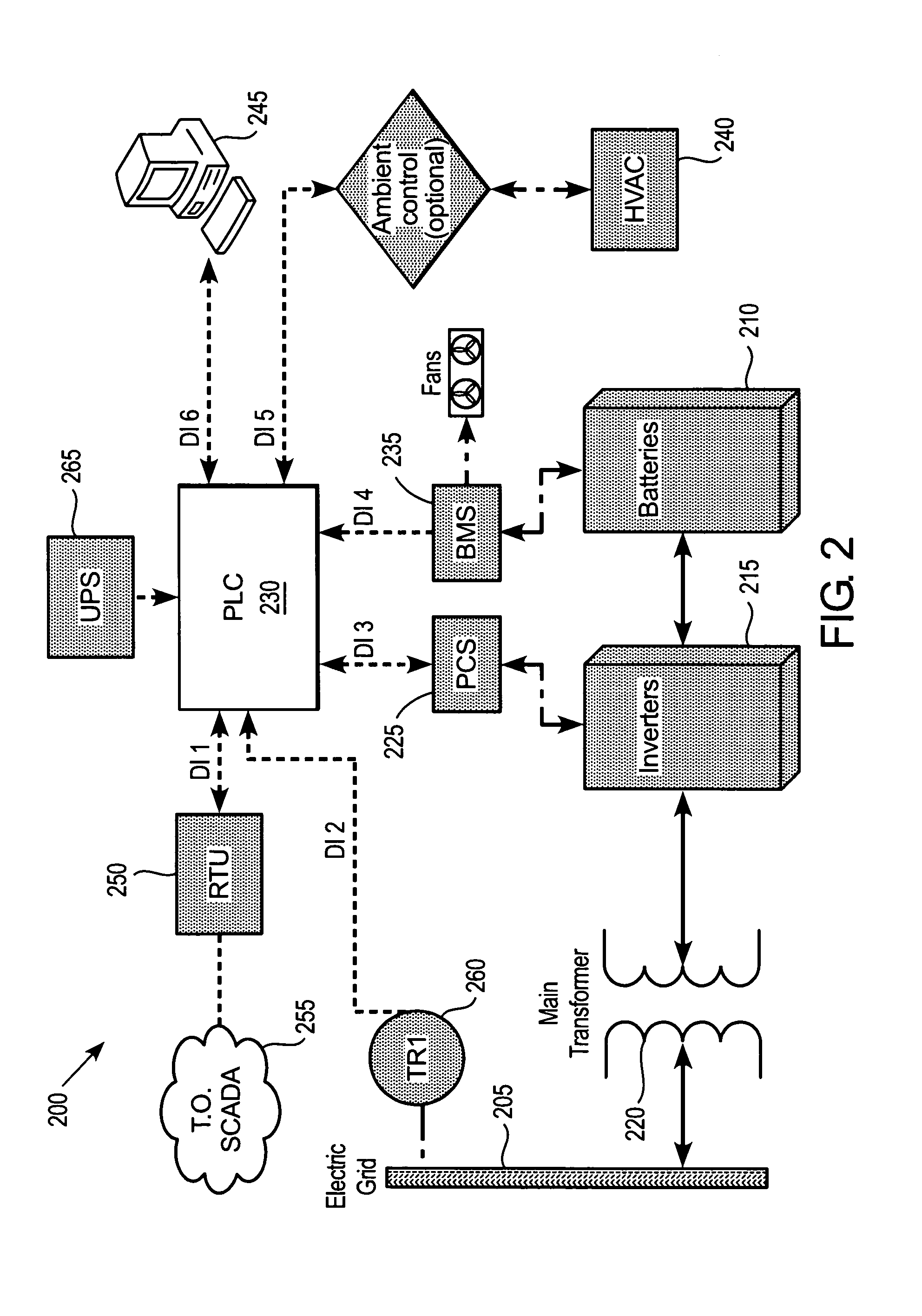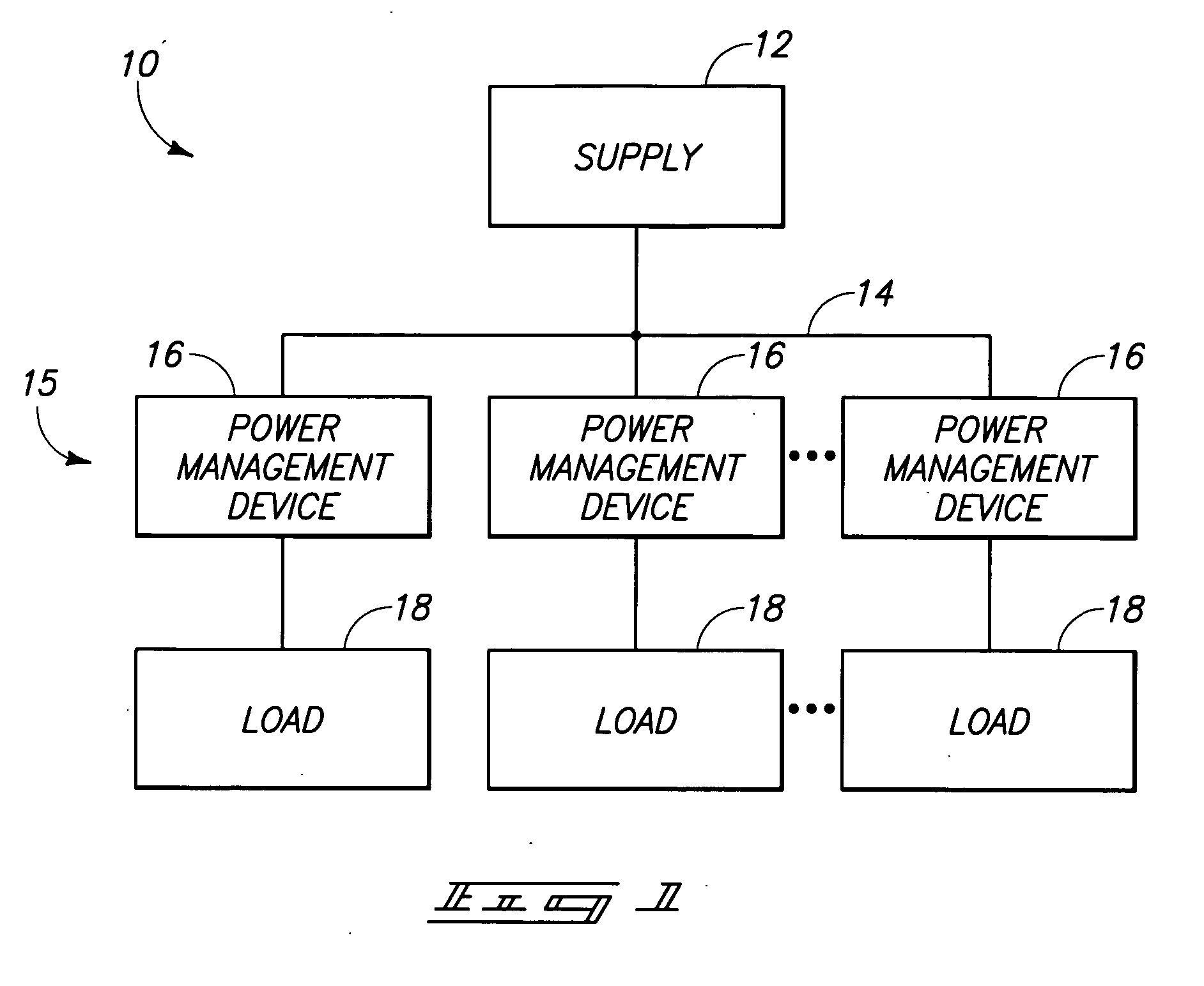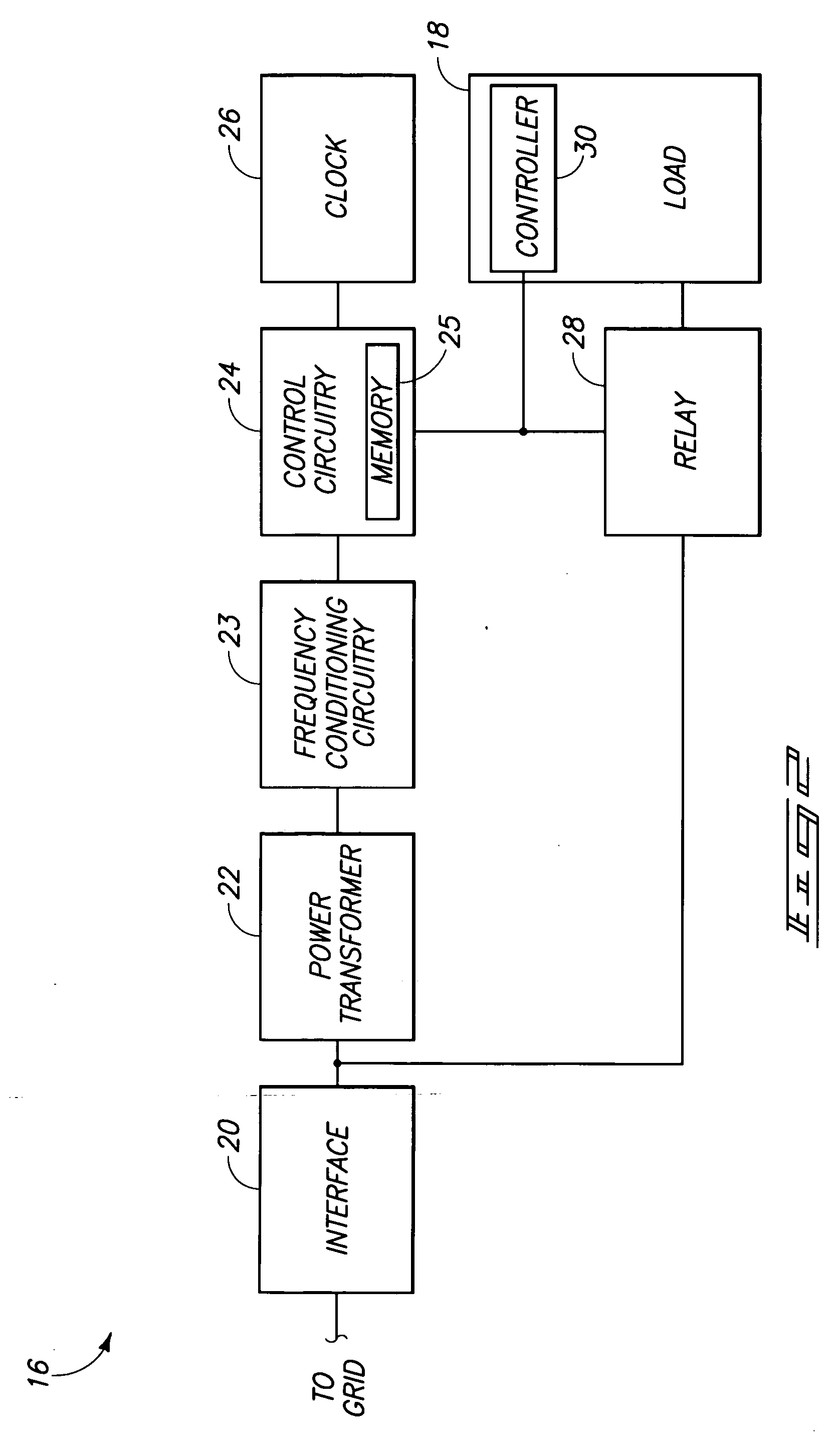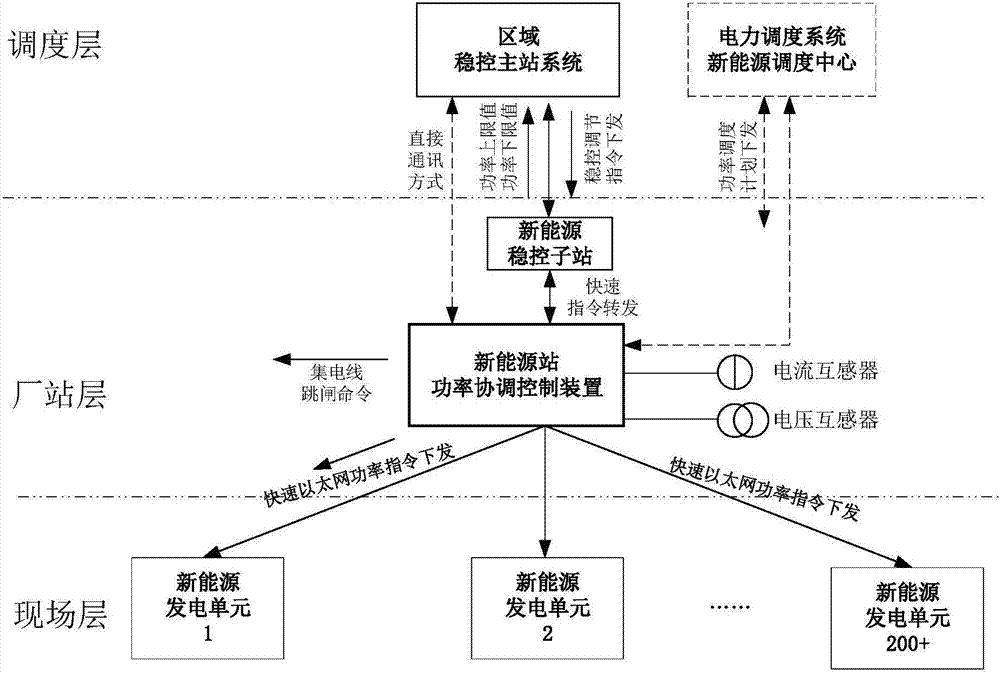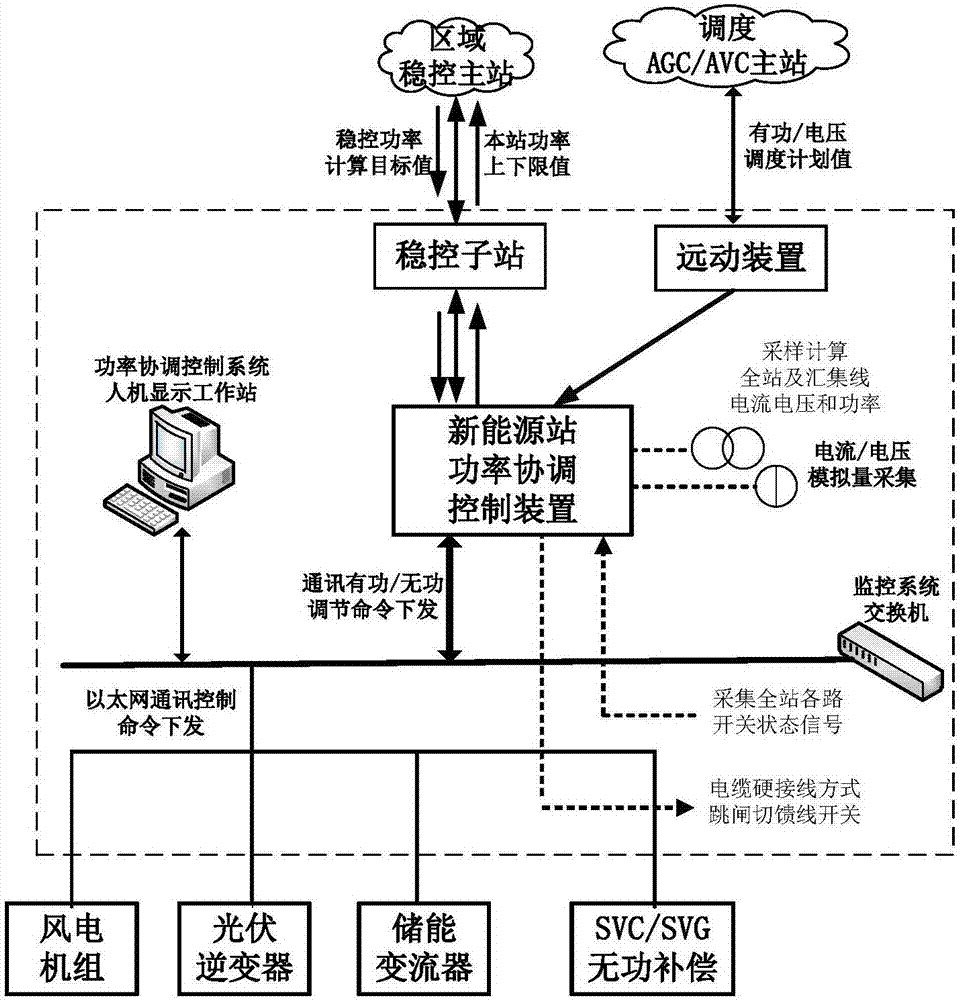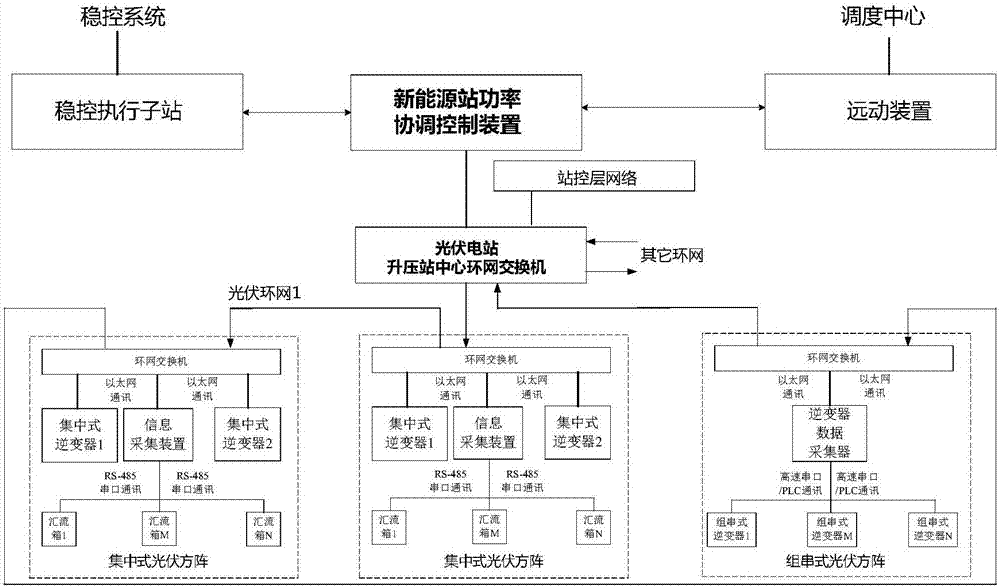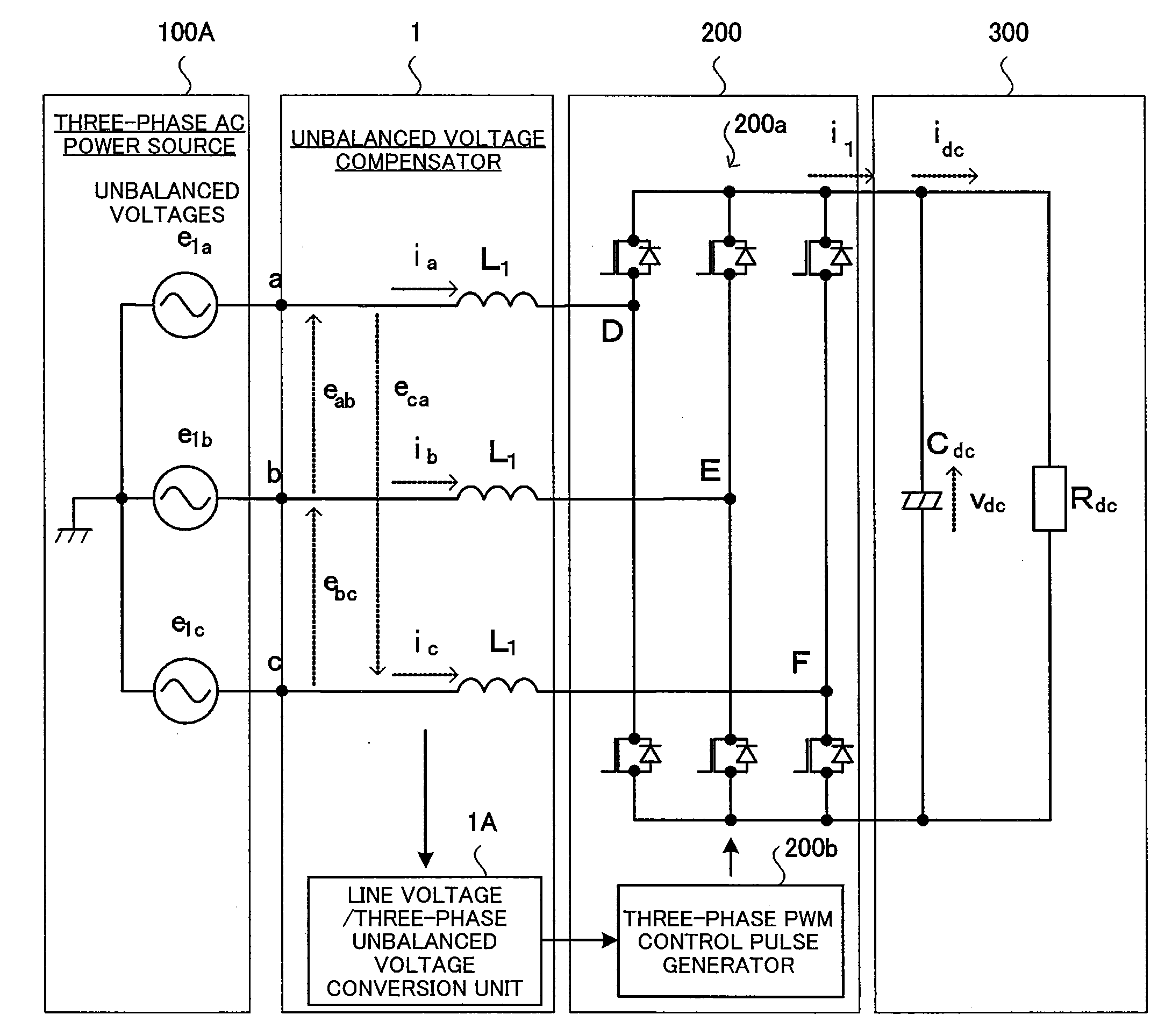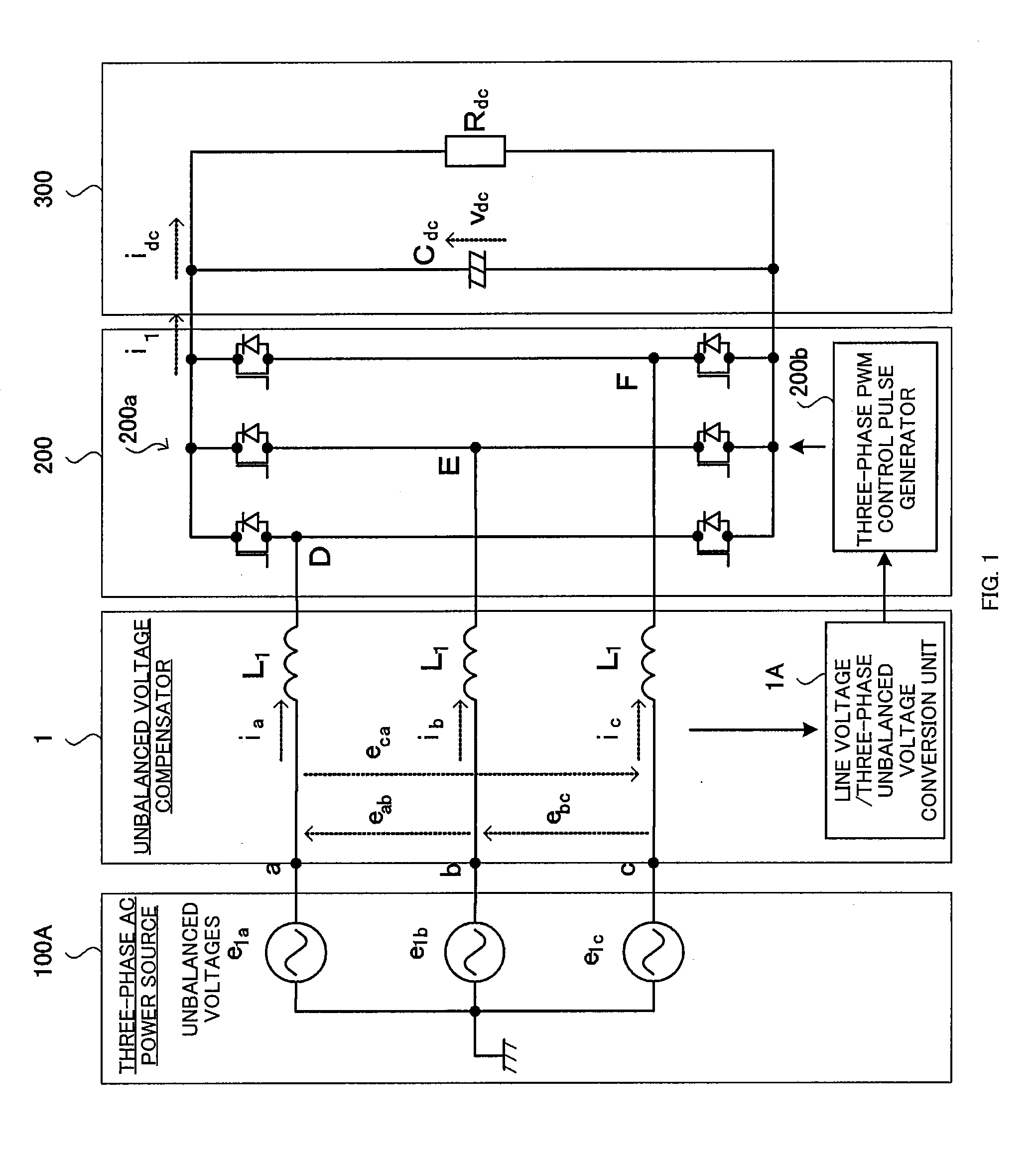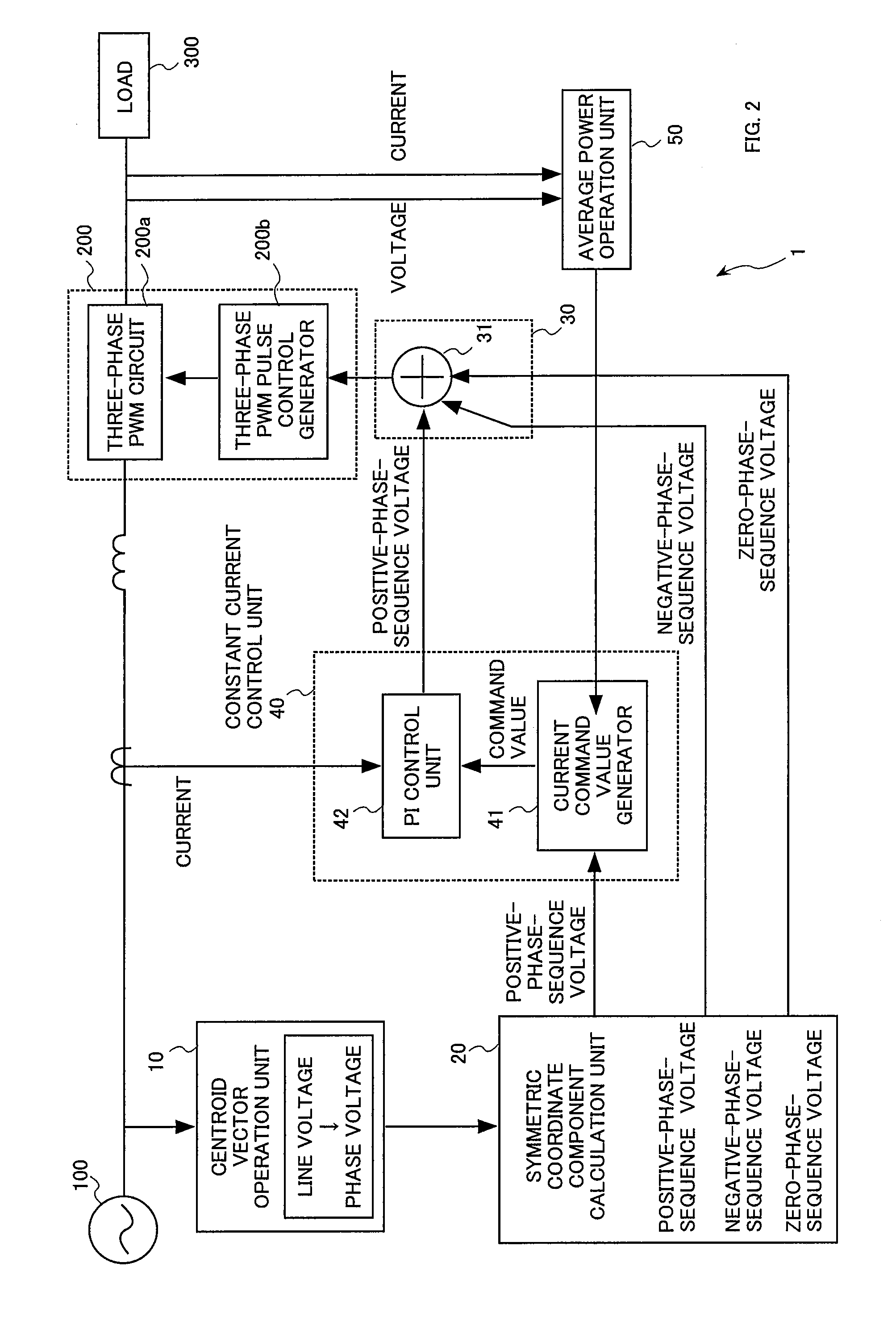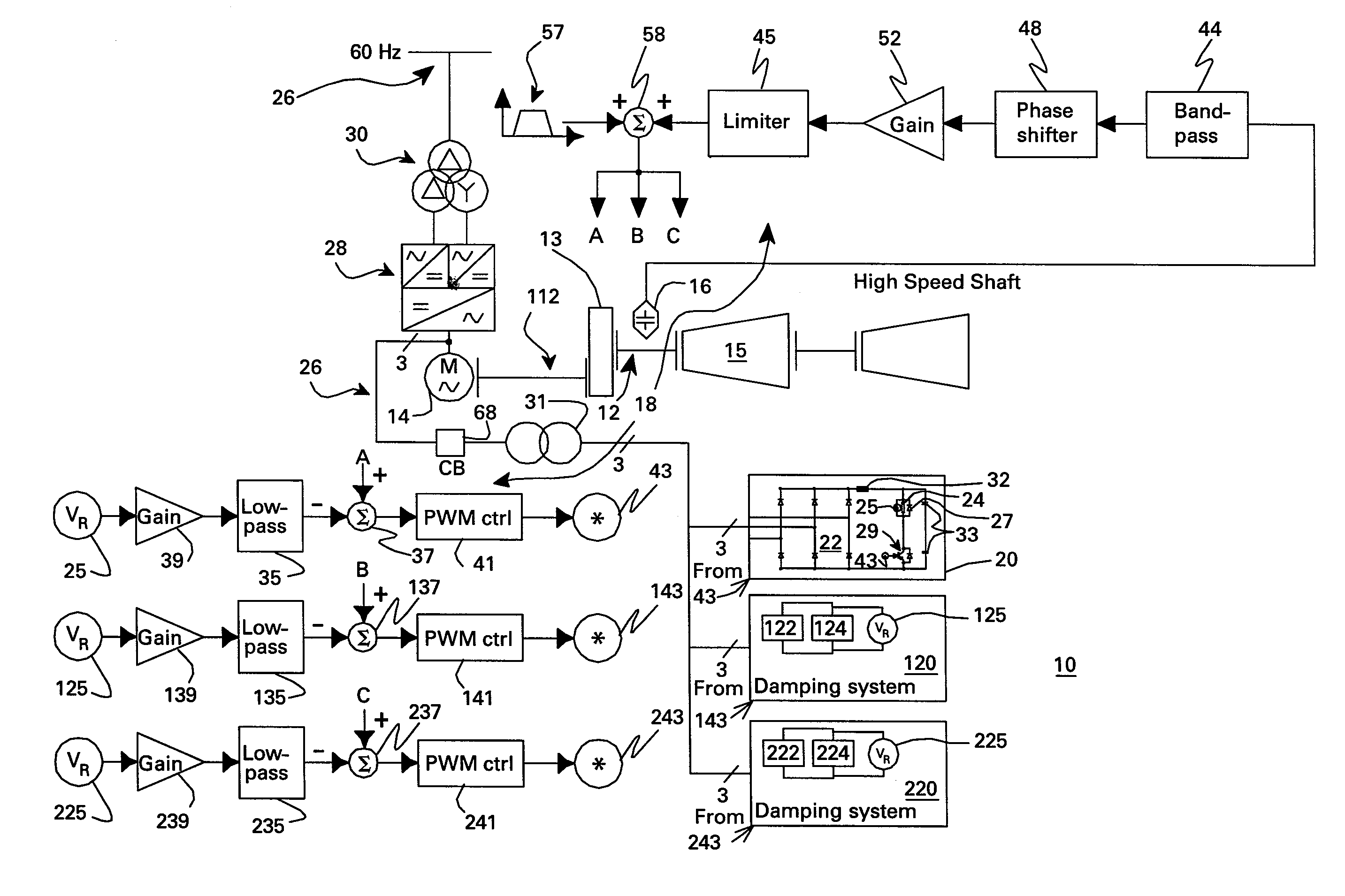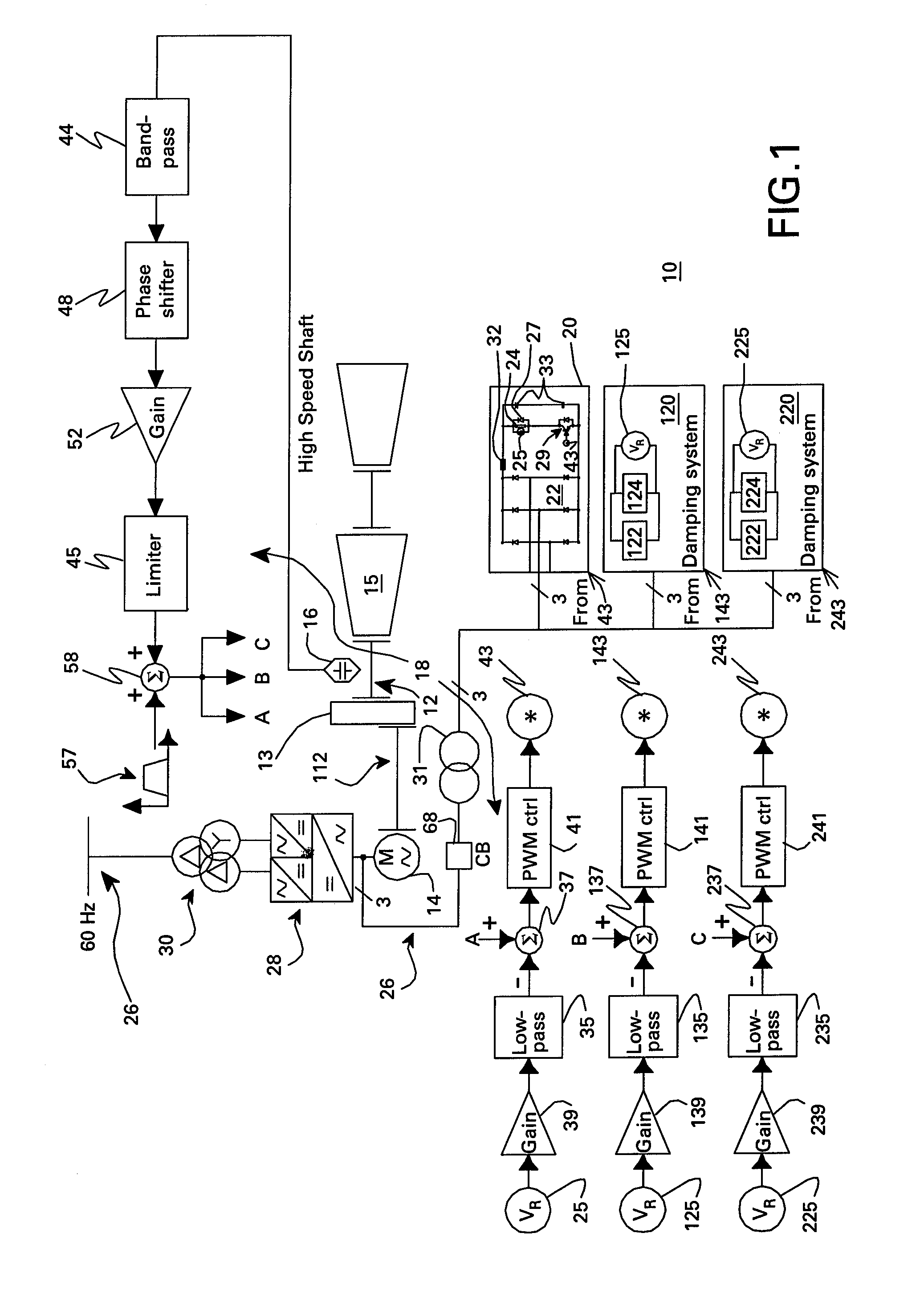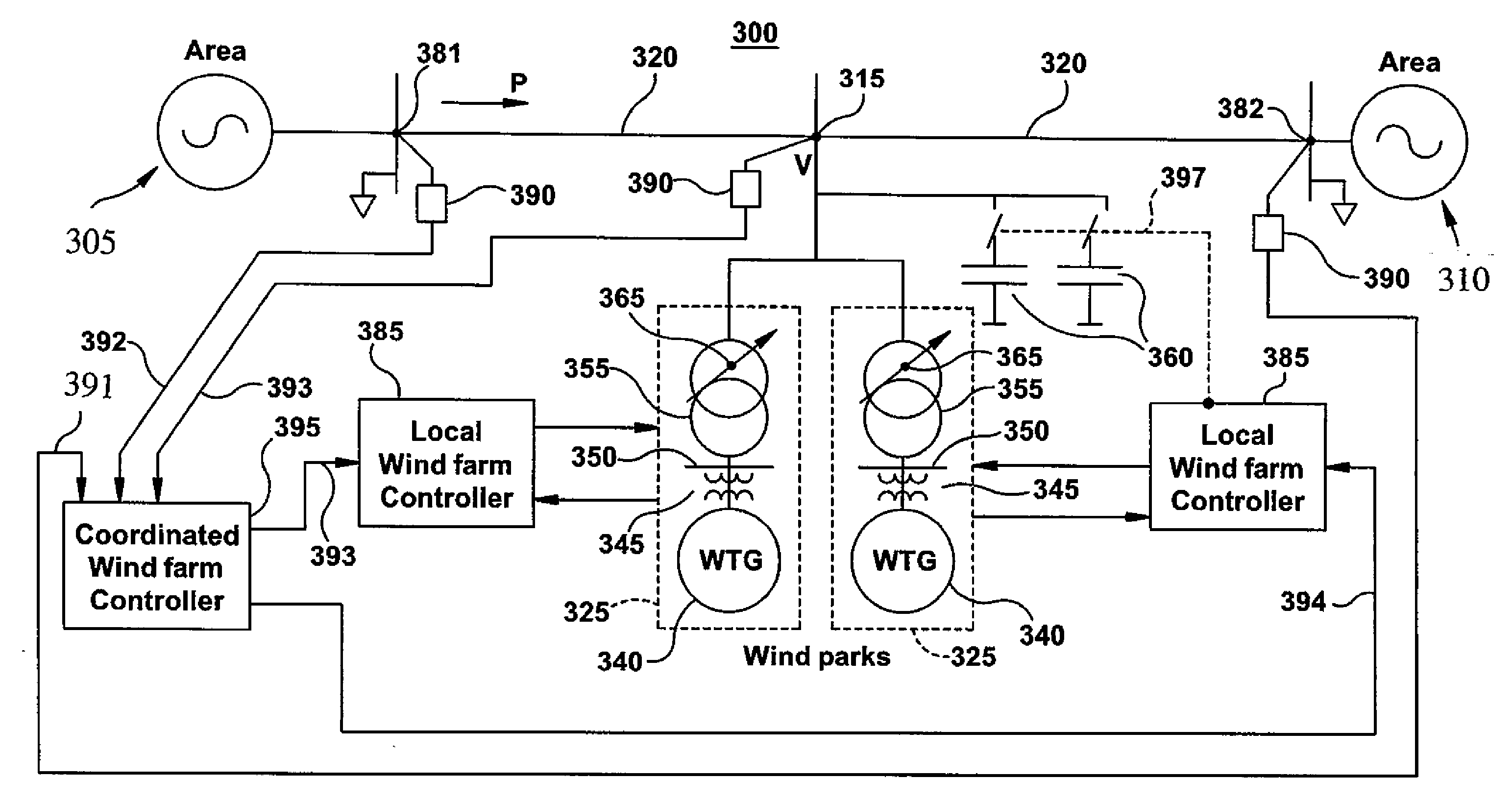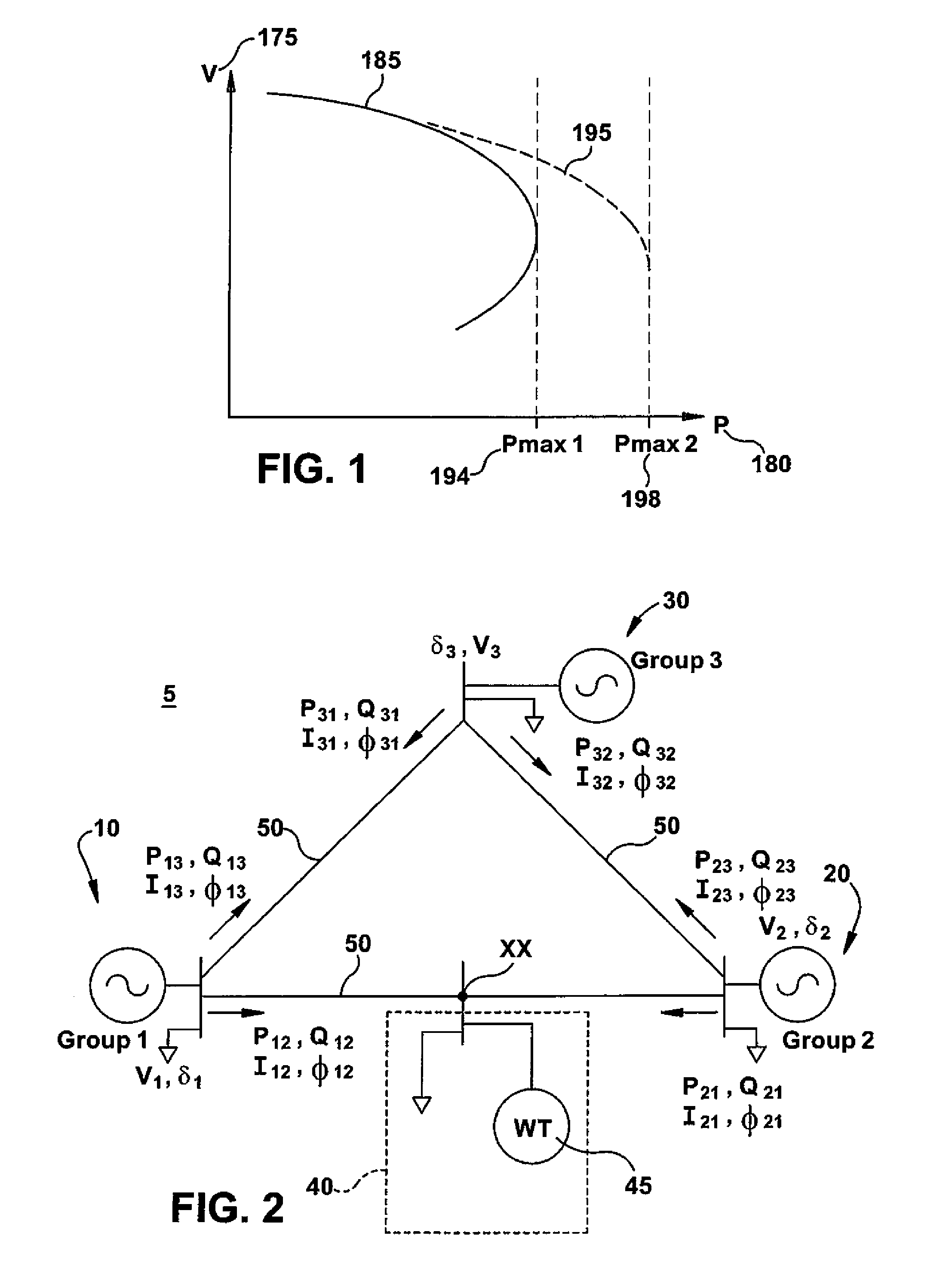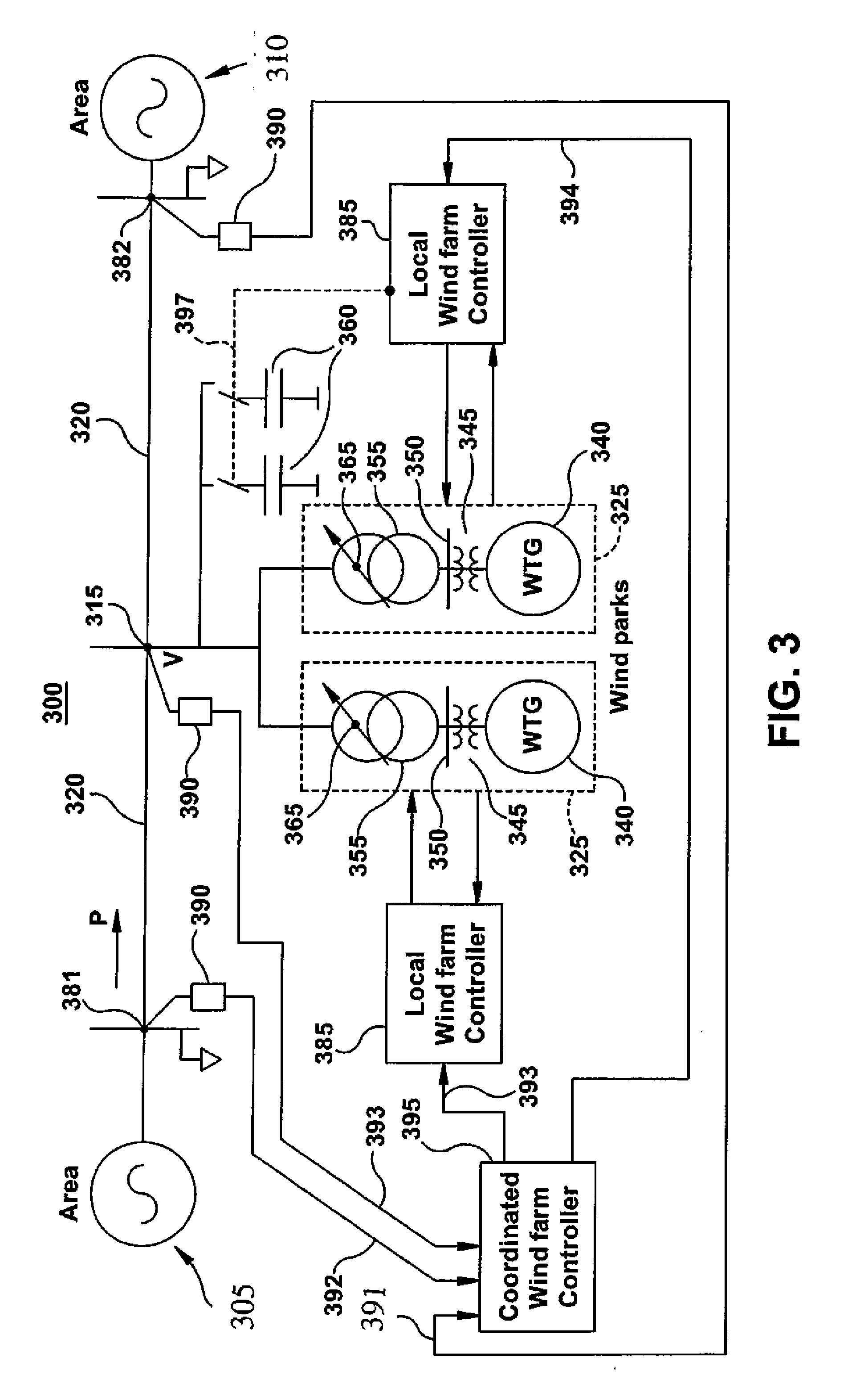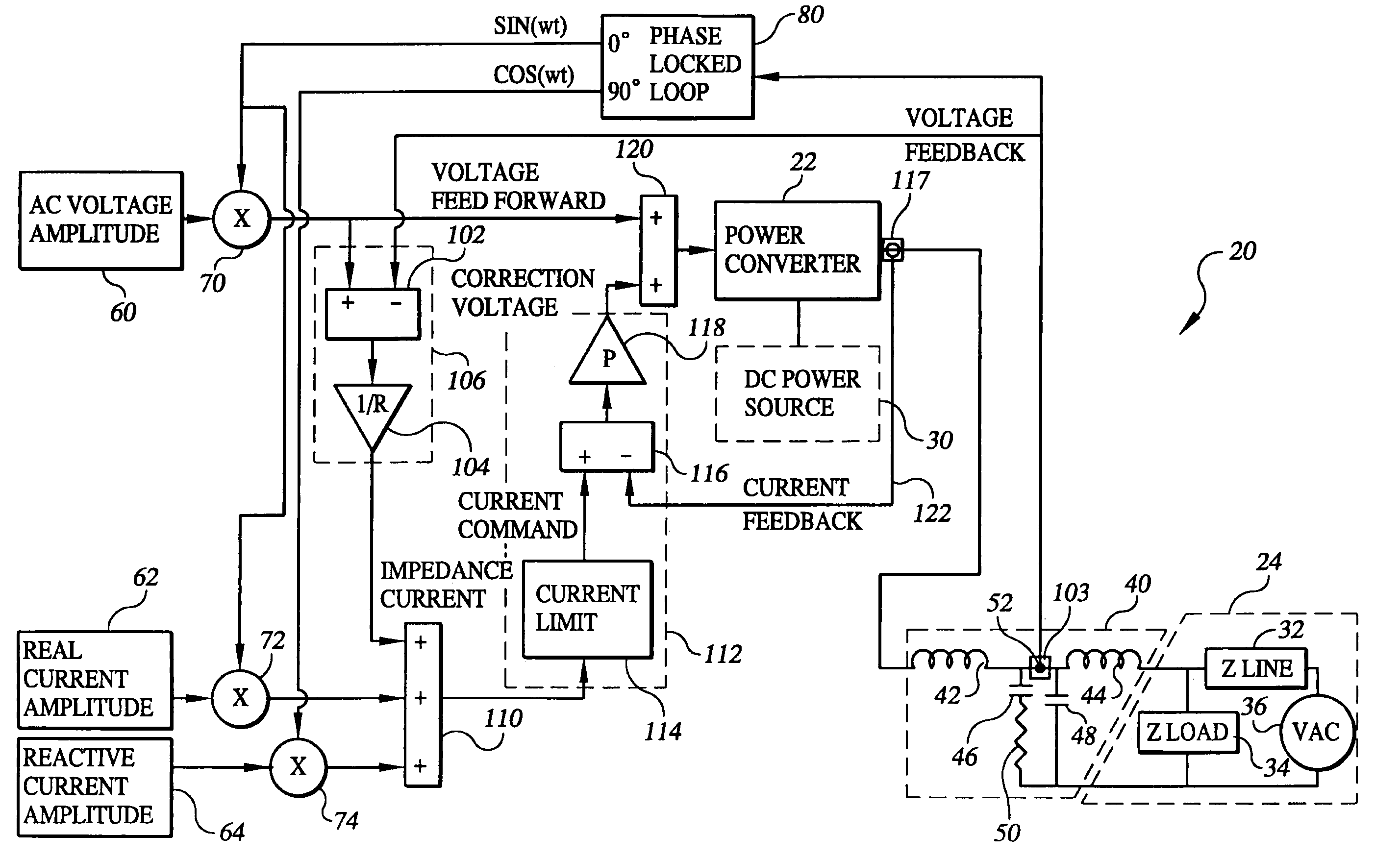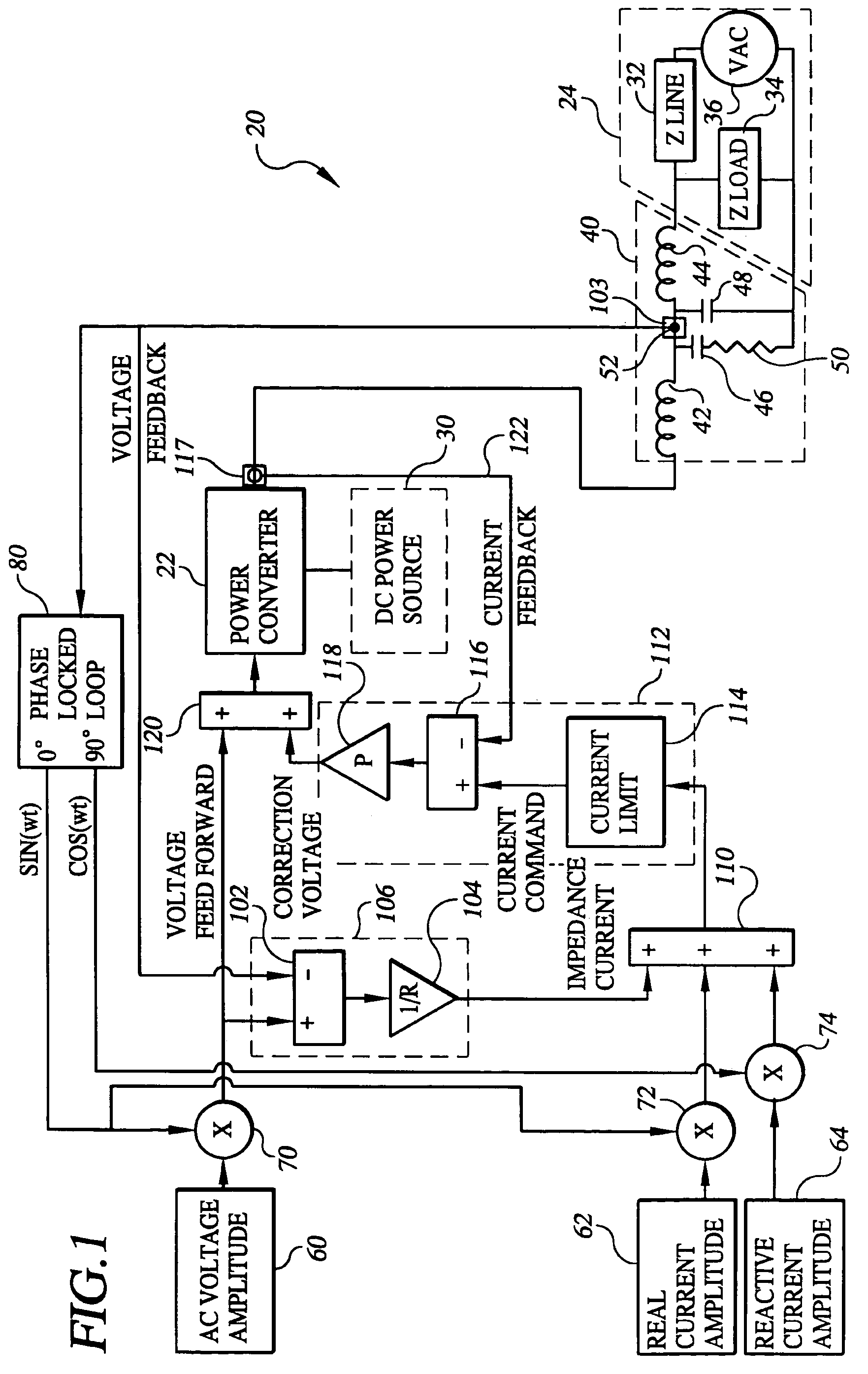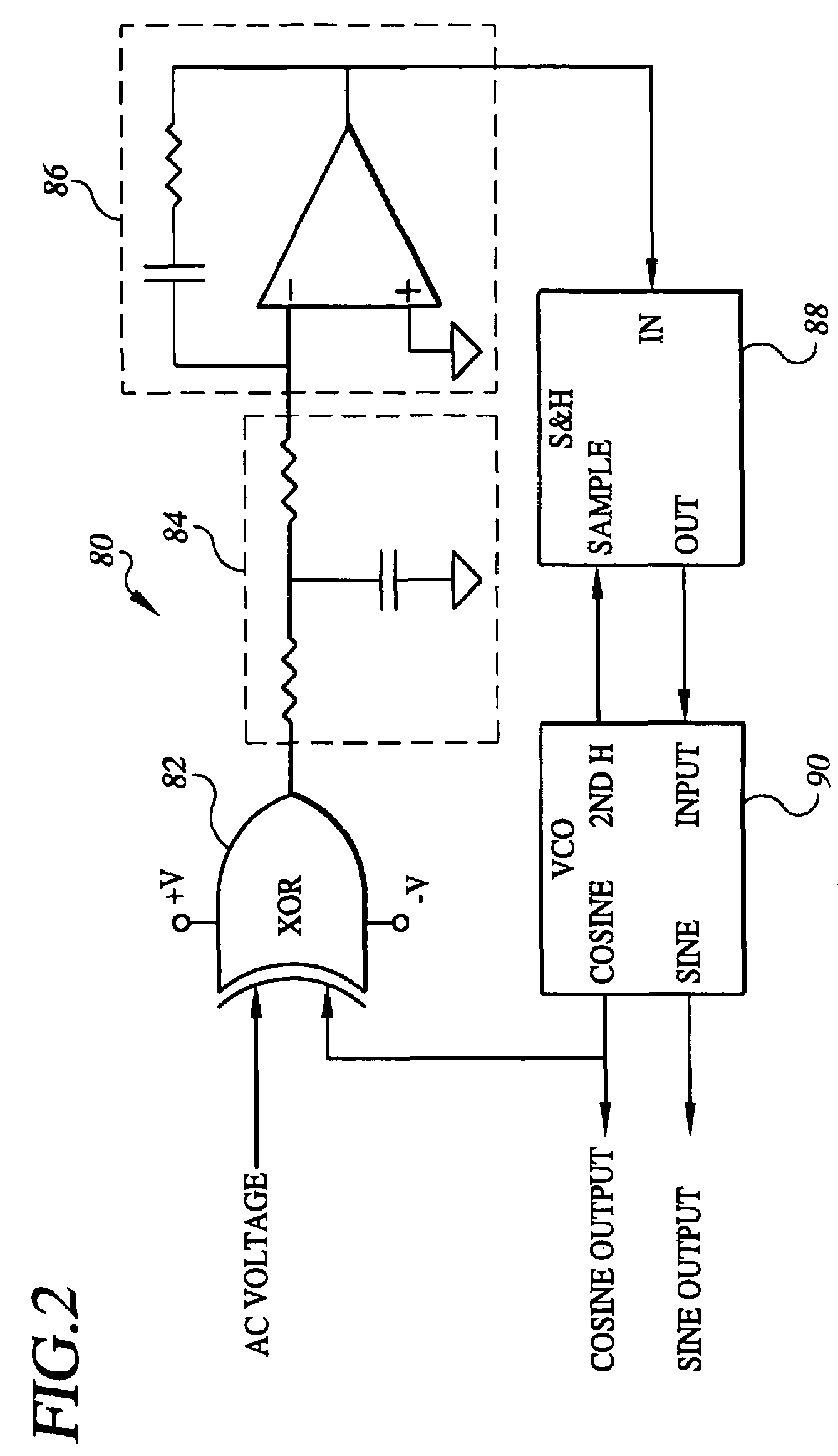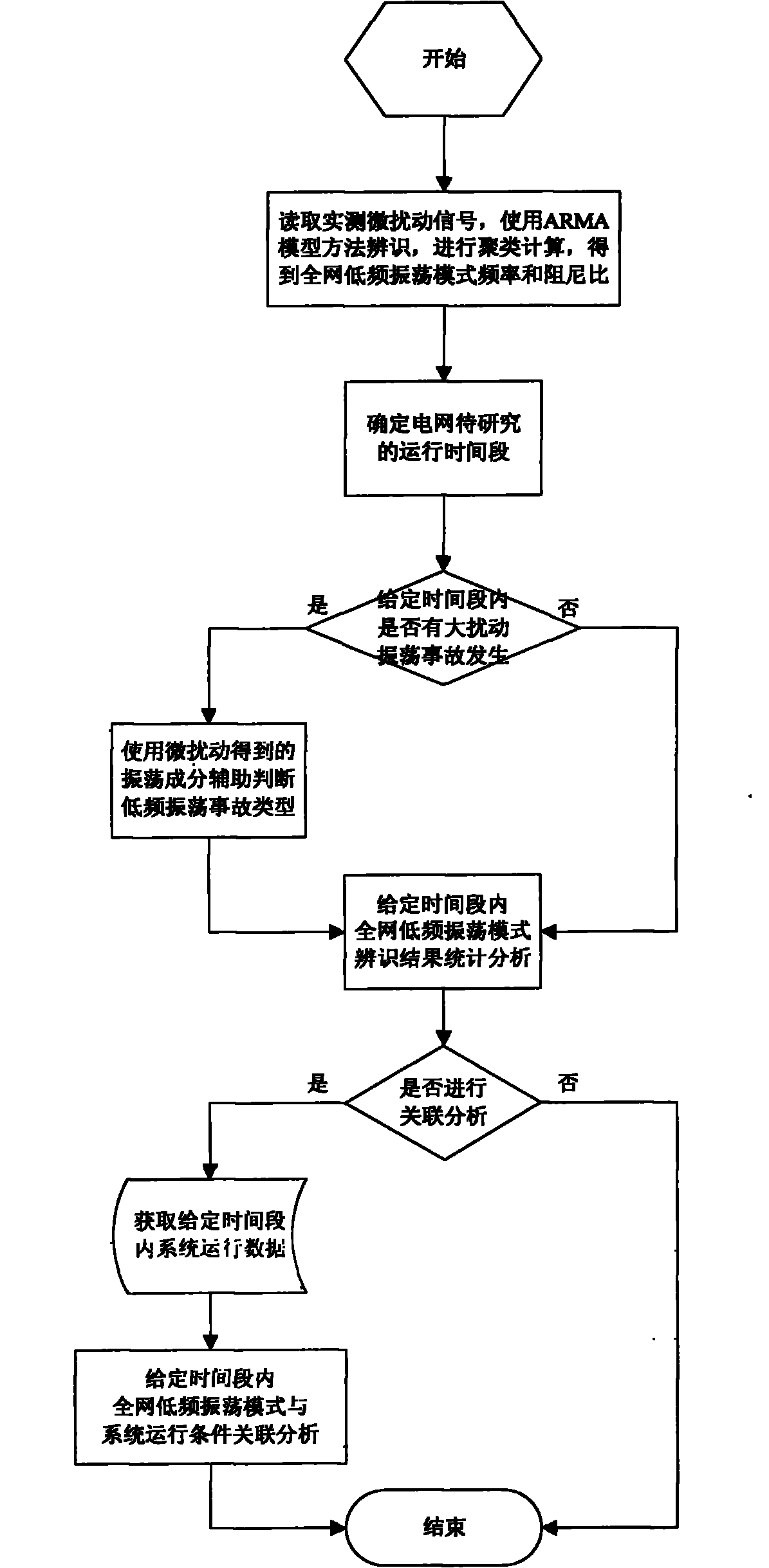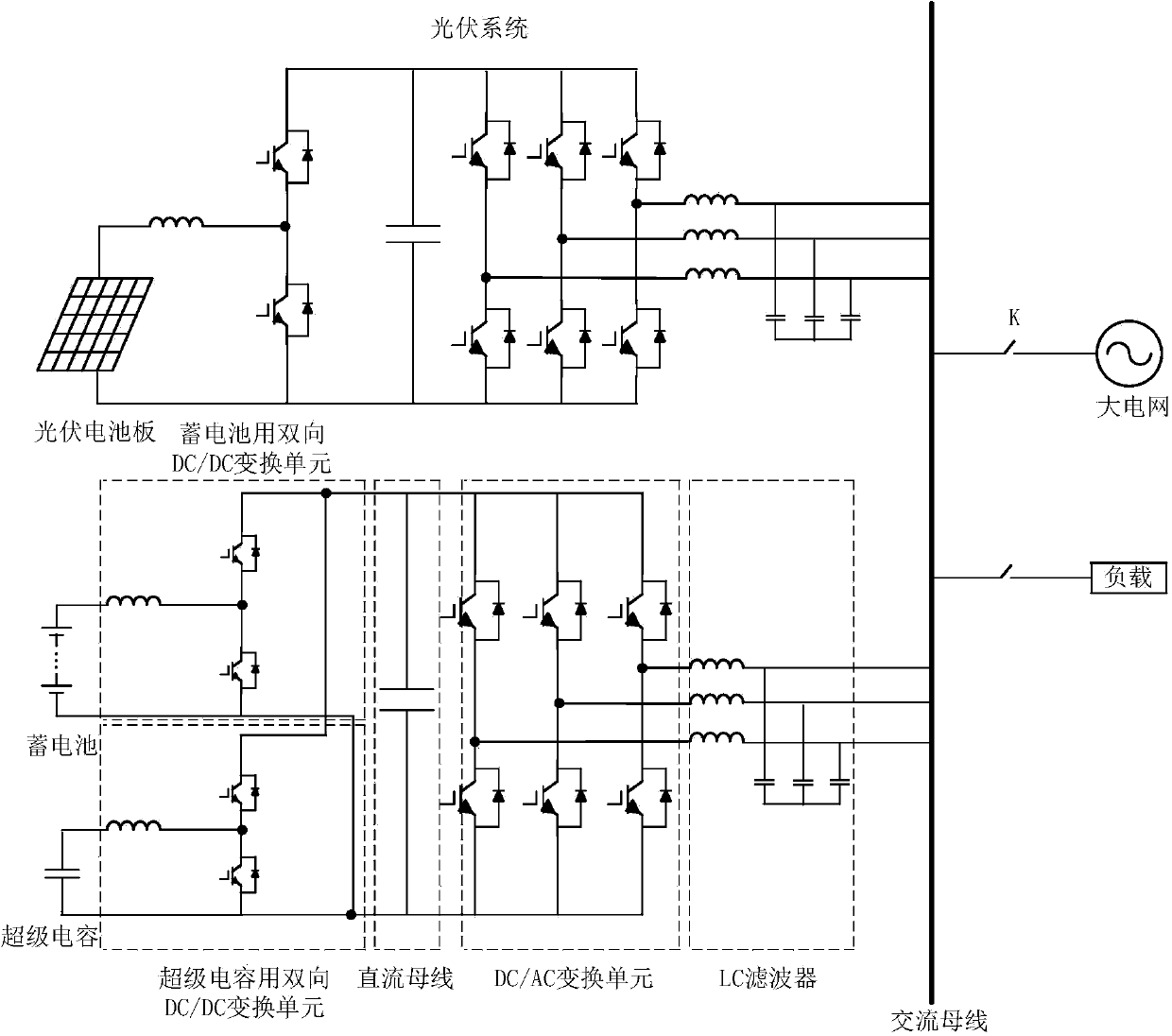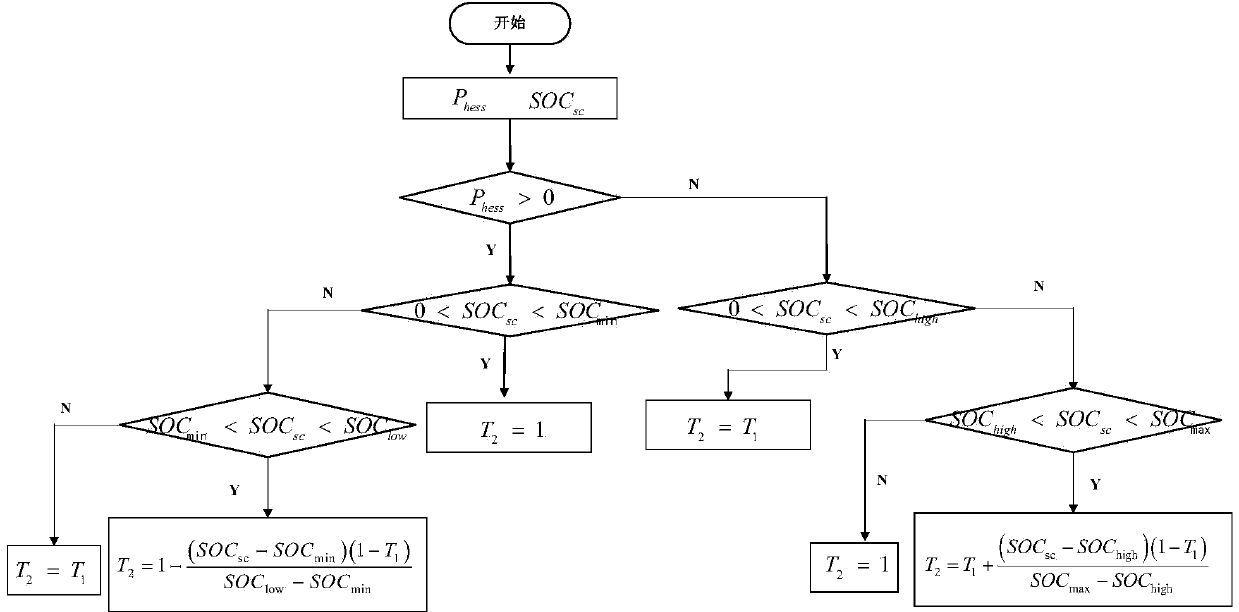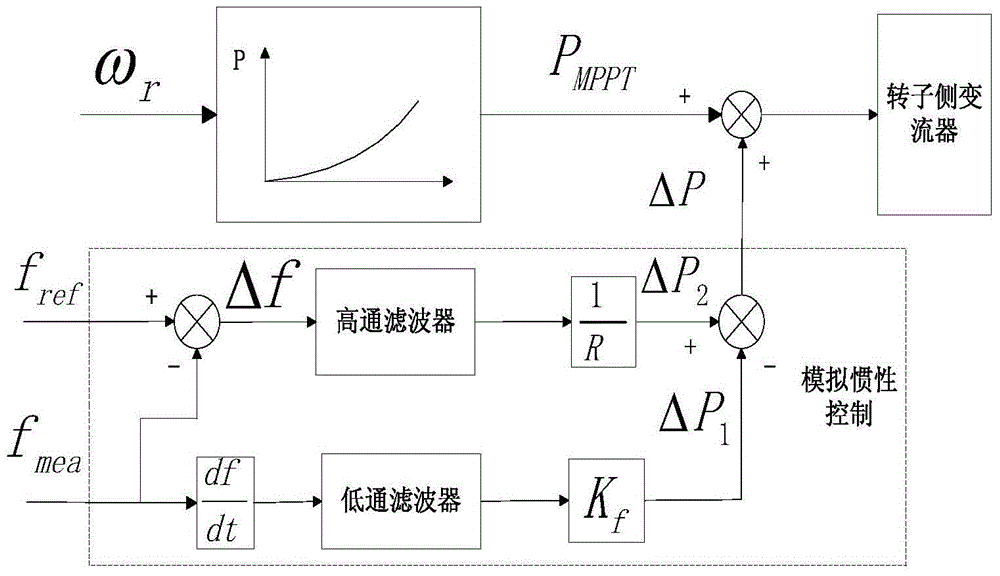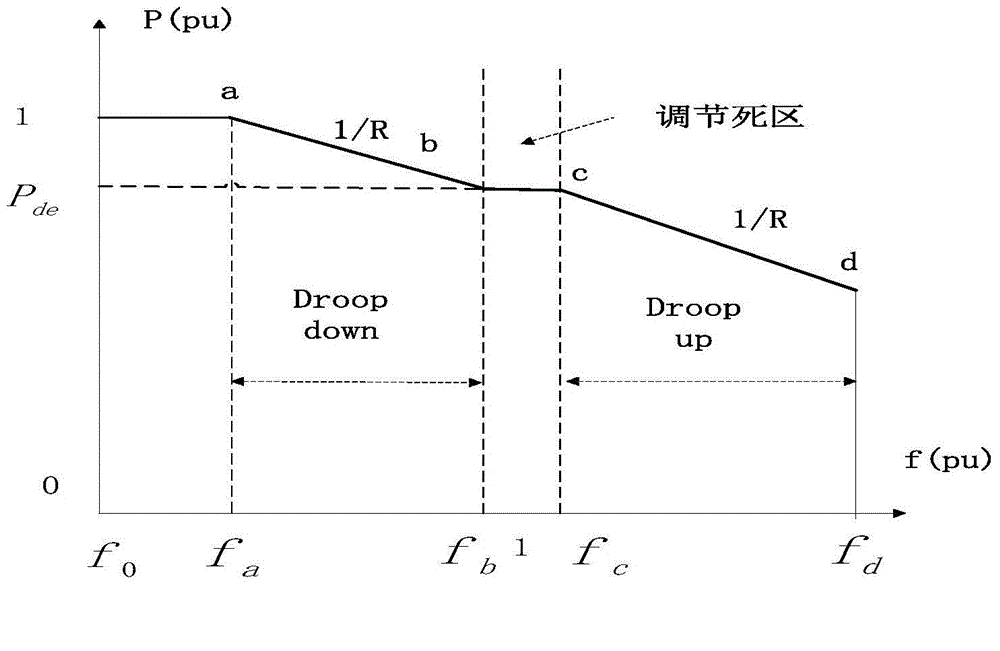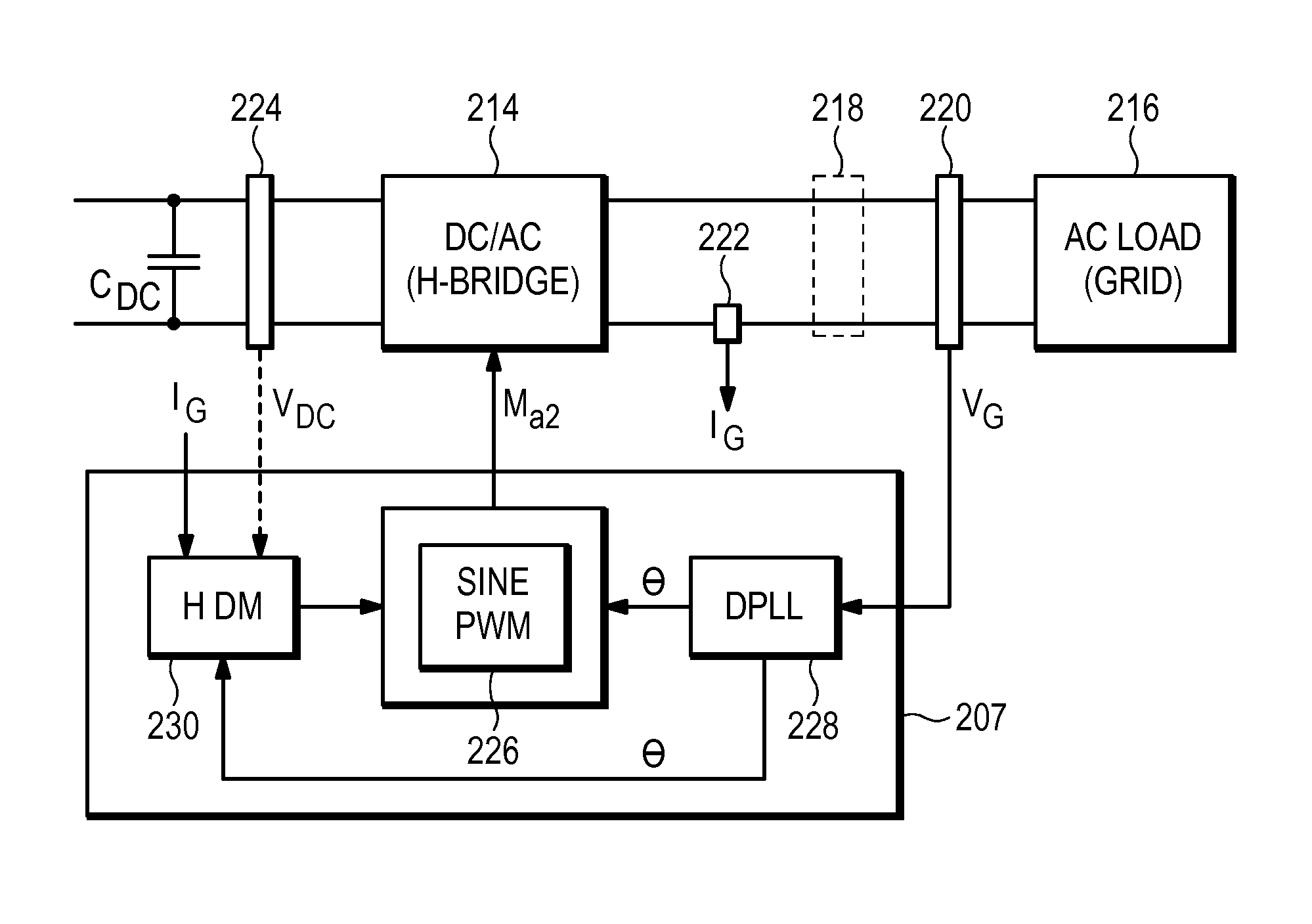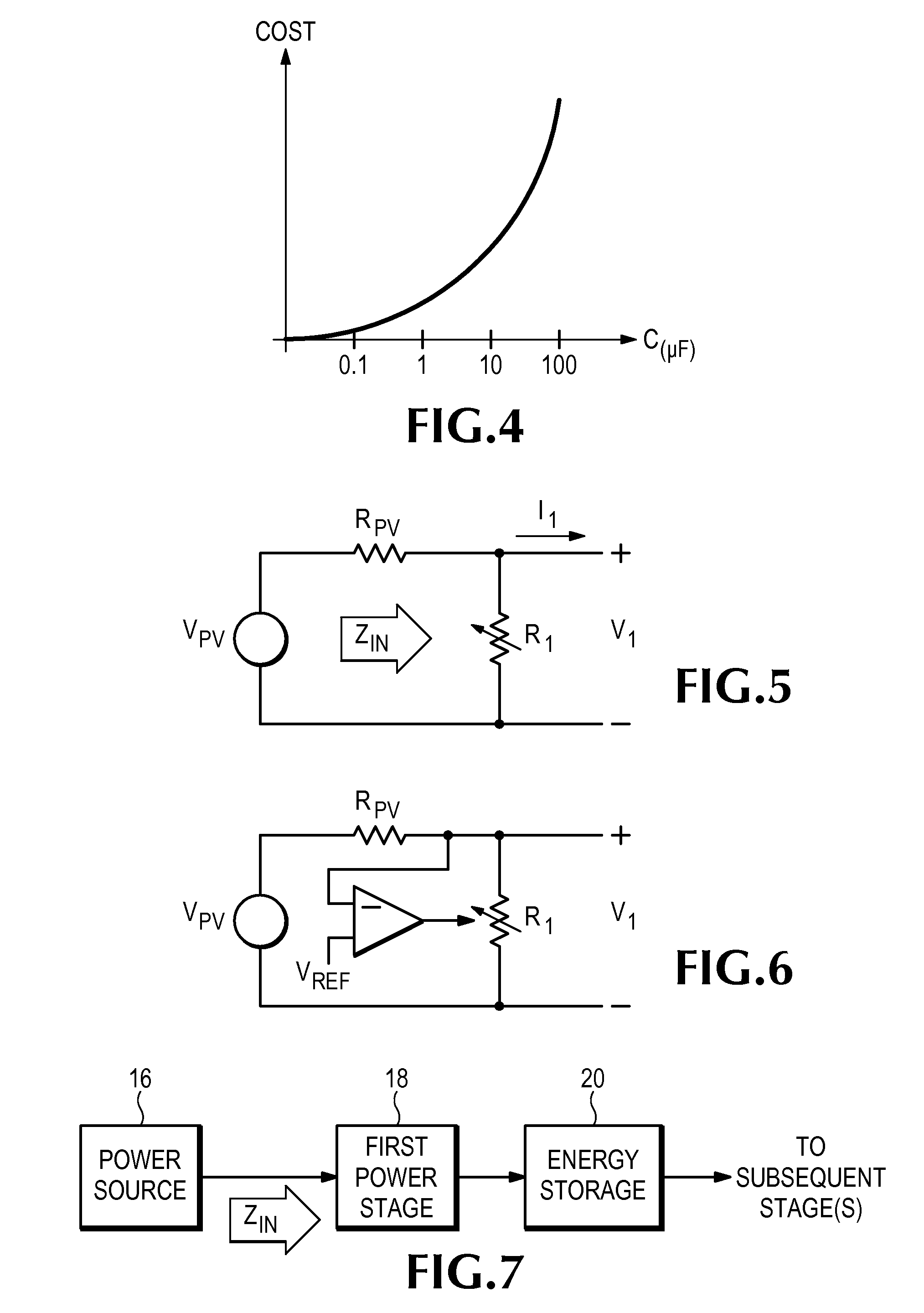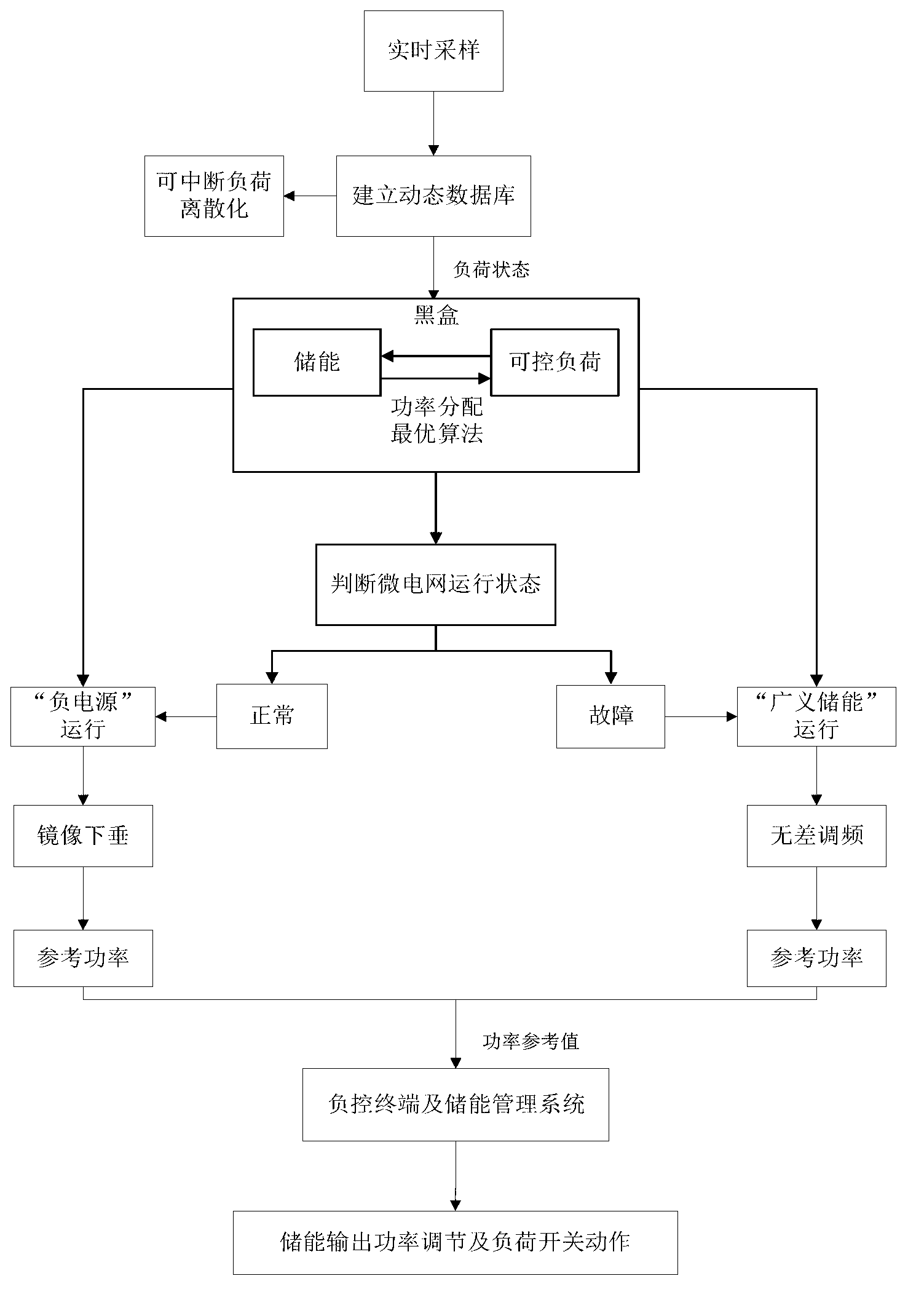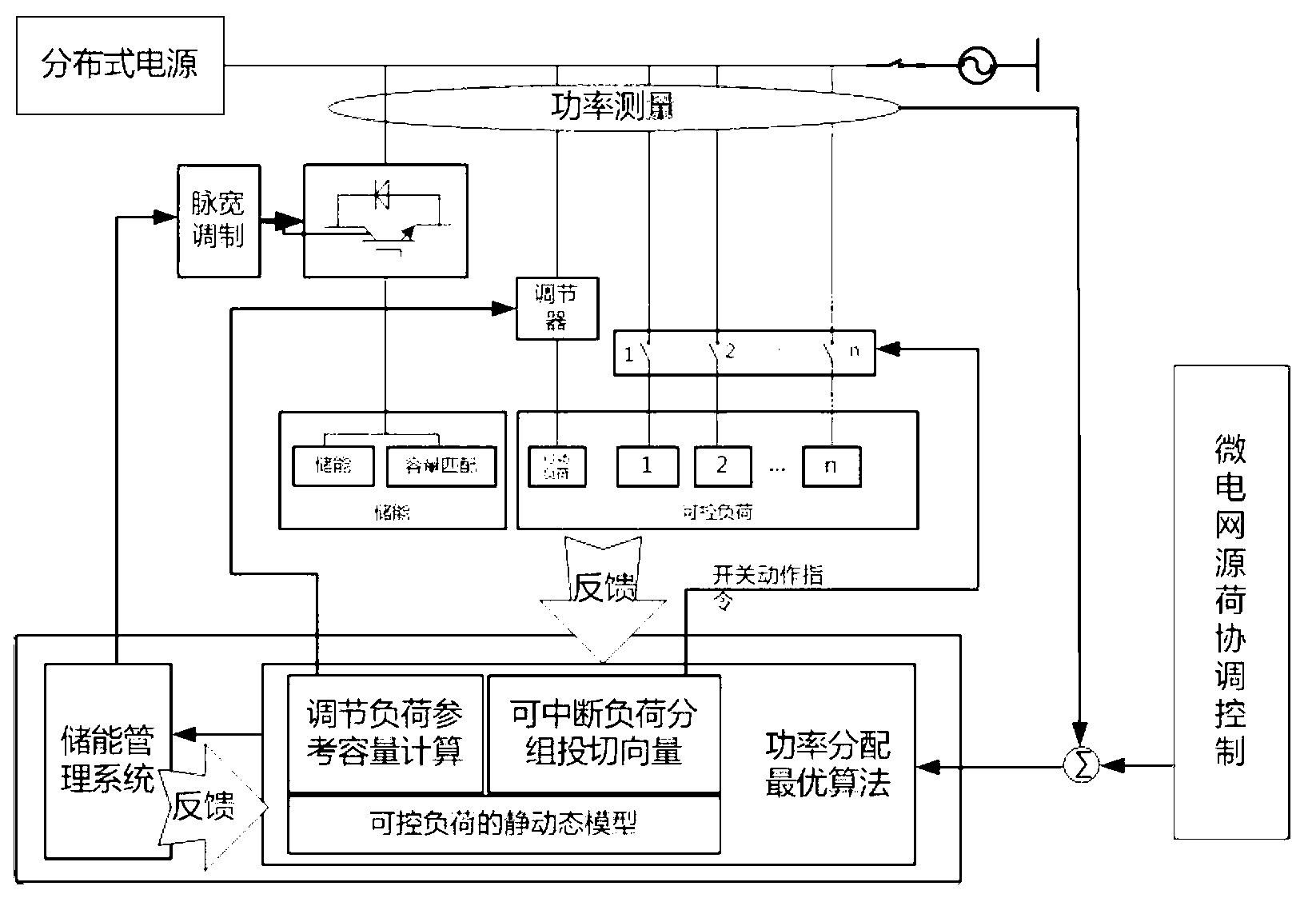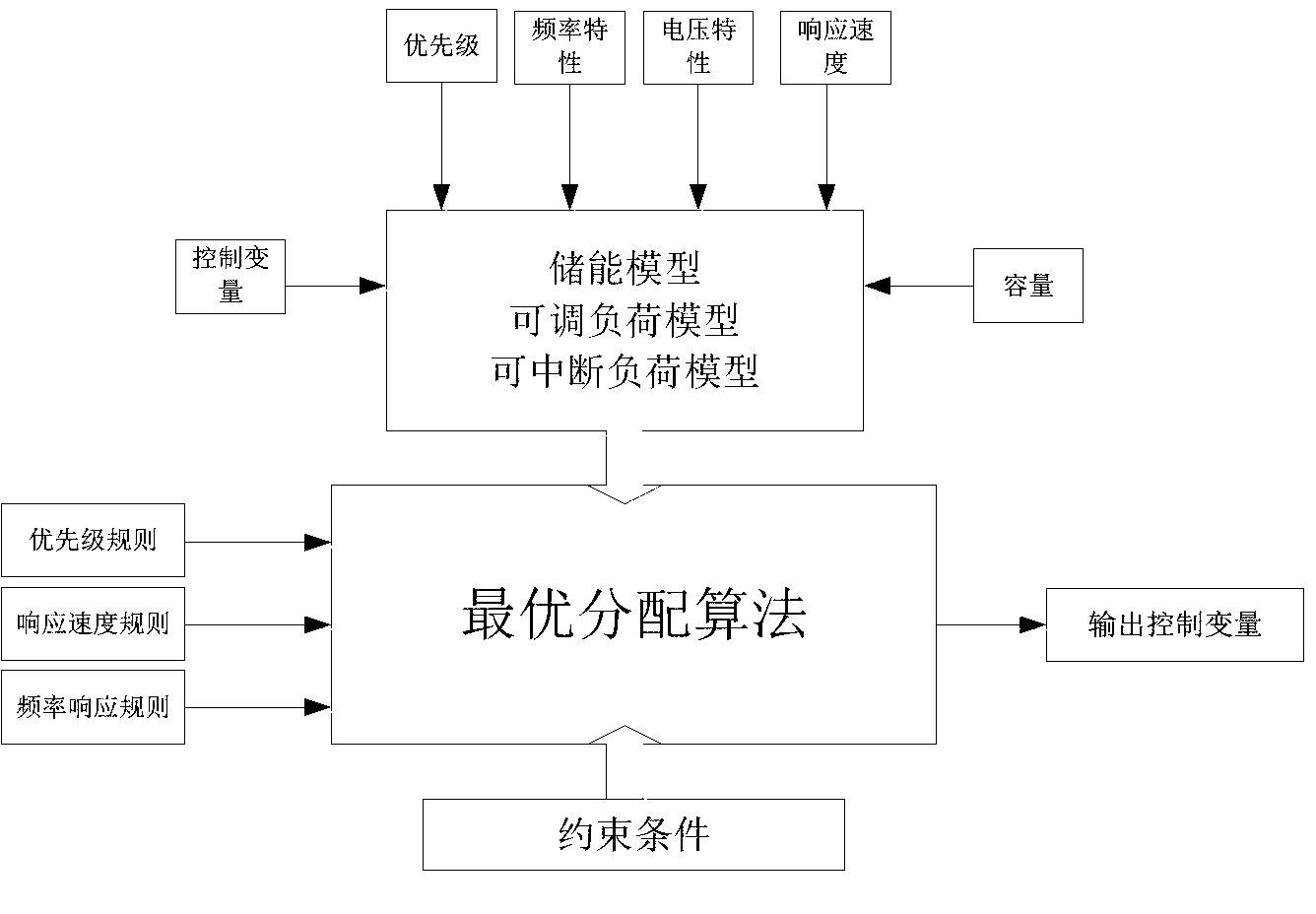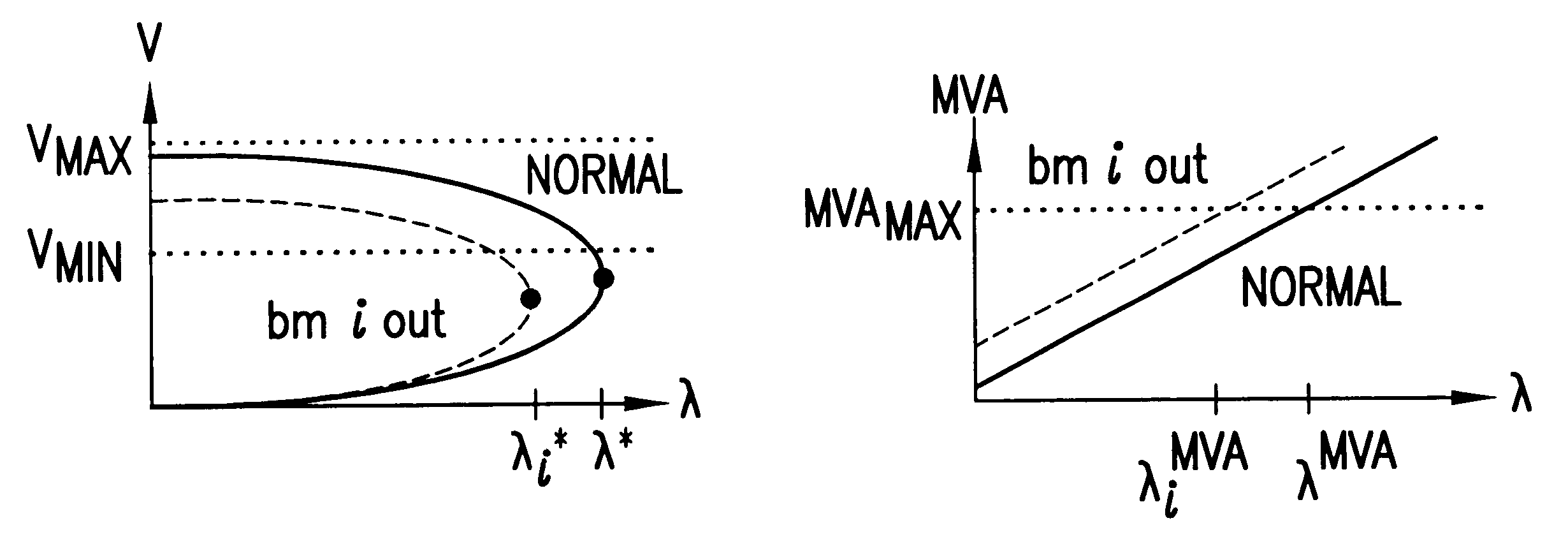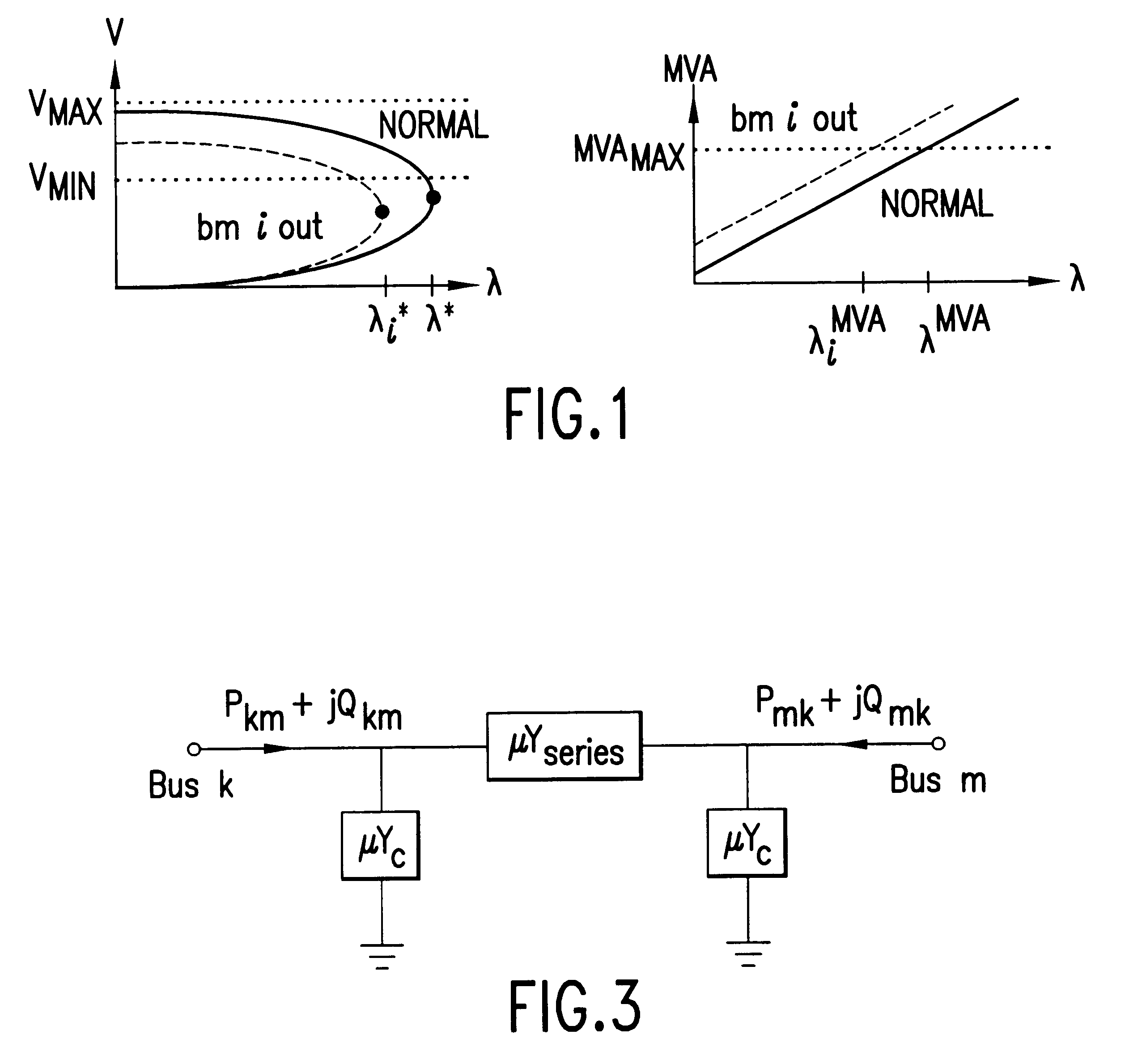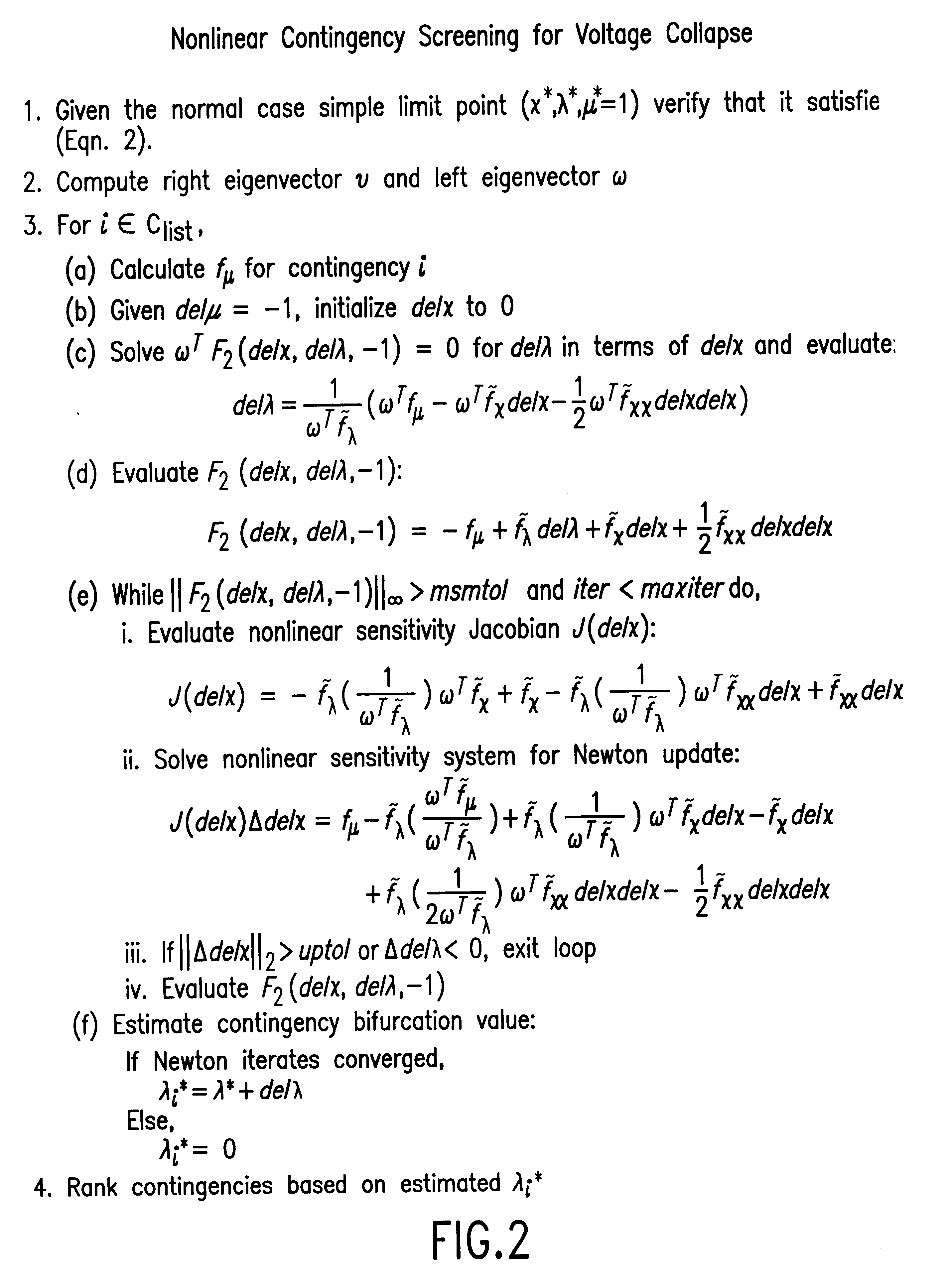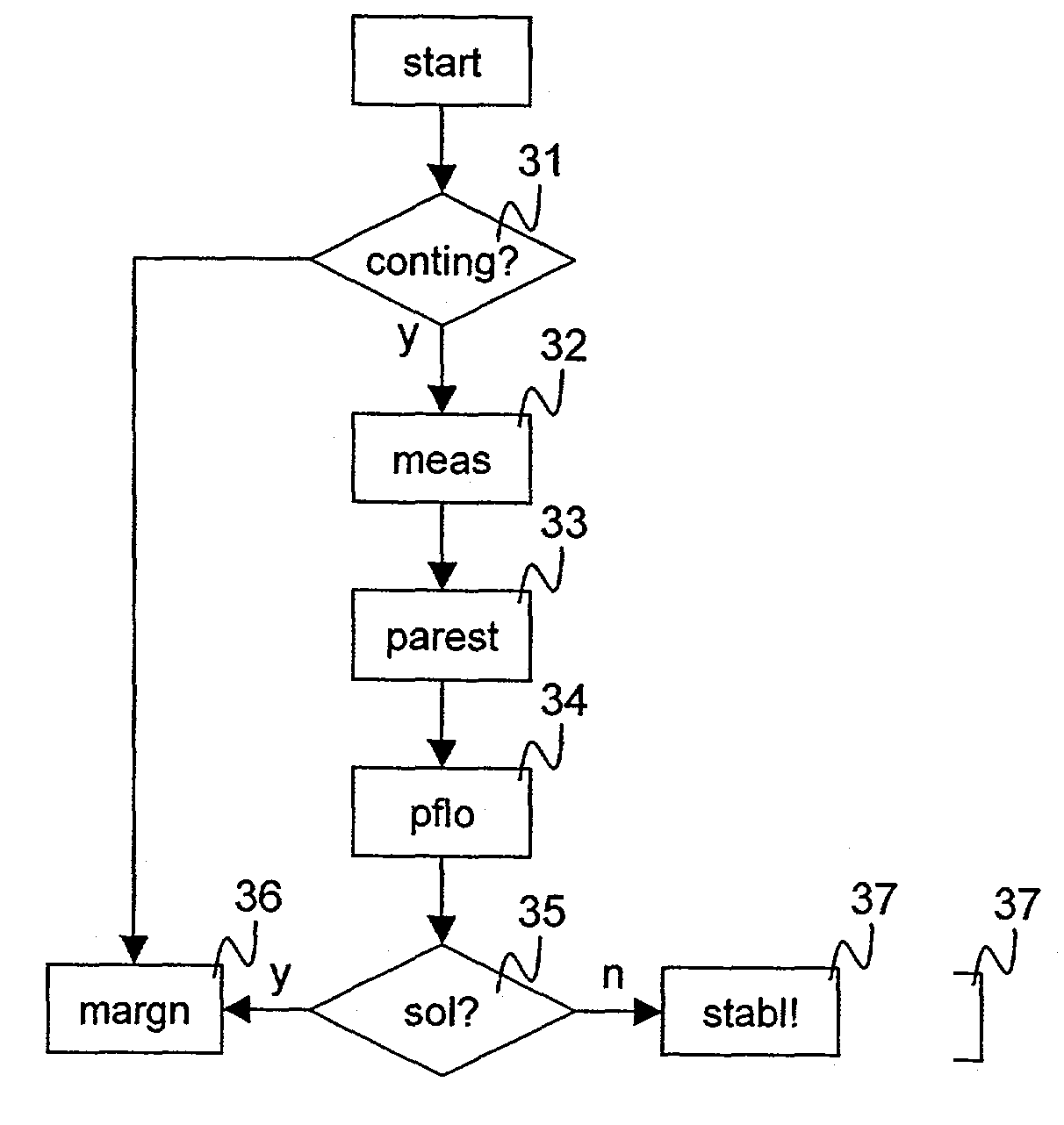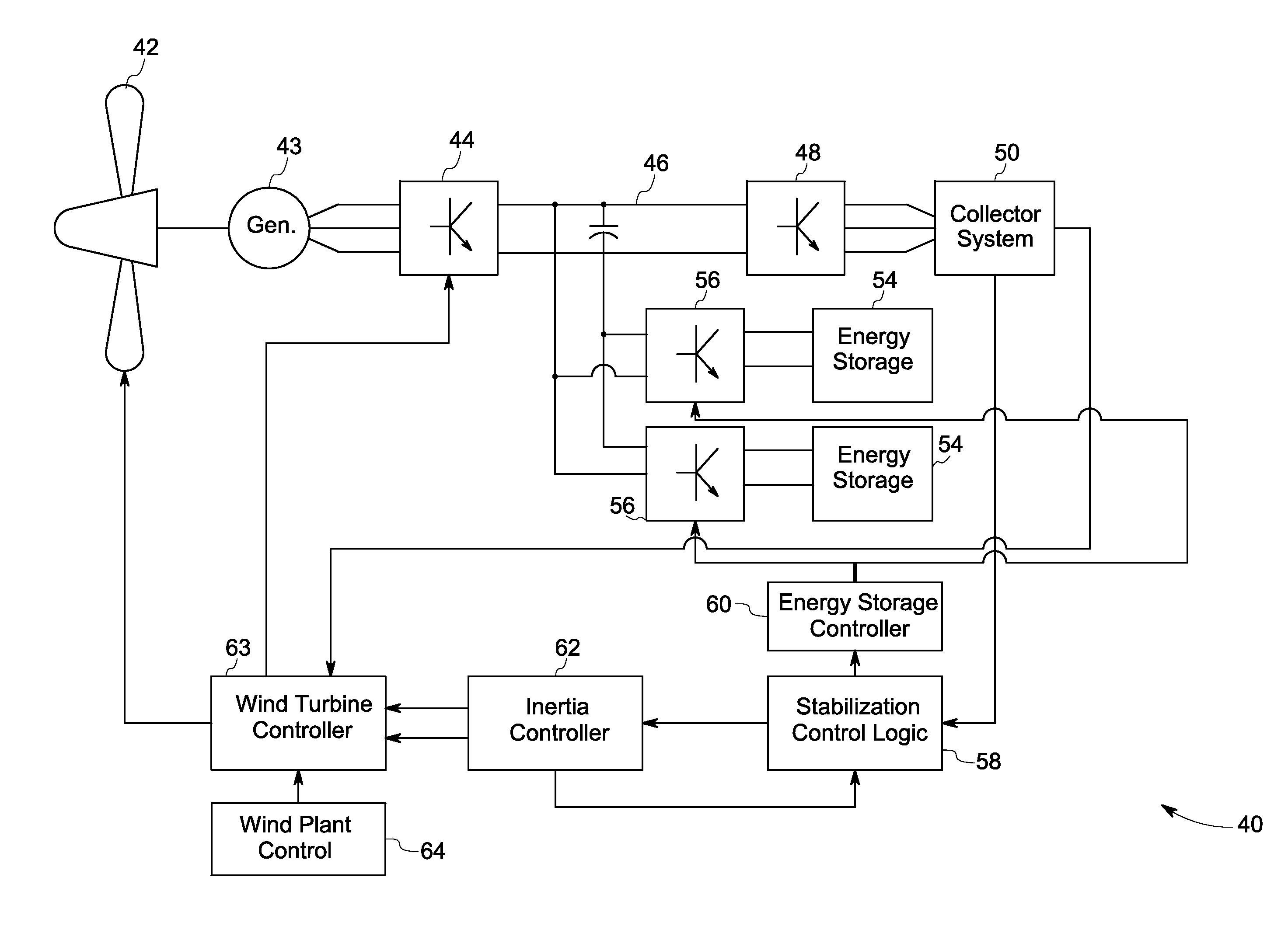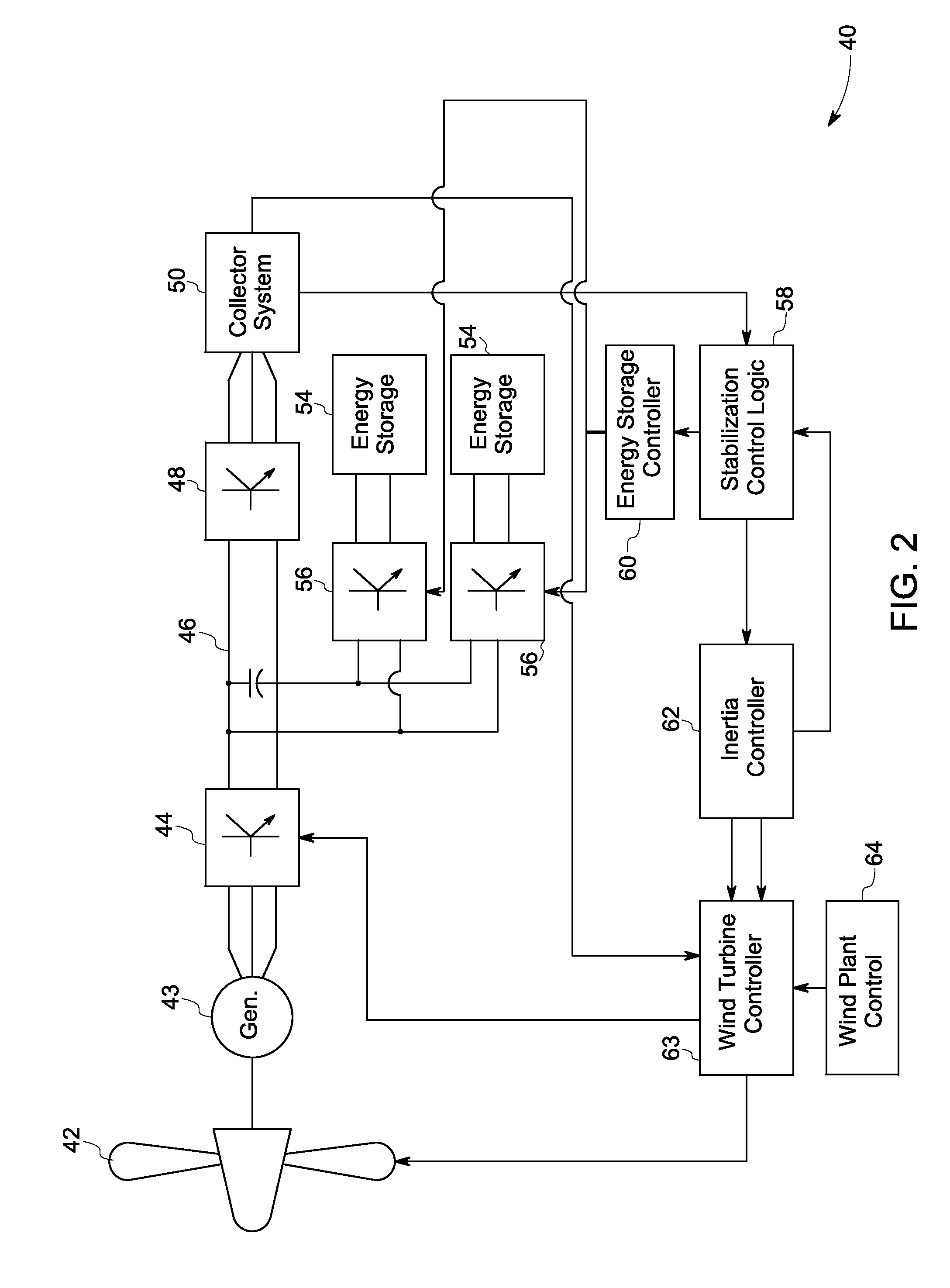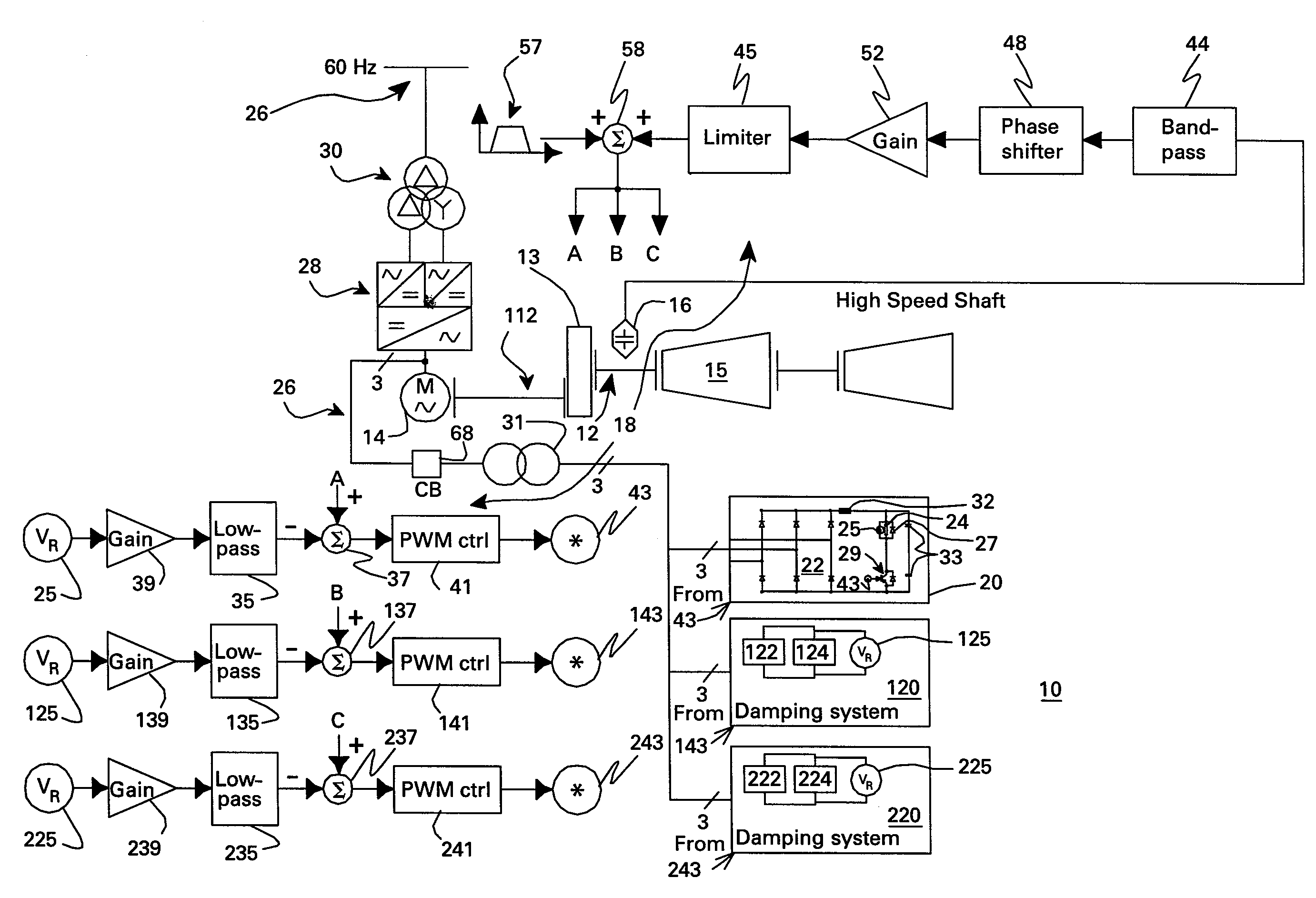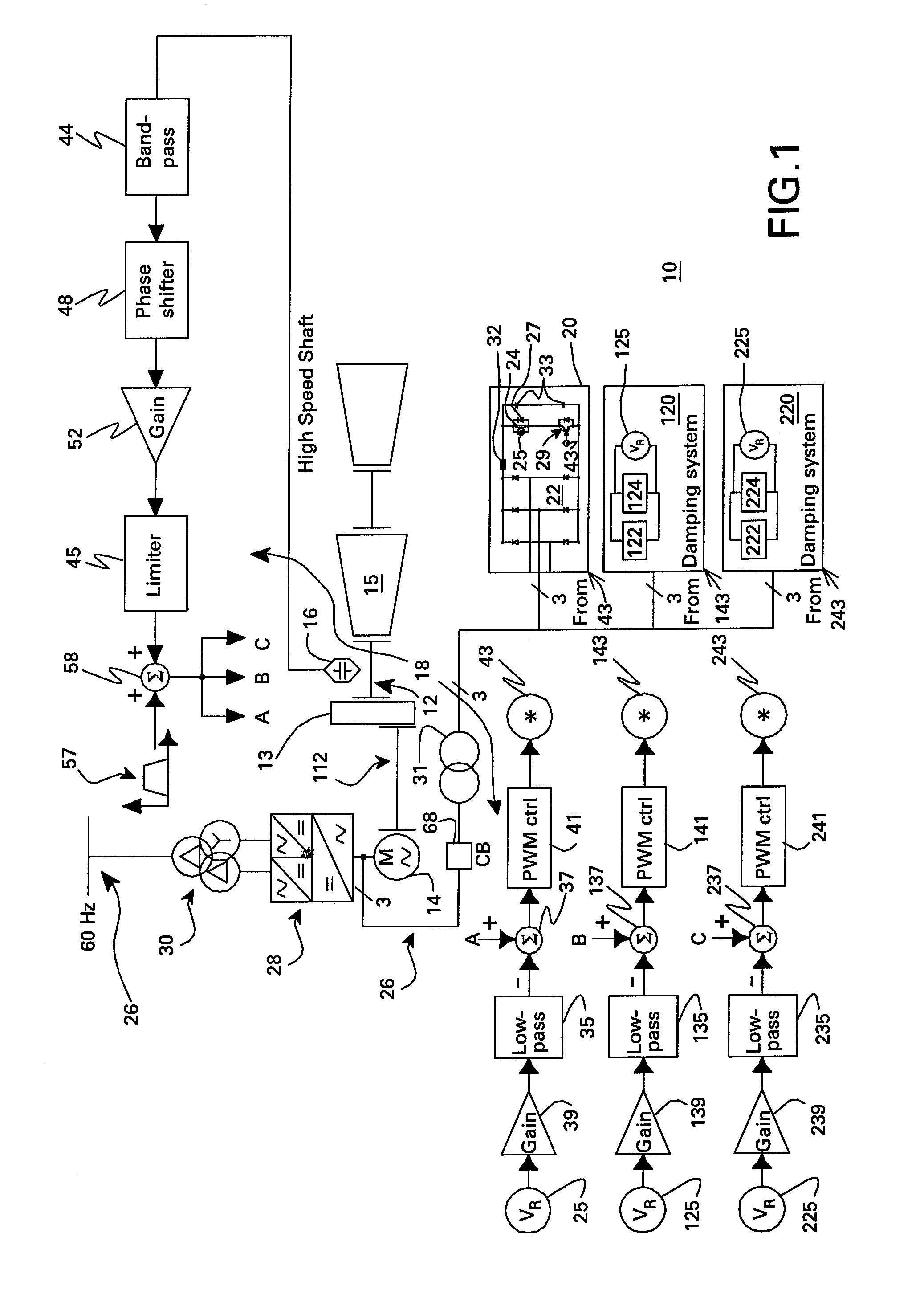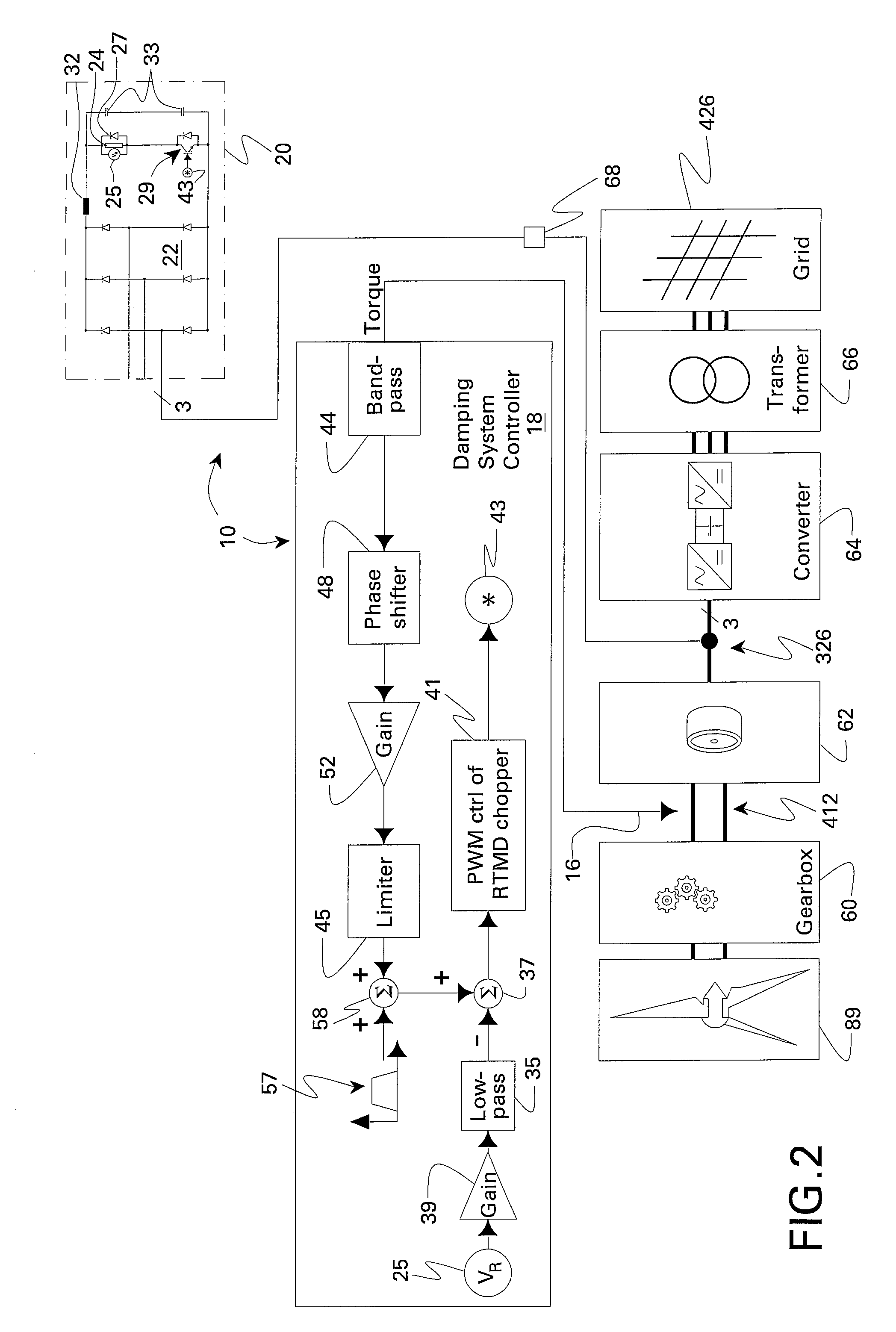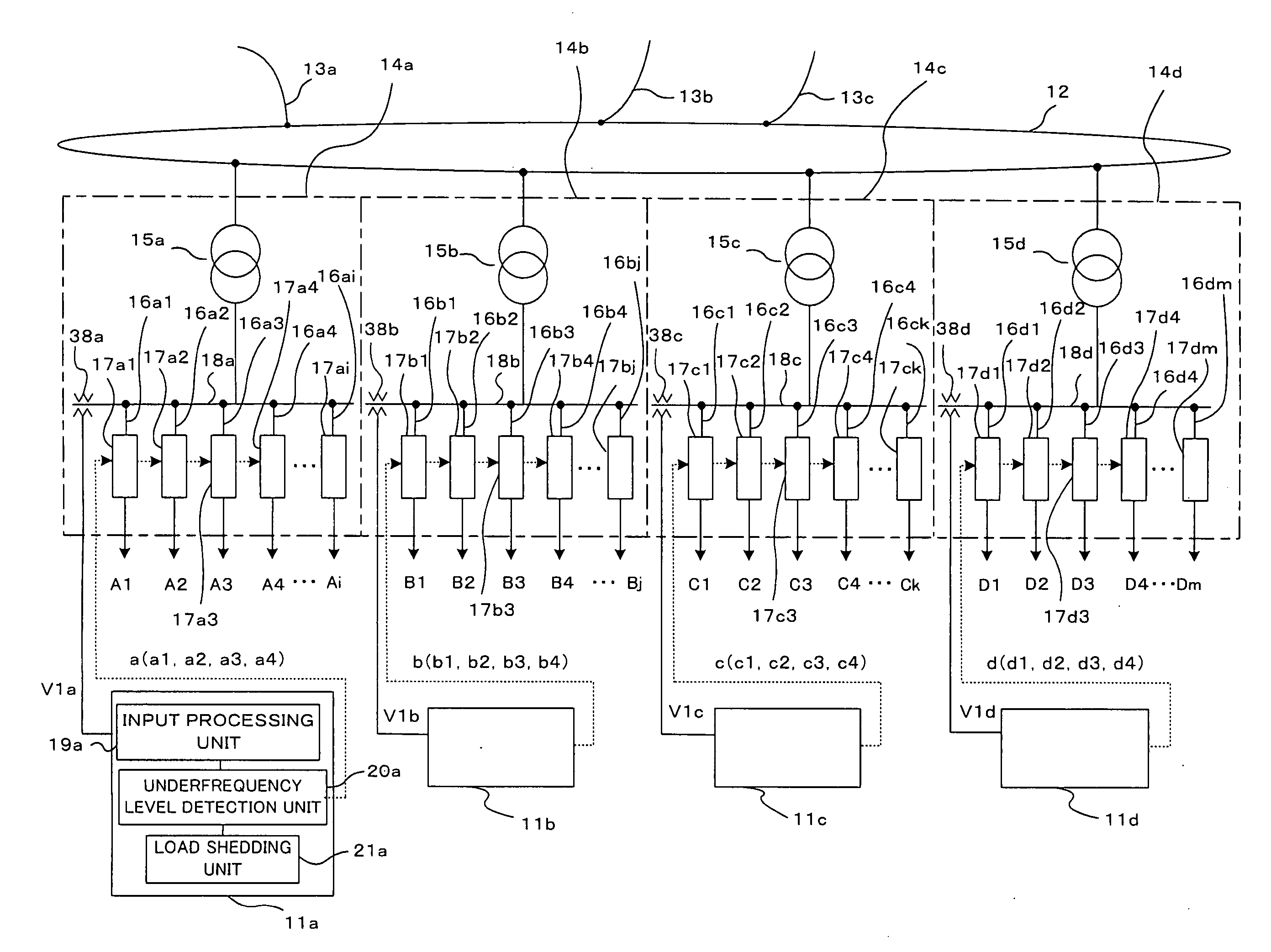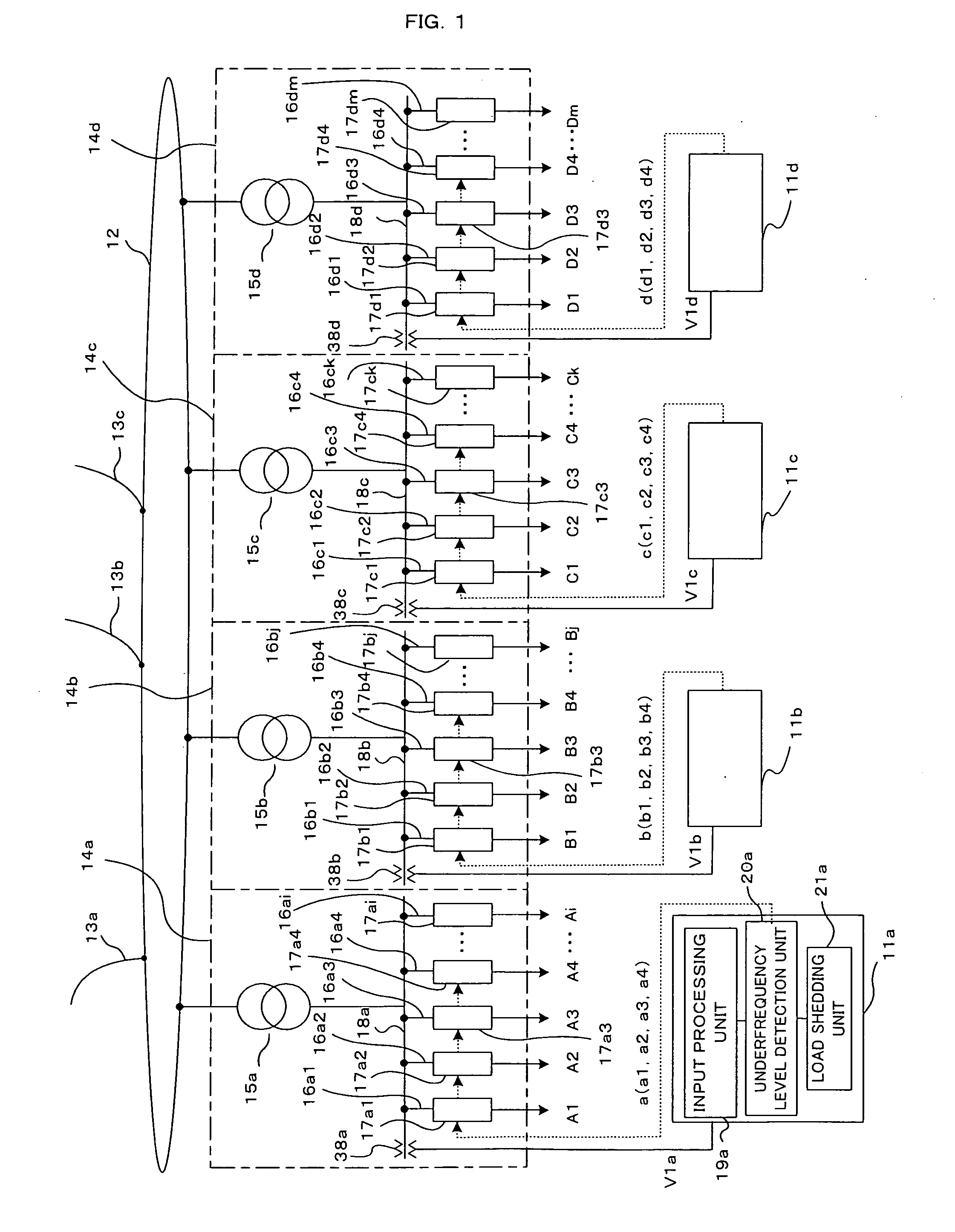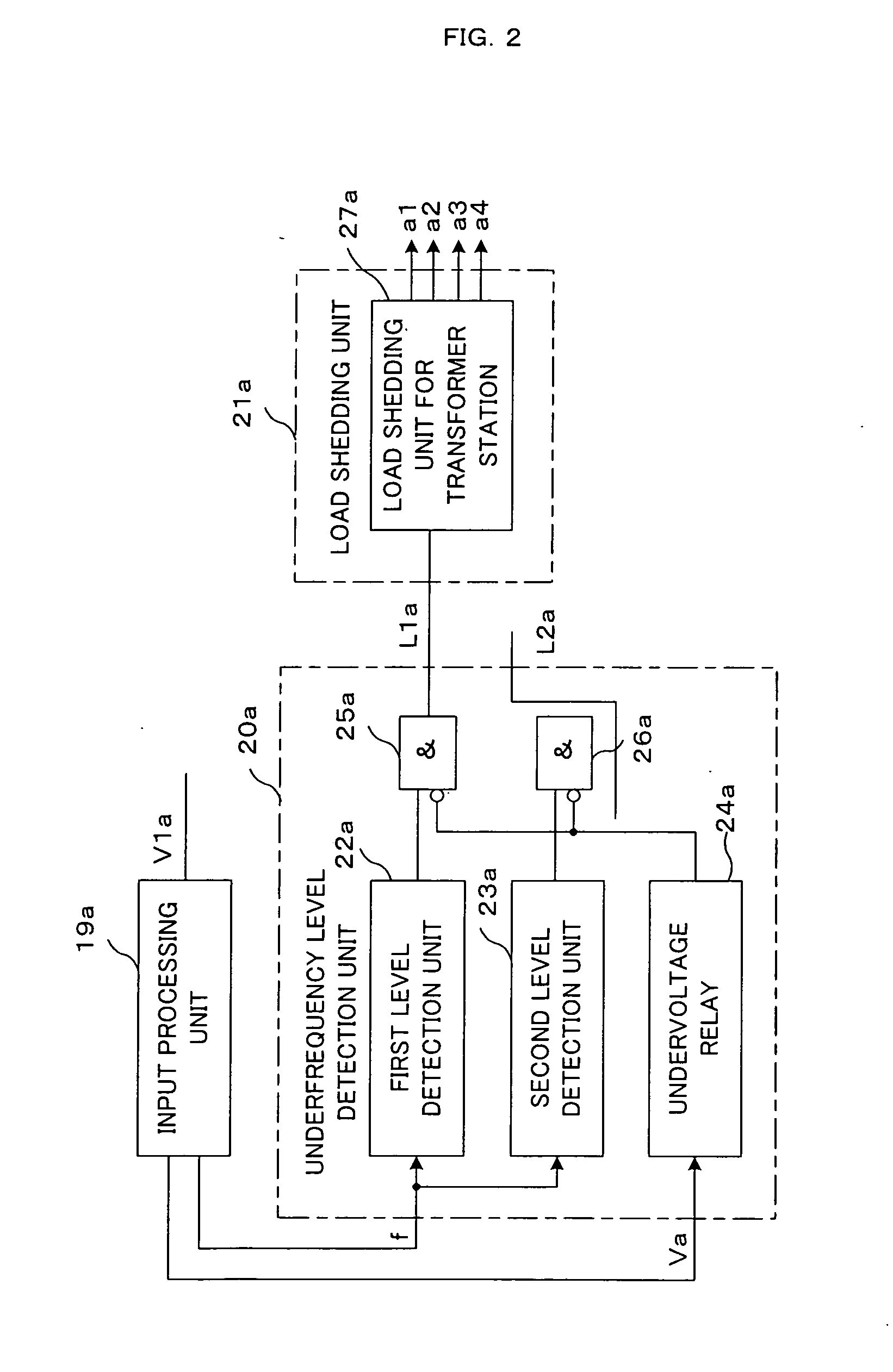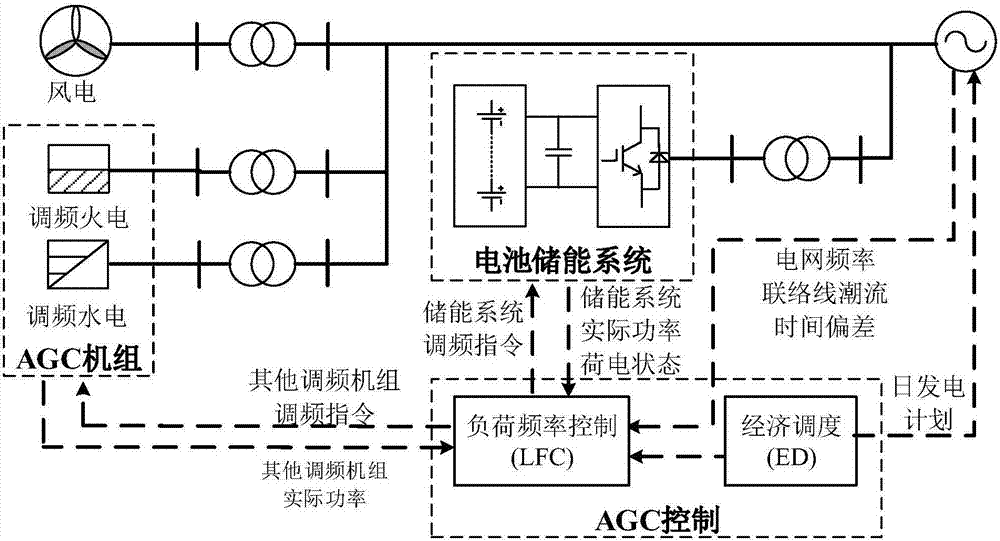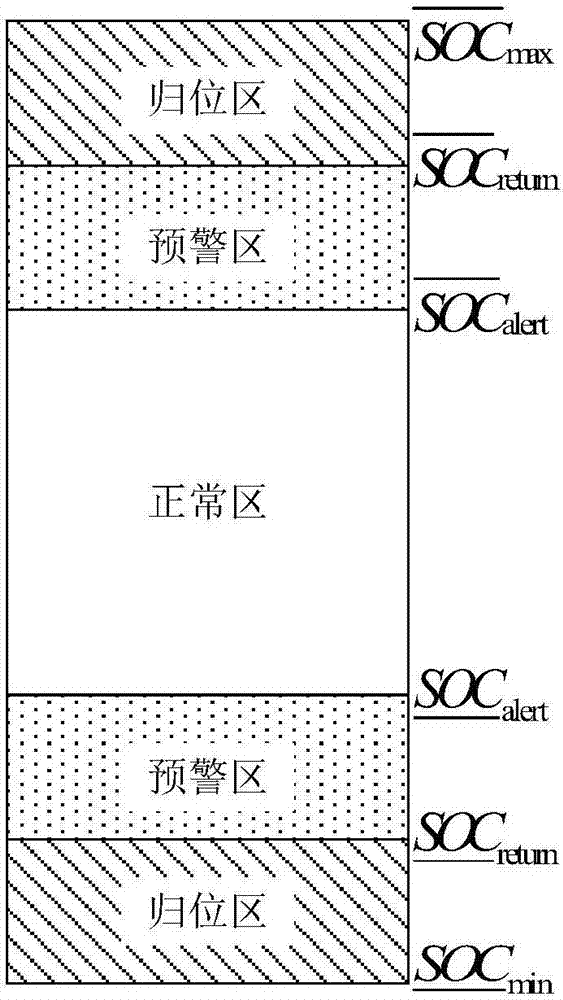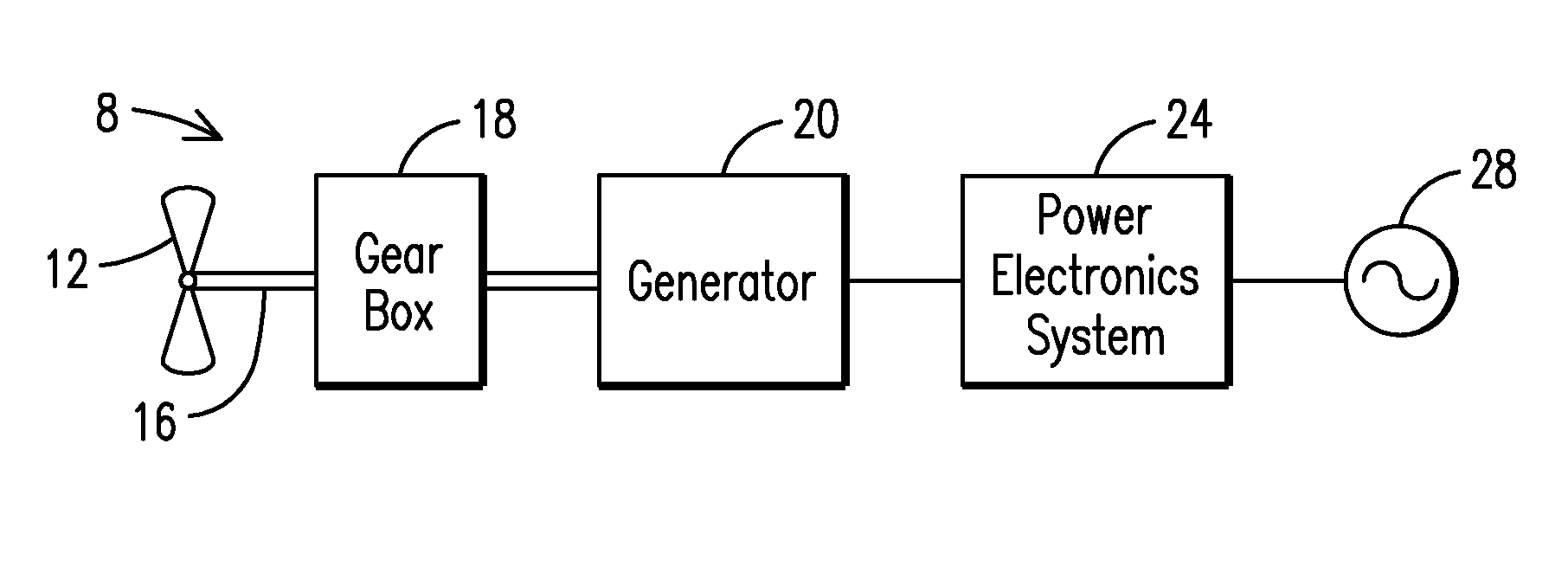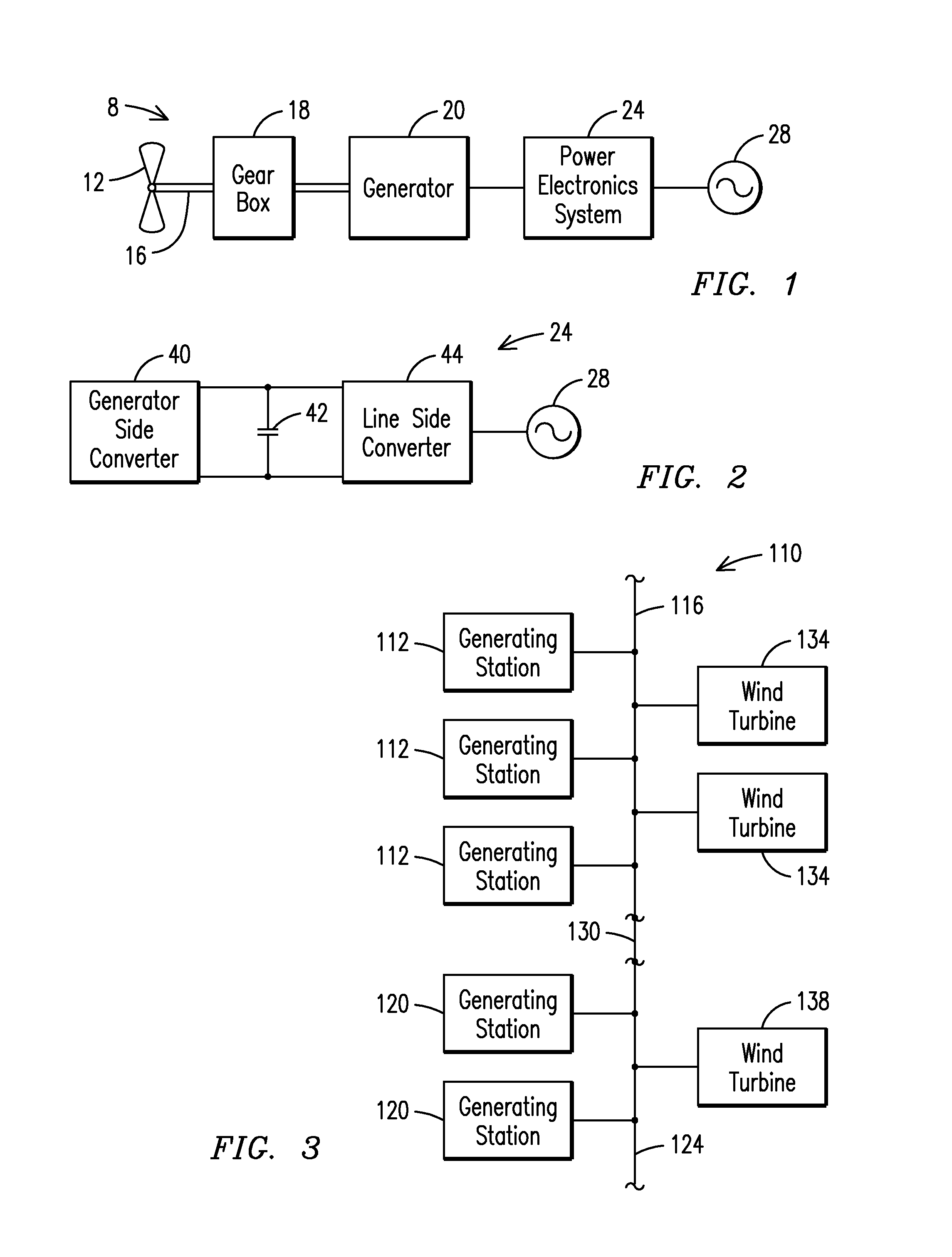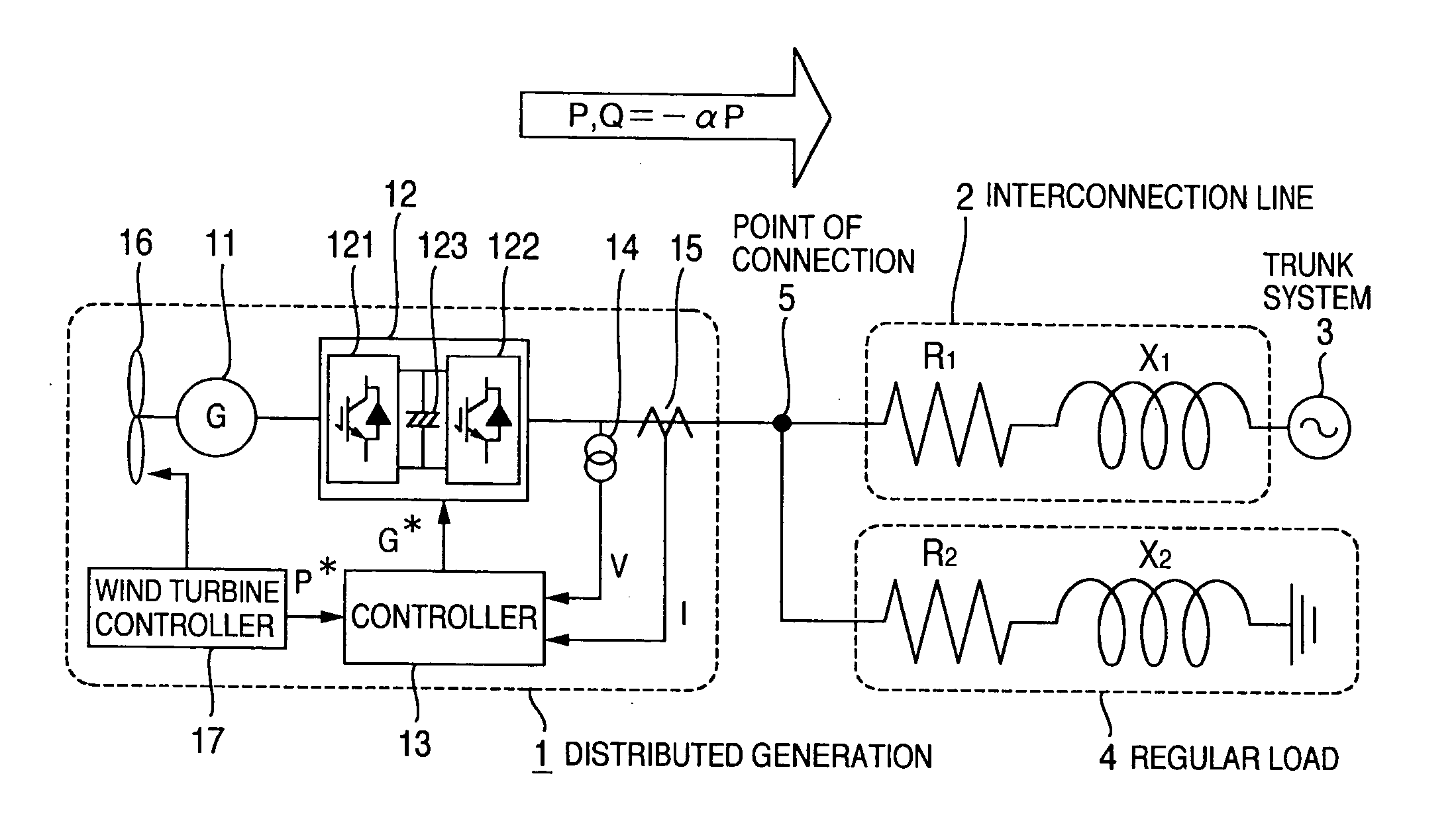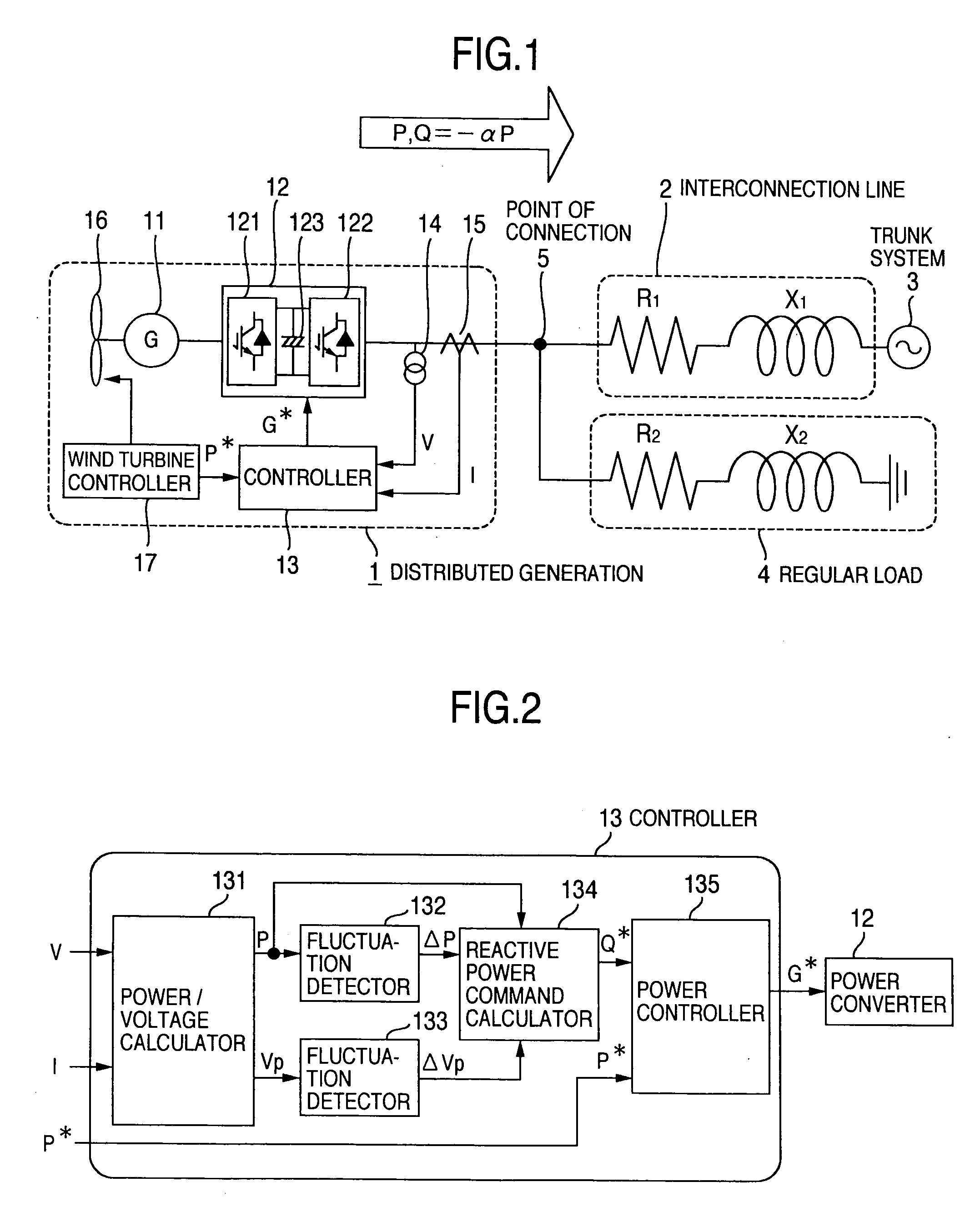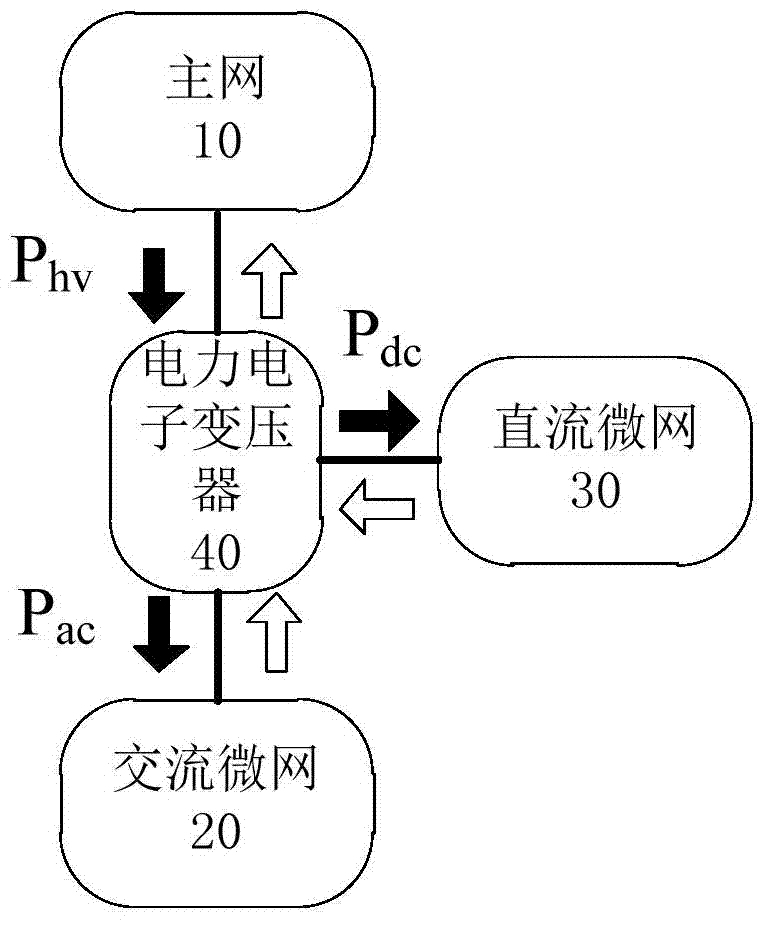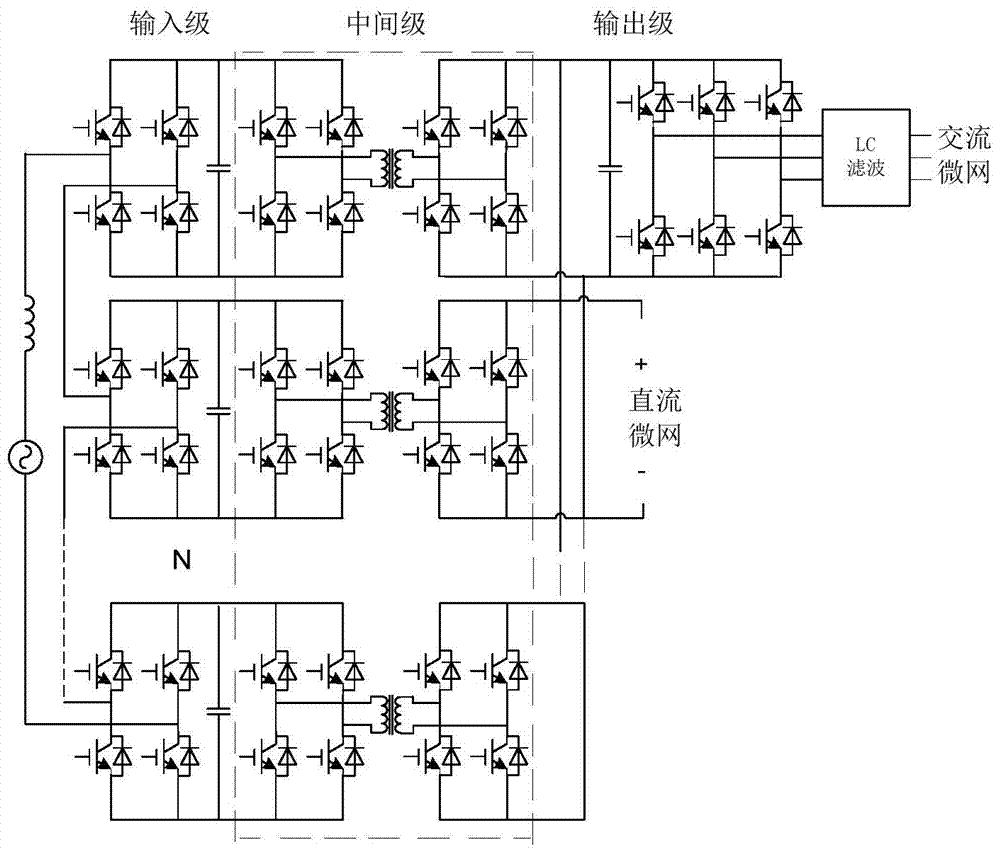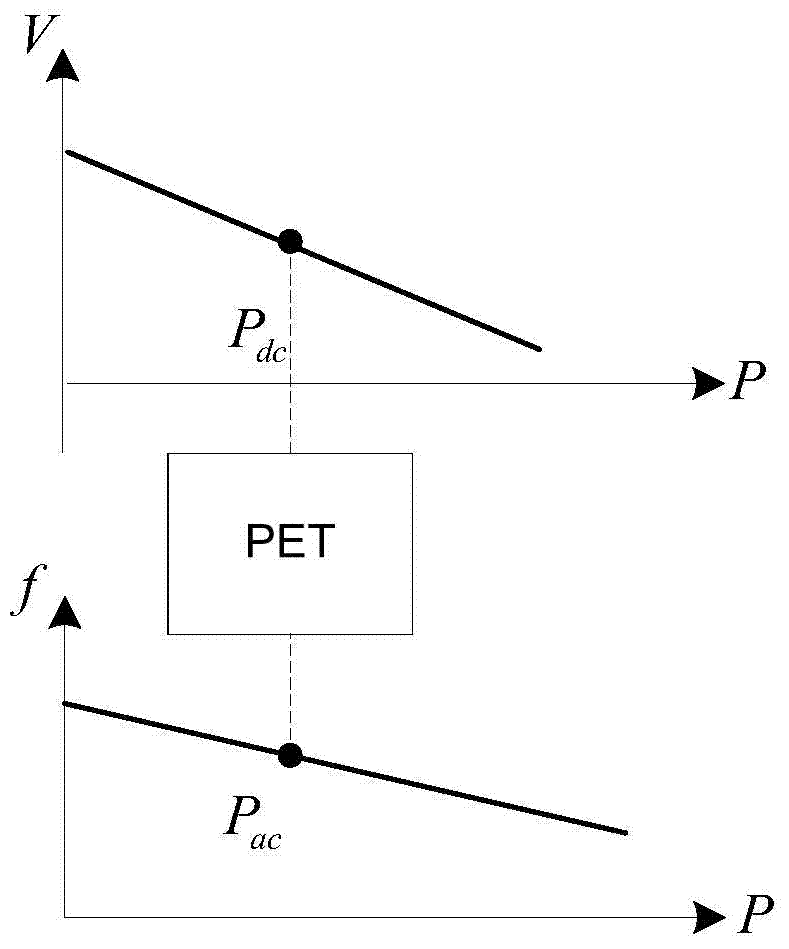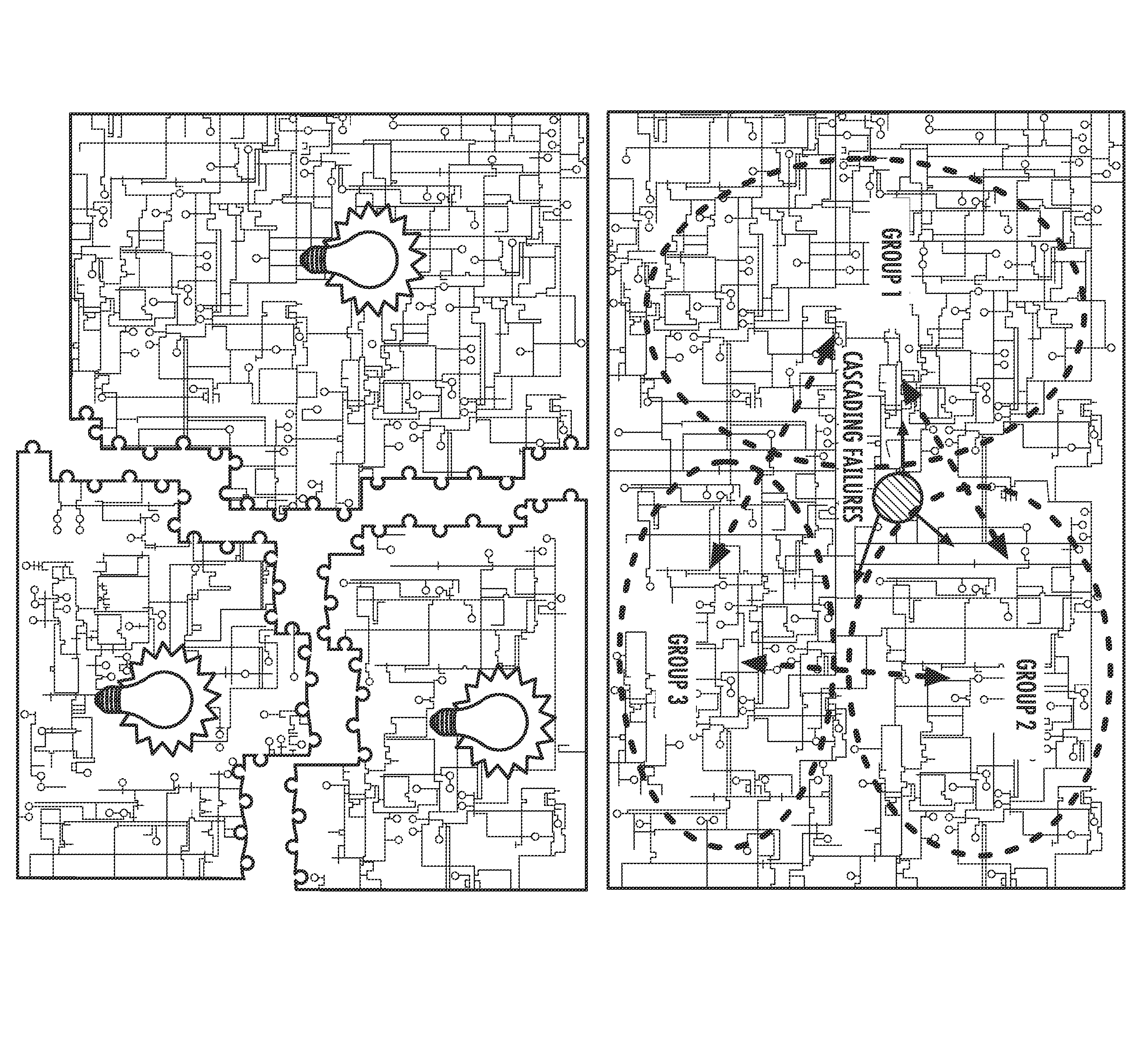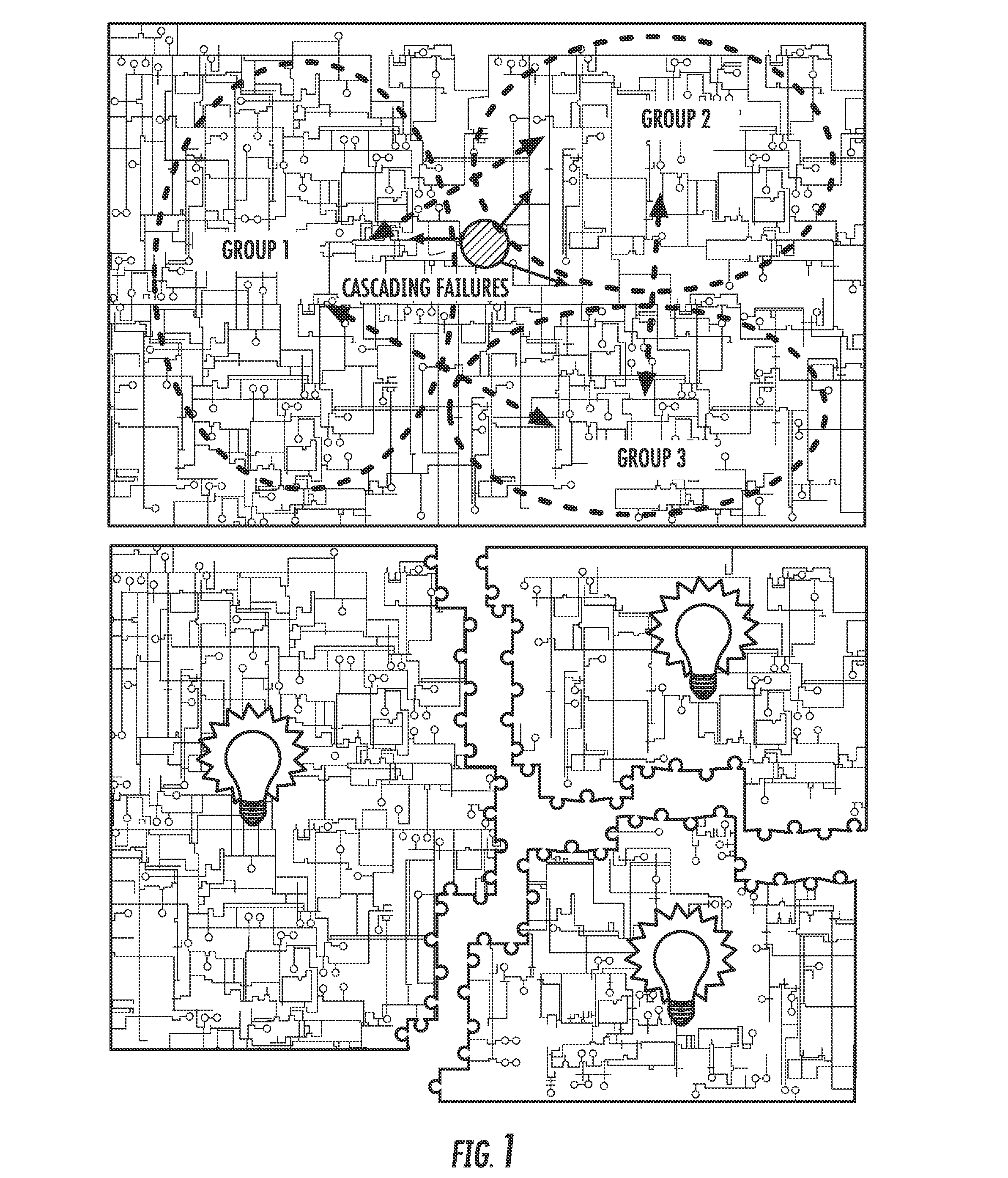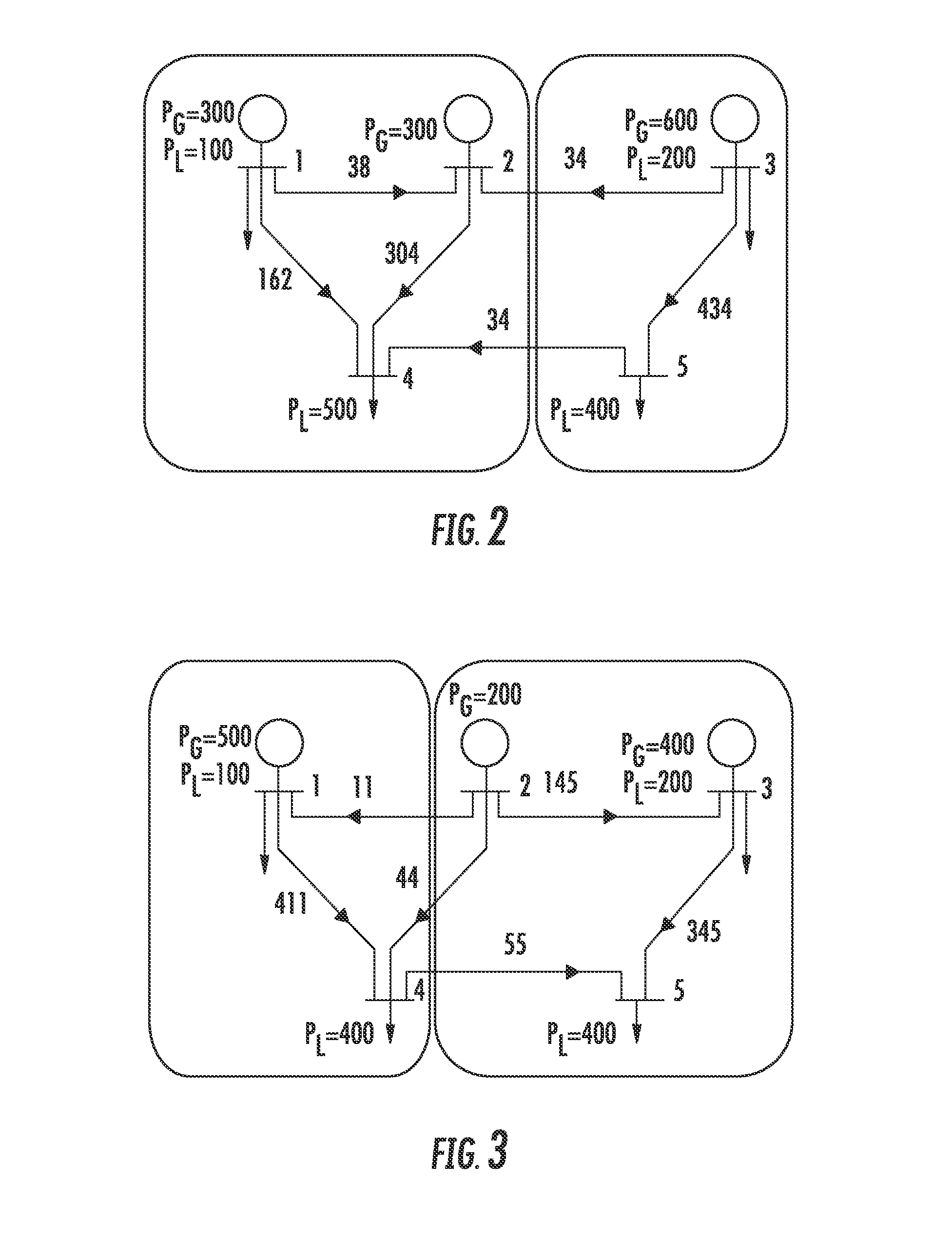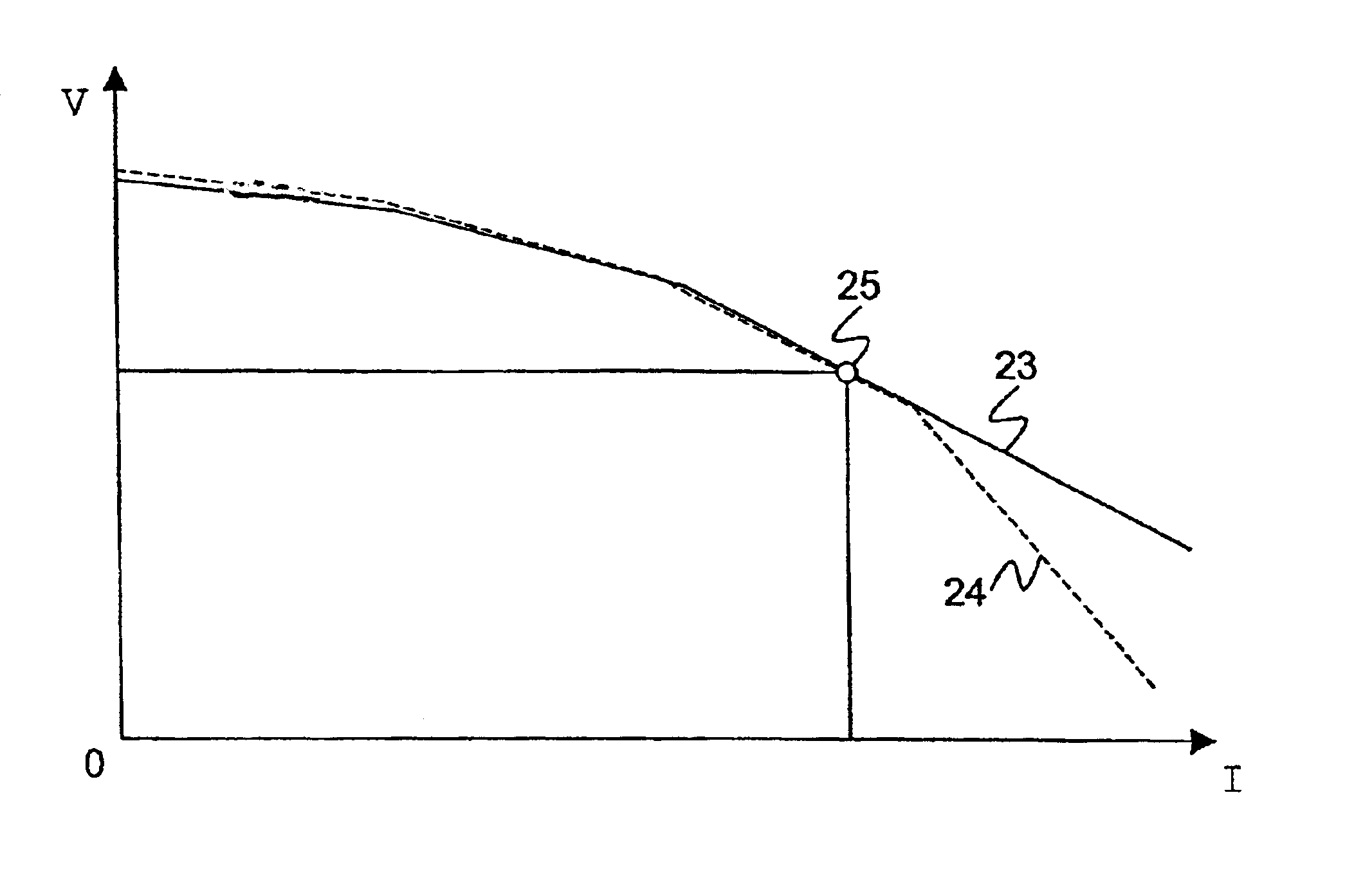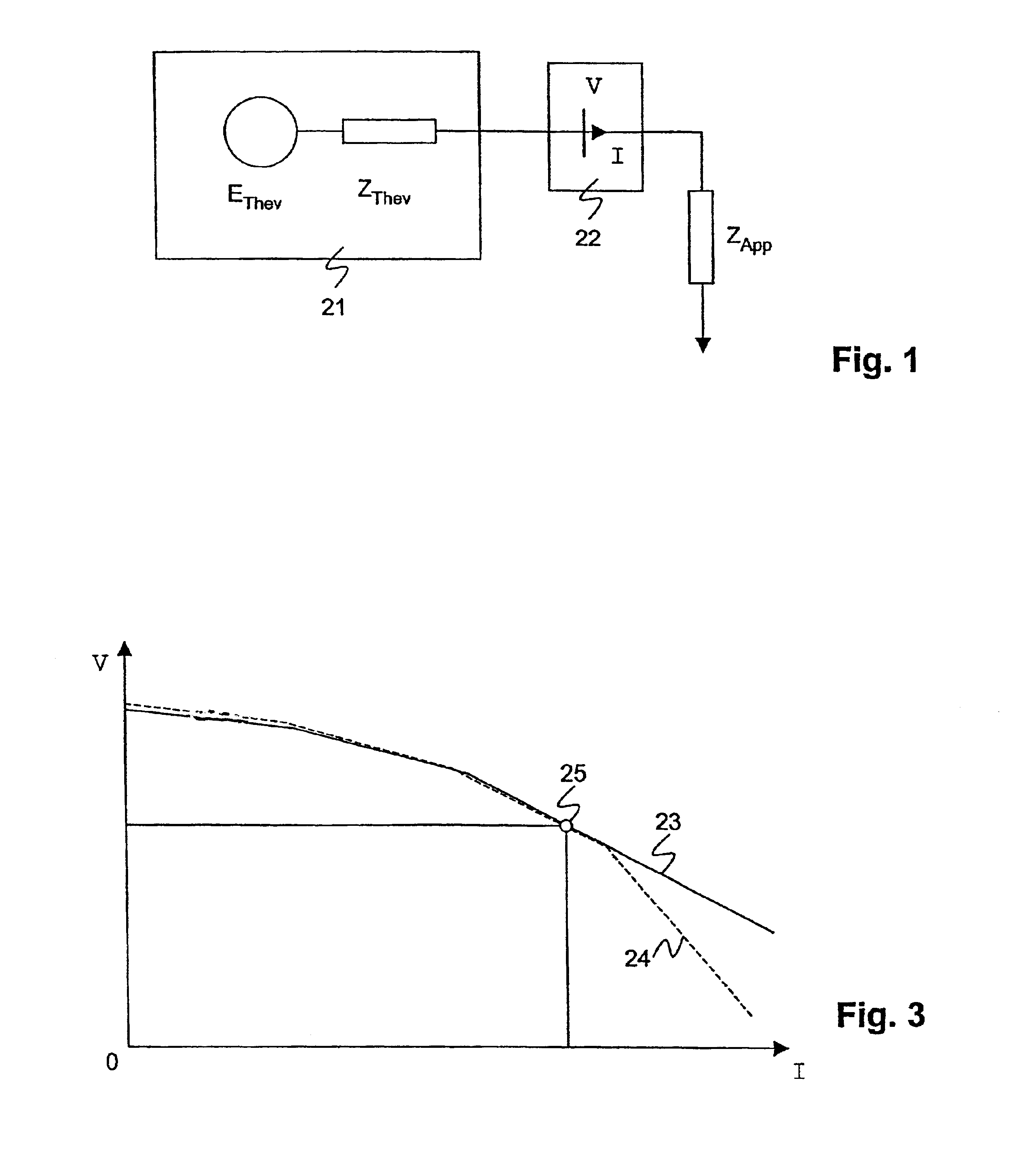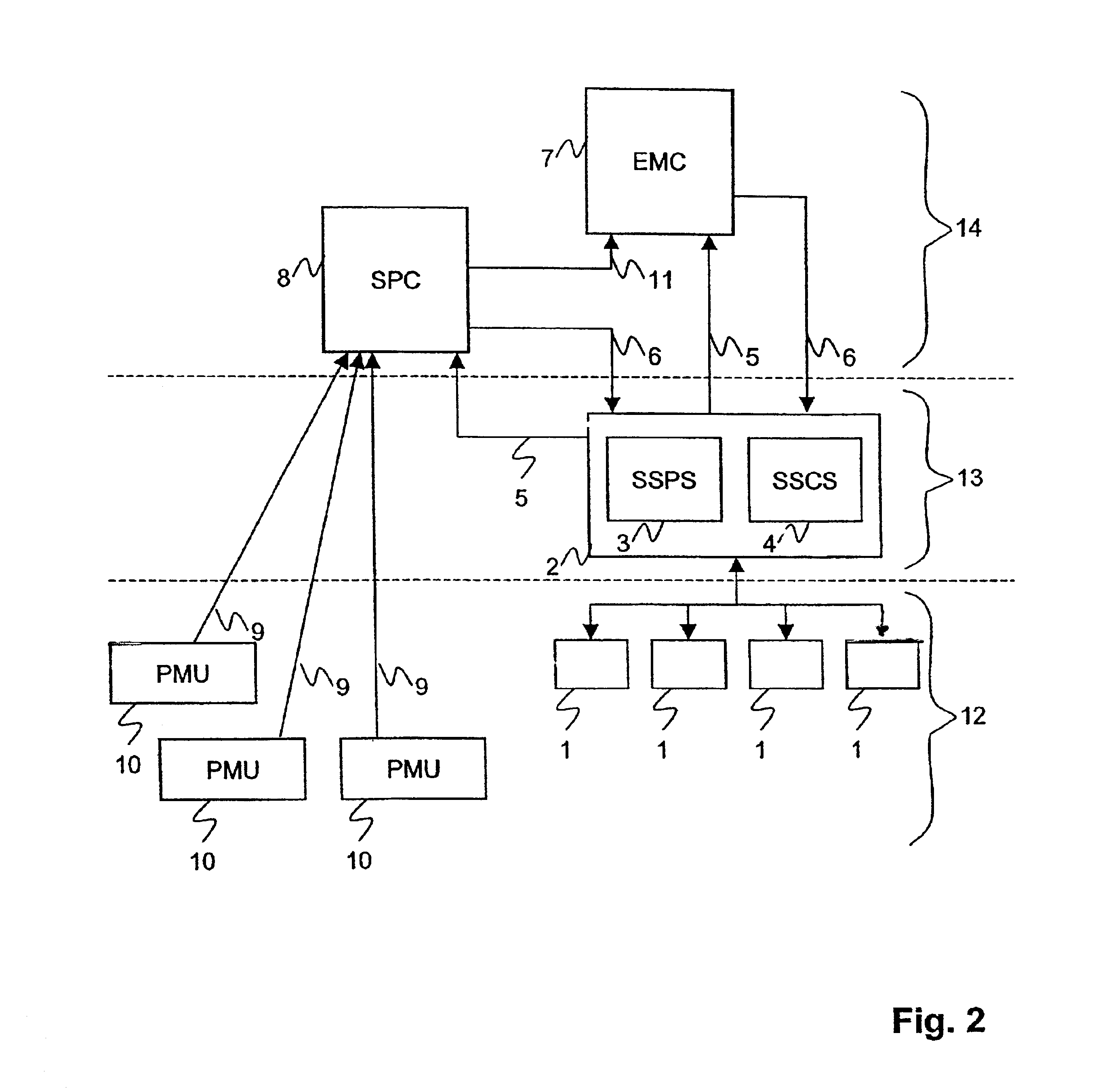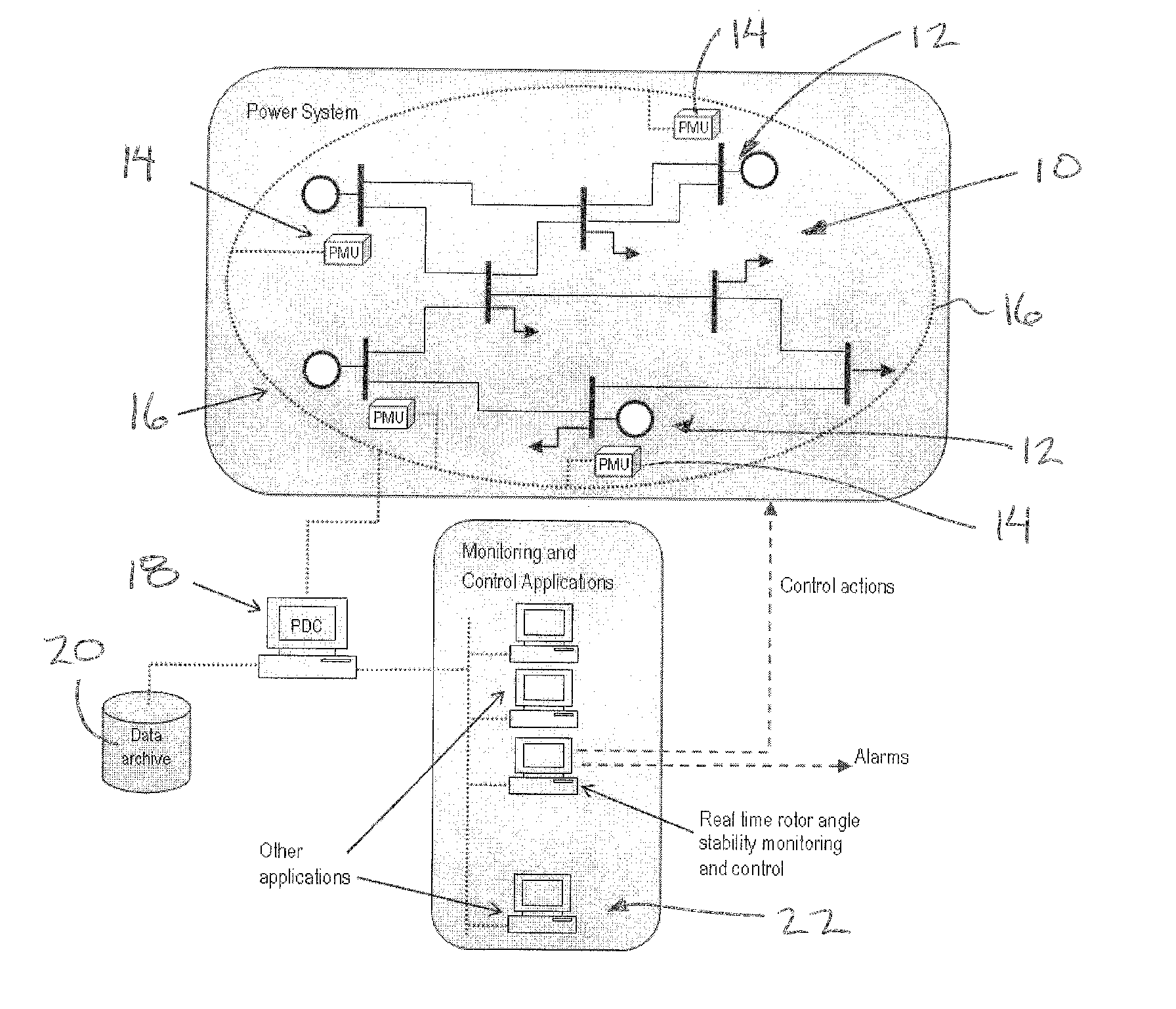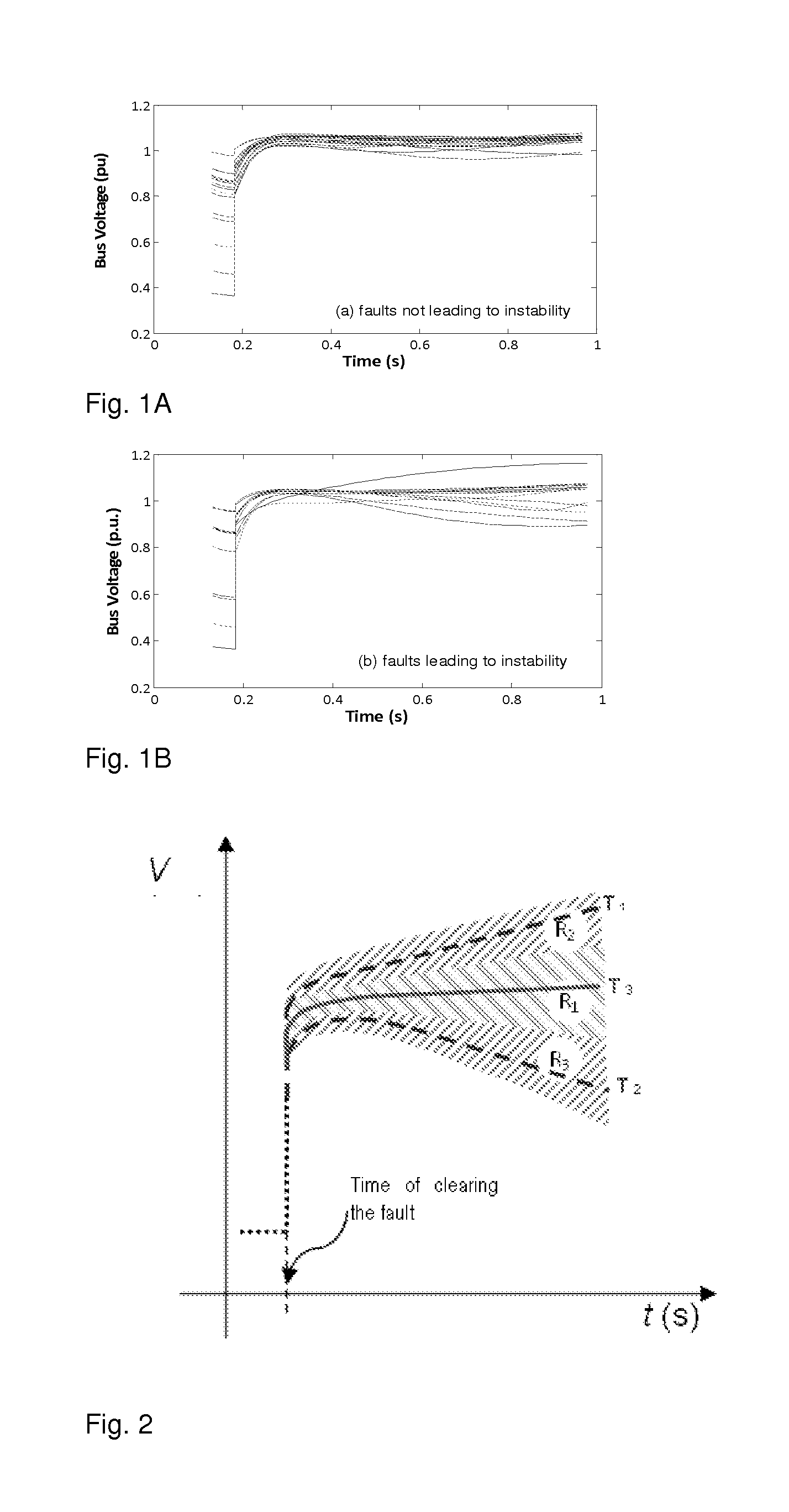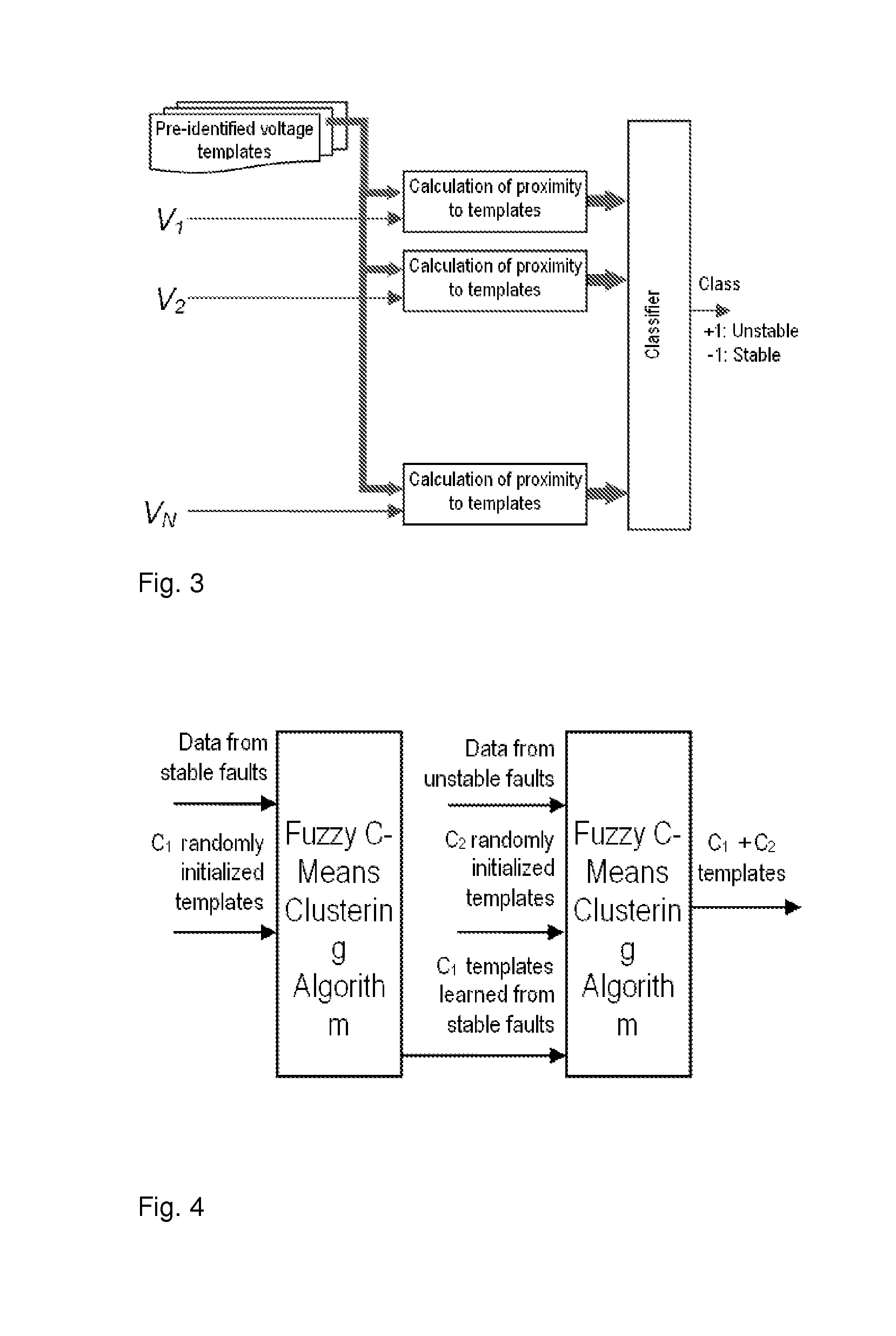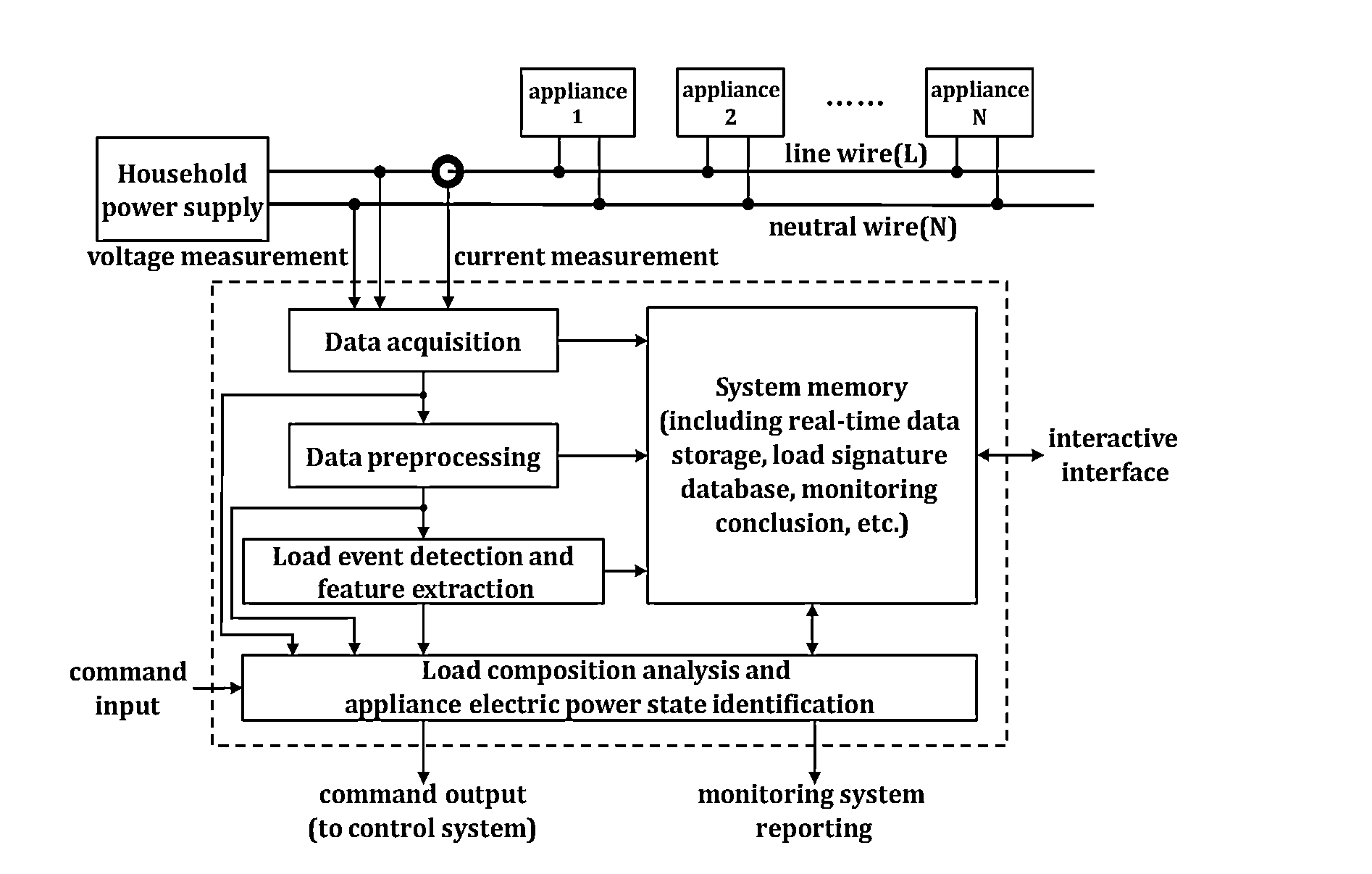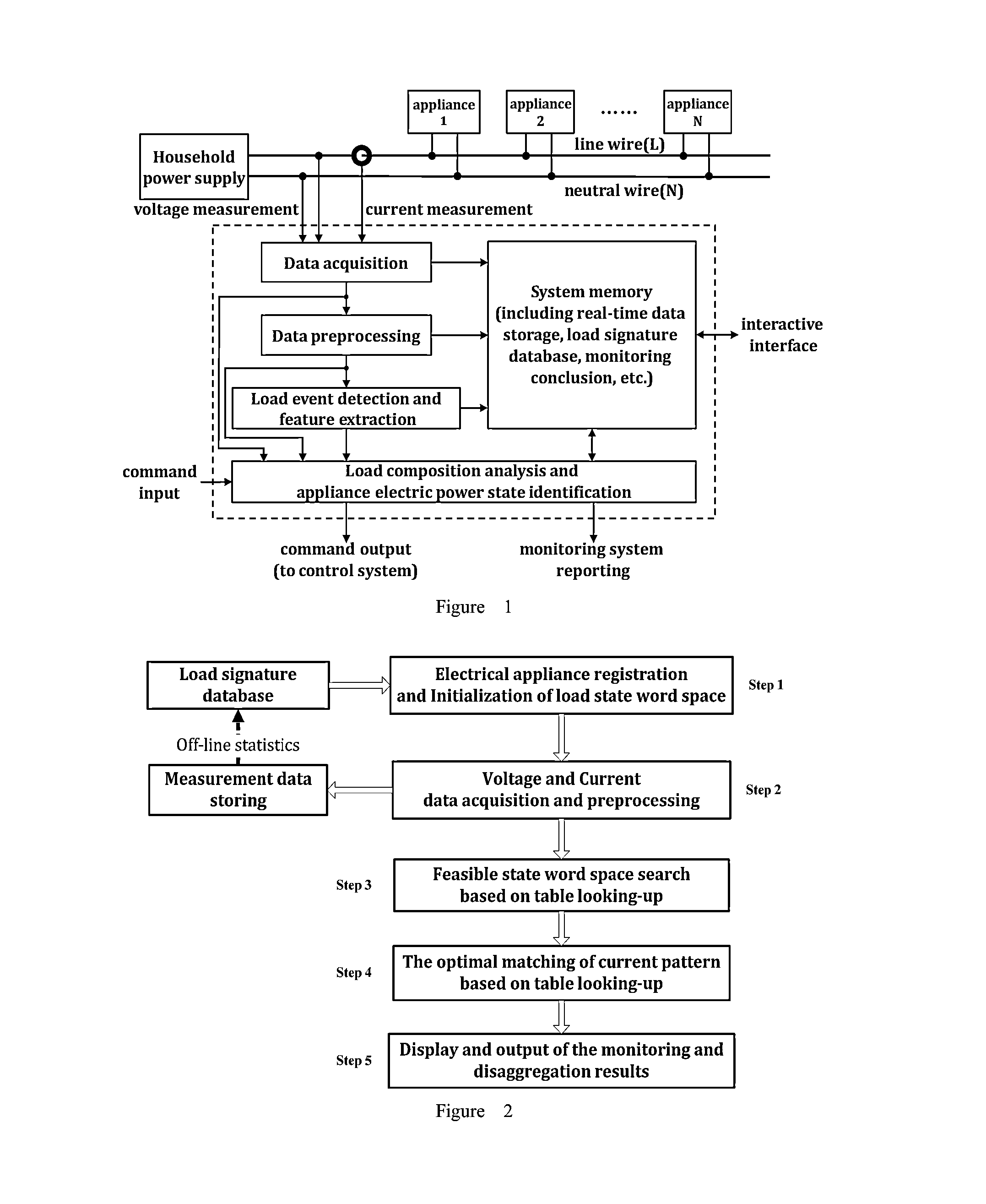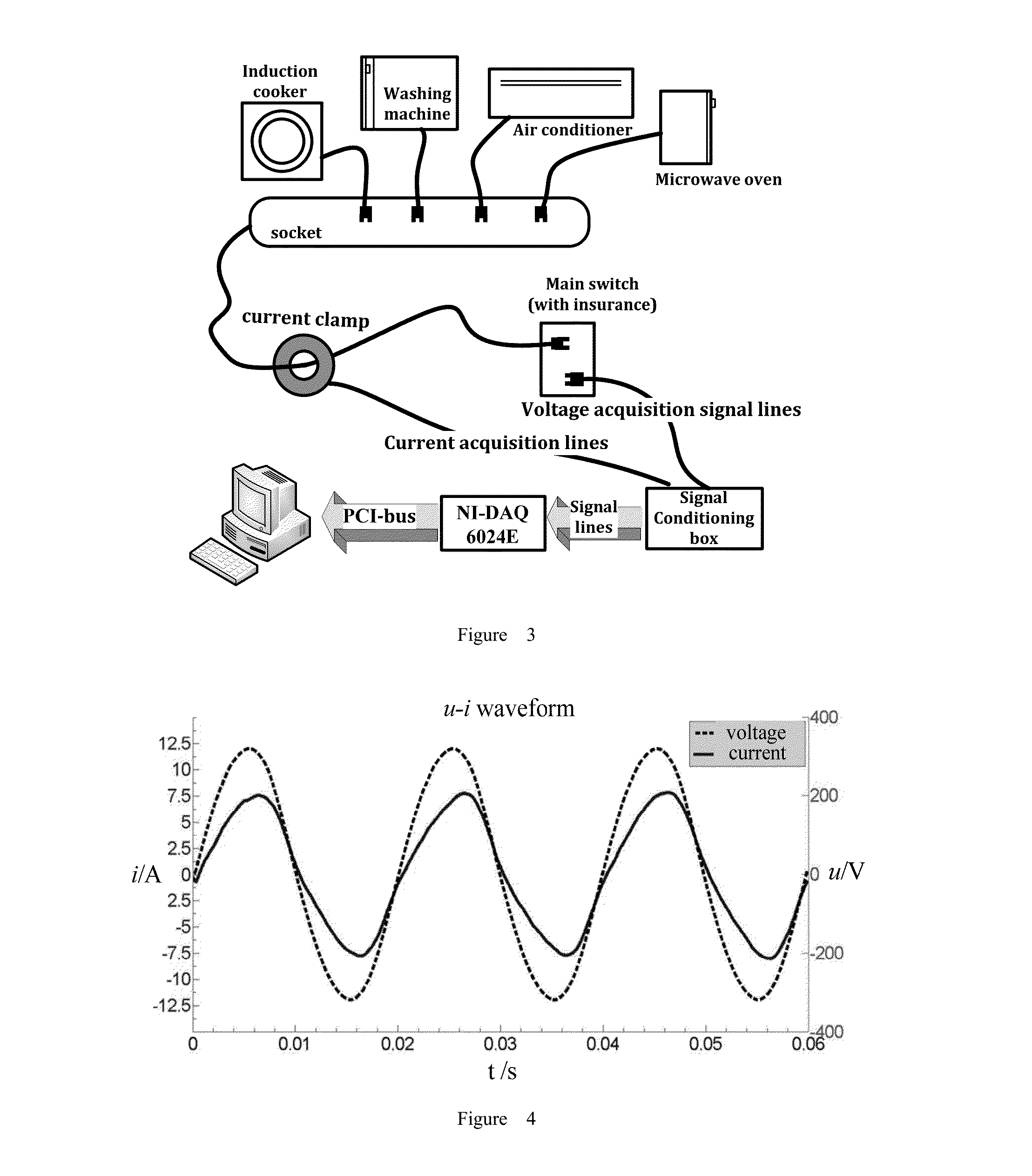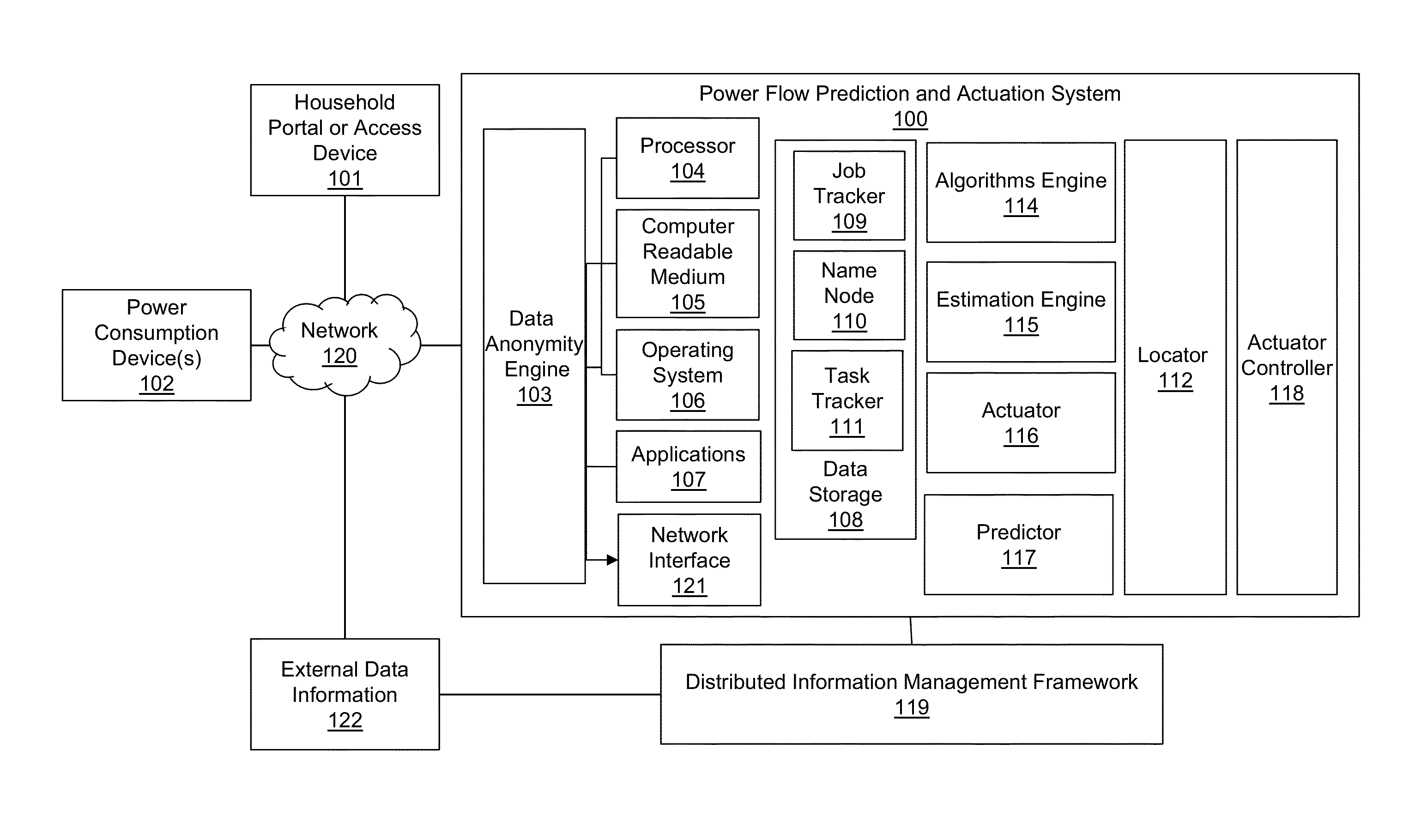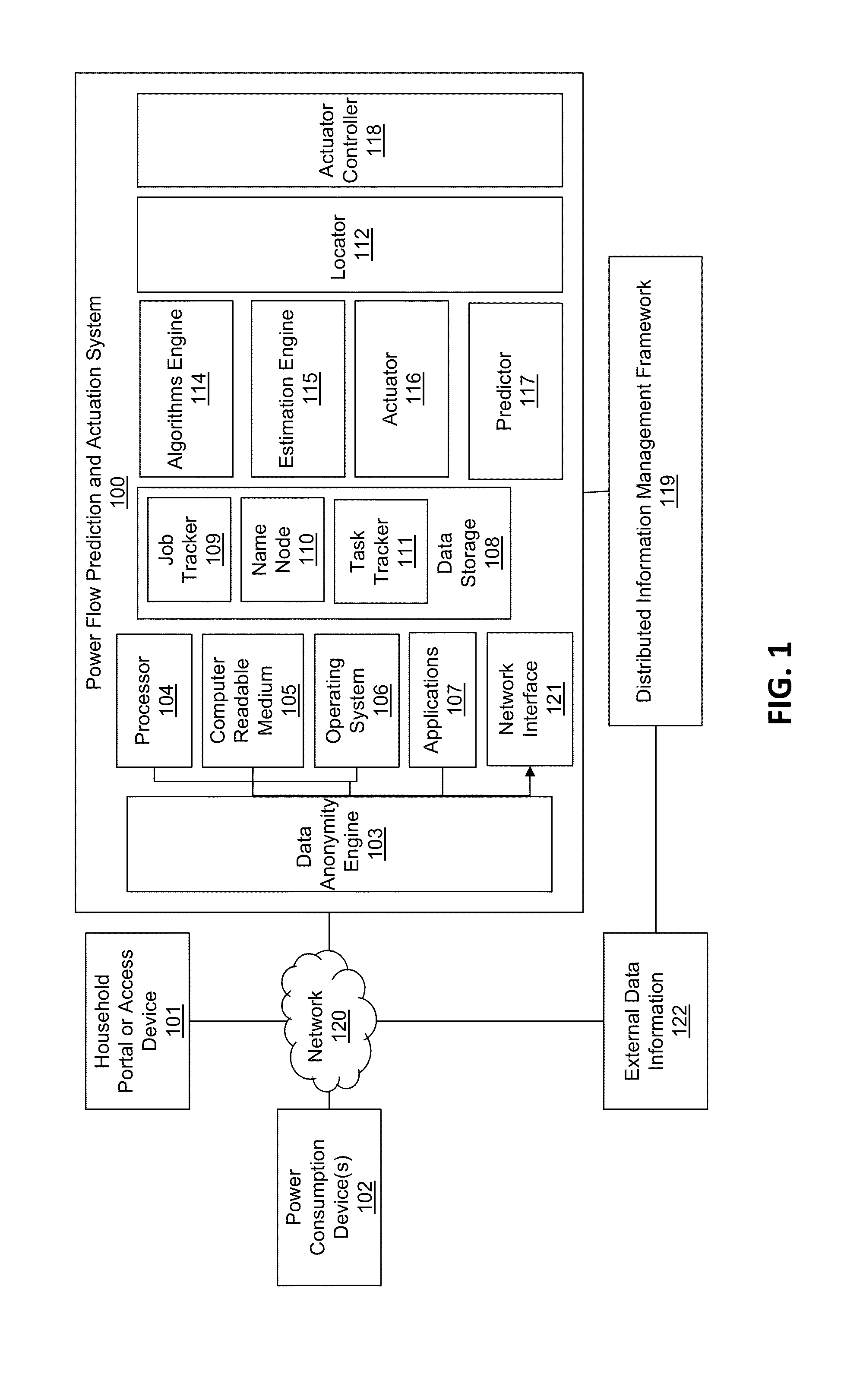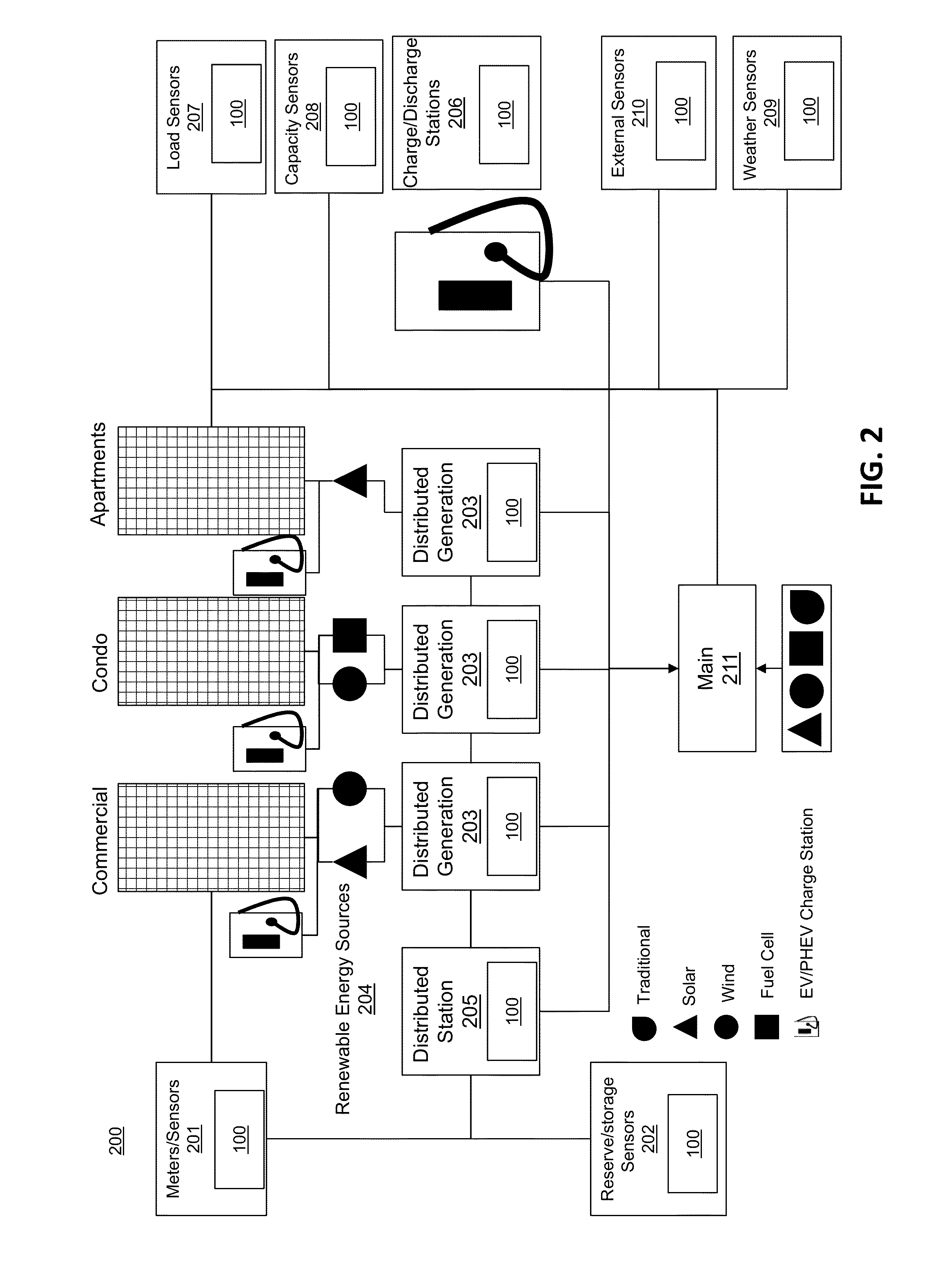Patents
Literature
Hiro is an intelligent assistant for R&D personnel, combined with Patent DNA, to facilitate innovative research.
7314results about "Power oscillations reduction/prevention" patented technology
Efficacy Topic
Property
Owner
Technical Advancement
Application Domain
Technology Topic
Technology Field Word
Patent Country/Region
Patent Type
Patent Status
Application Year
Inventor
Electrical power distribution control methods, electrical energy demand monitoring methods, and power management devices
InactiveUS7149605B2Mechanical power/torque controlLevel controlDistribution controlDistribution system
Owner:BATTELLE MEMORIAL INST
Method and apparatus for stabalizing power on an electrical grid using networked distributed energy storage systems
ActiveUS20140070617A1Batteries circuit arrangementsLoad forecast in ac networkElectric power transmissionEnergy control
Embodiments of the present invention include control methods employed in multiphase distributed energy storage systems that are located behind utility meters typically located at, but not limited to, medium and large commercial and industrial locations. These distributed energy storage systems can operate semi-autonomously, and can be configured to develop energy control solutions for an electric load location based on various data inputs and communicate these energy control solutions to the distributed energy storage systems. In some embodiments, one or more distributed energy storage systems may be used to absorb and / or deliver power to the electric grid in an effort to provide assistance to or correct for power transmission and distribution problems found on the electric grid outside of an electric load location. In some cases, two or more distributed energy storage systems are used to form a controlled and coordinated response to the problems seen on the electric grid.
Owner:STEM
Optimal virtual inertia control method based on virtual synchronous generator
ActiveCN105006834AFully reflect the inertia advantageImprove stabilityEnergy industrySingle network parallel feeding arrangementsVirtual synchronous generatorSimulation
The invention discloses an optimal virtual inertia control method based on a virtual synchronous generator in the distributed power generation control field. According to the method, a control strategy of a virtual synchronous generator is employed for a micro-grid inverter to organically combine three control degrees of freedom including a droop coefficient m, a virtual inertia J and a virtual damping D, and thus optimization of key parameters of the virtual synchronous generator is achieved. Through adoption of the method, the inertia advantage of a conventional synchronous generator is fully exhibited, and the stability and the inherent dynamic performance of an inverter are also taken into consideration. Moreover, the output power and frequency oscillation problems brought by virtual inertia are solved while the power and the capacity configuration of an energy storage apparatus are considered.
Owner:HEFEI UNIV OF TECH
A method and apparatus for an energy storage system to participate in power grid frequency control
ActiveCN105449701AHigh speedImprove the ability to resist load disturbanceAc network load balancingPower oscillations reduction/preventionControl powerTime delays
The invention provides a method and apparatus for an energy storage system to participate in power grid frequency control. The method comprises the steps of monitoring power grid frequency and charged states of an energy storage system in real time; if a power grid frequency offset exceeds a maximum frequency deviation, determining the energy storage system to participate into power grid primary frequency modulation according to deviation directions and the charged states; when a primary frequency modulation starting condition is satisfied, calculating virtual inertia response, a primary variable sagging control power adjustment value and a primary frequency modulation active control instruction; according to the primary frequency modulation active control instruction, carrying out primary adjusting of active power output of the energy storage system; starting secondary frequency modulation after time delay to determine a secondary frequency modulation instruction; according to the virtual inertia response, the primary variable sagging control power adjustment value and the secondary frequency modulation instruction, determining a secondary frequency modulation active control instruction; and according to the secondary frequency modulation active control instruction, carrying out secondary adjusting of the active output power of the energy storage system. Through adoption of the method and apparatus of the invention, coordination and cooperation between the energy storage system and other machine sets in aspects of primary frequency modulation and secondary frequency modulation can be well solved.
Owner:NORTH CHINA ELECTRICAL POWER RES INST +2
Frequency responsive charge sustaining control of electricity storage systems for ancillary services on an electrical power grid
ActiveUS7839027B2Circuit monitoring/indicationElectric power transfer ac networkElectricityState of charge
Systems, apparatus, and methods are provided for maintaining the state of charge of energy storage devices such as batteries, flywheel, capacitors, or other technologies that are energetically coupled with the electricity grid to support ancillary services. To reliably respond to requests to regulate the grid, the charge on the energy storage device is sustained or restored to a specified range in a manner that optimizes the readiness of the energy storage device to supply ancillary services in light of the condition of the grid. A state of charge (SOC) of the energy storage device and the grid frequency may be monitored. When a request from the operator to regulate the grid frequency is not being serviced, the charge of the energy storage device may be increased or decreased so that the charge may be sustained within the specific range. Once the SOC falls outside of the first range, charge may be added to or removed from the energy storage device when the grid frequency has appropriate values, e.g. if the grid frequency is respectively above a first setpoint or below a second setpoint.
Owner:FLUENCE ENERGY LLC
Electrical power distribution control methods, electrical energy demand monitoring methods, and power management devices
Electrical power distribution control methods, electrical energy demand monitoring methods, and power management devices are described. In one aspect, an electrical power distribution control method includes providing electrical energy from an electrical power distribution system, applying the electrical energy to a load, providing a plurality of different values for a threshold at a plurality of moments in time and corresponding to an electrical characteristic of the electrical energy, and adjusting an amount of the electrical energy applied to the load responsive to an electrical characteristic of the electrical energy triggering one of the values of the threshold at the respective moment in time.
Owner:BATTELLE MEMORIAL INST
Rapid power coordinative control method of new energy station participating primary frequency modulation
PendingCN107026461AImprove the level of economic operationIncrease access capacityPower oscillations reduction/preventionAc network voltage adjustmentElectric power systemNew energy
The invention relates to a rapid power coordinative control method of a new energy station participating primary frequency modulation. A rapid power coordinative control system is built in a new energy plant station, the system is used for receiving a rapid power regulation instruction of a stability-control host station system and an AGC / AVC planning regulation instruction of a dispatching center, and can also be used for locally, automatically and rapidly calculating a target power in an off-line way, decomposing the target power and directly issuing the target power to various power generation units such as photovoltaic inverters and draught fans in the station through an Ethernet network, so that active power and reactive power regulation response of the new energy station within 100 milliseconds is achieved, the primary frequency modulation of a power system is participated to achieve stable system frequency and voltage, and the stability of the system and the economic running level of the new energy power station are improved.
Owner:NR ELECTRIC CO LTD +2
Unbalanced voltage compensation method, unbalanced voltage compensator, three-phase converter control method, and controller of three-phase converter
ActiveUS20110134669A1Ac-dc conversion without reversalConversion with intermediate conversion to dcControl signalThree phase converter
In compensating for unbalanced voltages of three-phase AC, instantaneous values of wye-phase voltages 120° out of phase with each other are obtained from line voltages using a centroid vector operation, symmetrical component voltages of three-phase balanced system are obtained from the instantaneous values of wye-phase voltages, a compensation signal to compensate unbalanced voltages of three-phase AC is generated from zero-phase-sequence voltage of symmetrical component voltages is generated, wye-phase voltages 120° out of phase, the unbalanced voltages of which are compensated, are obtained from the compensation signal and the symmetrical component voltages, a control signal of a PWM conversion is generated based on the compensated wye-phase voltage compensated, and the unbalanced voltages of three-phase AC are compensated. The amount of time to compensate the three-phase unbalanced voltages required for detecting an unbalance of voltages and generating a control signal can be shortened.
Owner:KYOSAN ELECTRIC MFG CO LTD
Resistive torsional mode damping system and method
InactiveUS20070279012A1Emergency protective circuit arrangementsDynamo-electric converter controlPower ratingTorsional vibration
A resistive torsional mode damping system for a shaft of a machine includes: a sensor configured for sensing a signal representative of torque on the shaft; a controller configured for using the sensed signal for detecting a presence of a torsional vibration on the shaft corresponding to a natural frequency of the shaft and for generating control signals for damping the torsional vibration; and a damper including a damping converter and resistor coupled to a DC output of the damping converter, the damping converter being coupled to the machine through a power bus and having a power rating on the order of less than or equal to about five percent of a nominal power of the machine.
Owner:GENERAL ELECTRIC CO
Wide area transmission control of windfarms
ActiveUS20100109447A1Improve stabilityMaintain stabilityWind motor controlBase element modificationsElectricityWide area
A means for improving the dynamic and voltage stability of utility transmission systems is provided by the coordinated control of windfarms. Electrical measurements of the system, which may include synchronized phasors, are supplied to one or more windfarm controllers, which in turn perform a regulation function improving the damping of electromechanical oscillations or voltage performance in the utility system. The control structure is of a decentralized nature, which maintains operation in case of communication failures. The benefits are improved damping to electromechanical oscillations and better voltage performance and ultimately increased utilization of assets, reducing the install additional network assets.
Owner:GENERAL ELECTRIC CO
Parallel-connected inverters with separate controllers having impedance current regulators
InactiveUS7145266B2Batteries circuit arrangementsAc-dc conversion without reversalElectric power systemElectric network
A control system (20) for a power converter (22) designed to convert DC power from a source (30) such as a battery, flywheel or fuel cell into AC power. The control system includes an impedance current regulator (106) for providing an impedance current signal to a summing unit (110) where it may be combined with real and reactive current command signals provided from respective sources (62, 64). The resultant current signal provided by the summing unit is provided to a voltage correction unit (112) that uses the resultant current signal in developing a correction voltage signal provided to the power converter. The correction voltage signal contains information used by the power converter in adjusting the real and reactive currents in its output AC power based on the ability of the AC power network to accept changes in current. Multiple power converters having the control system of the present invention may be connected in parallel to a single AC load or multiple AC loads, without the need for a separate control system interconnecting the power converters. The control system may be advantageously incorporated into a distributed generation network and in uninterruptible power systems, whether or not such systems are included in a distributed generation network.
Owner:WEG ELECTRIC CORP
Power system low-frequency oscillation mechanism analysis method based on micro-disturbance signal oscillation mode recognition
ActiveCN102055201AExplain Oscillation PhenomenaPower oscillations reduction/preventionFault locationStatistical analysisTime segment
The invention discloses a power system low-frequency oscillation mechanism analysis method based on micro-disturbance signal oscillation mode recognition. The method comprises the following steps of: providing a basis for judgment of oscillation mechanism types of power grid low-frequency oscillation accidents by using oscillation components provided by micro-disturbance recognition result in the process of a low-frequency oscillation accident; timely discovering a system running weak link and a potential oscillation source by performing statistic analysis on an entire-grid low-frequency oscillation mode oscillation frequency and damping ratio result which is calculated by micro-disturbance recognition in the given running time period; and establishing a corresponding relation between entire-grid oscillation mode characteristic change and system running condition parameter change to provide a basis for system running adjustment by performing multi-variable association analysis on the entire-grid low-frequency oscillation mode oscillation frequency and damping ratio result which is calculated by micro-disturbance recognition in the given running time period and the system running condition parameter.
Owner:BEIJING SIFANG JIBAO AUTOMATION +1
Co-scheduling strategy for multiple energy storage in distributed light storage micro-gird system
InactiveCN104184159AKeep constantAc network load balancingPower oscillations reduction/preventionCapacitancePower grid
Provided is a co-scheduling strategy for multiple energy storage in a distributed light storage micro-gird system. The based multiple energy storage adopts a two-stage converter topology structure comprising a preceding-stage bidirectional DC / DC conversion unit and a back-stage DC / AC conversion unit. A bidirectional DC / DC conversion unit for a storage battery and a bidirectional DC / DC conversion unit for a super capacitor share a DC bus, and are connected with a load and a large power grid through the DC / AC conversion unit and via an LC filter. The co-scheduling method of a two-stage converter for multiple energy storage is characterized by when the distributed light storage micro-gird system is in a grid-connected mode, carrying out double filter control on the two-stage converter for multiple energy storage, controlling the energy-storage element to carry out smooth photovoltaic output power fluctuation, and carrying out adjustment on filtering parameters according to the charge state of the super capacitor and the charge state of a storage battery; and when the distributed light storage micro-gird system is in an off-grid state, controlling the energy-storage element to provide voltage and frequency support to the distributed light storage micro-gird system, the distributed light storage micro-gird system jointly providing power for the load, wherein the energy-storage element is the storage battery and the super capacitor.
Owner:GUANGDONG YUANJING ENERGY
Controller and method for simulating active power frequency of double-fed induction generator (DFIG) in combination with inertia and over speed
ActiveCN104917201APerfect FM functionThe FM process is stableSingle network parallel feeding arrangementsPower oscillations reduction/preventionElectricityTime delays
The invention discloses a controller and method for simulating the active power frequency of a double-fed induction generator (DFIG) in combination with inertia and over speed. The controller comprises a frequency deviation detecting module, a blocking module, a regulating variable setting module, a time delay module and a speed protecting module which are connected in sequence, wherein a real-time grid frequency signal and a frequency setting value are respectively input in the frequency deviation detecting module to obtain the frequency deviation signal of the grid at that time; the frequency deviation signal enters the regulating variable setting module through the blocking module, and the regulating variable setting module obtains a speed regulating variable according to the frequency deviation signal; and the speed protecting module enables the DFIG unit to exit frequency modulation under an abnormal speed condition, and can put into the frequency modulation again after time delay for a period of time. The controller has the beneficial effects that large-scale double-fed wind power integration takes the place of a conventional synchronous generator to cause that the system inertia is reduced and thus the transient stability of system frequency is worsened, and the comprehensive frequency controller provided by the invention can effectively solve the problem.
Owner:SHANDONG UNIV
Energy conversion systems with power control
In one embodiment, a power conversion system includes a controller to provide power control to a converter, and a distortion mitigation circuit. In another embodiment, a system includes a converter to transfer power between a power source and a load having fluctuating power demand, and a controller to provide power control, where the controller may selectively disable the power control. In another embodiment, a power conversion system includes a controller to generate a drive signal to provide power control to a power path in response to a sense signal from the power path, where the sense signal is taken from other than the input of the power path, or the drive signal is applied to the power path at other than a first power stage.
Owner:ENPHASE ENERGY
Integrated control method for micro-grid load and energy accumulation
InactiveCN103311940AReduce Oscillating PhenomenaGood dynamic response speedEnergy industryAc network load balancingMicrogridEngineering
The invention discloses a high-precision load control method based on mirror image droop and virtual inertia control. Controllable loads and energy accumulation in a micro-grid are integrally controlled, load control precision is increased, purposes of the controllable loads are expanded, micro-grid dependence on energy accumulation power and capacity is relieved, energy accumulation configuration is lowered, a 'negative power source' participates in peer-to-peer control of a distributed power source during micro-grid operation, and 'general energy accumulation' participates in micro-grid emergency control under fault conditions such as island converting to grid-connection. By the method, stable micro-grid frequency is achieved, tie line power fluctuation is restrained, and accordingly safe and stable operation capability of the micro-grid is increased.
Owner:SOUTHEAST UNIV
Nonlinear contingency screening for voltage collapse
InactiveUS6496757B1Screening contingencies fasterMechanical power/torque controlLevel controlSaddle-node bifurcationElectric power system
A method for estimating the severity of generator unit outage and multi-terminal branch outage contingencies with respect to voltage collapse in large-scale electric power systems which includes the steps of estimating a post-contingency saddle-node bifurcation induced voltage collapse point of an electric power system following a set of generator unit outages and / or a set of branch outages and calculating a distance to collapse of said power system. The post-contingency voltage collapse point is determined by application of a nonlinear contingency screening method.
Owner:ILLINOIS INSTITUTE OF TECHNOLOGY
Stability prediction for an electric power network
InactiveUS7096175B2Overcome disadvantagesMechanical power/torque controlData processing applicationsTraffic capacityPower grid
A method, device and computer program product for the prediction of the stability of an electric power network, where the method is executed after a fault or contingency has occurred, and comprises the steps of (a) during a time interval in which the network is in a transient condition, determining for at least one load connected to the electric power network, at least one parameter describing an estimated steady state behavior of the load, (b) executing a load flow calculation for the electric power network using the least one parameter describing the estimated steady state behavior the at least one load, (c) determining, if the load flow calculation indicates stability has a solution, that a future stability of the electrical power network exists, or, if the load flow calculation indicates instability does not have a solution, that a future stability of the electrical power network does not exist.
Owner:ABB RES LTD +1
Multi-use energy storage for renewable sources
ActiveUS20110074151A1Wind motor controlEmergency protective circuit arrangementsTurbine bladePower grid
Owner:GENERAL ELECTRIC CO
Resistive torsional mode damping system and method
InactiveUS7423411B2Emergency protective circuit arrangementsDynamo-electric converter controlElectrical resistance and conductanceControl signal
A resistive torsional mode damping system for a shaft of a machine includes: a sensor configured for sensing a signal representative of torque on the shaft; a controller configured for using the sensed signal for detecting a presence of a torsional vibration on the shaft corresponding to a natural frequency of the shaft and for generating control signals for damping the torsional vibration; and a damper including a damping converter and resistor coupled to a DC output of the damping converter, the damping converter being coupled to the machine through a power bus and having a power rating on the order of less than or equal to about five percent of a nominal power of the machine.
Owner:GENERAL ELECTRIC CO
Underfrequency Load Shedding Protection System
InactiveUS20070222294A1Stable managementFast sheddingPower network operation systems integrationDc source parallel operationLoad SheddingEngineering
An underfrequency load shedding protection system for stably managing a power system by recovering a power system frequency to within a predetermined range when the power system frequency drops. An underfrequency level detection unit judges an underfrequency level of the power system frequency when the power system frequency drops resulting from power generation shortage in the power system and a load shedding unit sequentially sheds loads determined in advance based on a staying time when the power system frequency stays at any one of the underfrequency levels judged by the underfrequency level detection unit and sheds on this occasion more loads quickly when the underfrequency level at which the power system frequency stays is large.
Owner:THE TOKYO ELECTRIC POWER CO INC
Energy storage system control strategy oriented to power grid AGC frequency modulation
ActiveCN107069789AIncrease powerStable powerAc network load balancingPower oscillations reduction/preventionAutomotive engineeringCharge and discharge
The invention relates to an energy storage system control strategy oriented to power grid AGC frequency modulation, characterized by comprising the following steps of battery energy storage involving in AGC frequency modulation structure design and of SOC layered control strategy. According to the invention, starting from the perspective of power grid AGC frequency modulation control, safety factors are designed for the battery energy storage operation cycle; the energy storage system's capacity and power restriction are fully considered; through the energy management to the energy storage system and based on the SOC layered control strategy, the power charging and discharging frequency modulation power for the energy storage system is determined, which means that while the power grid frequency becomes more stable, the energy storage system is steered clear of excessively charging and discharging. The method of the invention is scientific and reasonable. With strong practicability, the method can also achieve good performances.
Owner:NORTHEAST DIANLI UNIVERSITY +1
Power Oscillation Damping Employing a Full or Partial Conversion Wind Turbine
ActiveUS20110109085A1Single network parallel feeding arrangementsMachines/enginesElectricityControl power
A wind turbine (8) for controlling power oscillations on a grid of a power system (28). The wind turbine (8) comprises rotor blades (12) for turning by the wind, an electric generator (20) rotatably coupled to the rotor blades (12), a power converter (24) responsive to electricity generated by the electric generator (20), the power converter (24) for converting the generated electricity to a frequency and voltage suitable for supply to the power grid (28), and the power converter for regulating voltage on the grid supplemented by modulating real power for damping the power oscillations.
Owner:SIEMENS GAMESA RENEWABLE ENERGY AS
Distributed generation system and power system stabilizing method
InactiveUS20070097565A1Suppresses voltage fluctuationsSingle network parallel feeding arrangementsDynamo-electric converter controlElectric power systemEngineering
A distributed generation system that can suppress a voltage fluctuation caused by a distributed generation by an apparatus of a small power capacity in the distributed generation itself and stabilize the power system voltage without inserting interharmonic voltage or current into the power system and without interference among a plurality of distributed generations. Parameter α(t) varying with time is estimated based on fluctuating component ΔP of the active power P generated by the distributed generation and the voltage fluctuating component ΔV attributable to the distributed generation developed at the point of connection between the distributed generation and power system. The distributed generation produces reactive power Q=−αP or Q=−αΔP, to thereby suppresses only the voltage fluctuation of the power system attributable to the distributed generation.
Owner:HITACHI LTD
Mixed micro-grid system based on power electronic transformer and power control method of system
ActiveCN104852406AFrequency stabilityStabilize bus voltageLoad balancing in dc networkSingle network parallel feeding arrangementsTransformerMicro grid
The invention provides an AC and DC mixed micro-grid system based on a power electronic transformer and a power control method of the system. The system comprises a main grid, an AC micro grid, a DC micro grid and the power electronic transformer. According to the operation states and power requirements of the AC micro grid and the DC micro grid, the power electronic transformer adjusts the power of the AC micro grid and the DC micro grid in a mixed sagging method. Thus, the power of the main grid, the AC micro grid and the DC micro grid can be rapidly and accurately adjusted, it is ensured that the frequency of the AC micro grid and the bus voltage of the DC micro grid are stable, and stable operation of the AC and DC mixed micro-grid after access of distributed energy is realized.
Owner:HUNAN UNIV
Application of phasor measurement units (PMU) for controlled system separation
This invention relates to a PMU-based controlled system separation method to protect against a catastrophic blackout. The method includes the steps of performing an offline analysis of an electrical transmission network to partition generators into a number of coherent groups, performing online monitoring of the transmission network to determine a separation interface and frequencies and damping ratios of dominant inter-area modes, and estimating the risk of system separation to perform real-time control.
Owner:ELECTRIC POWER RES INST INC
Method and device for assessing the stability of an electric power transmission network
InactiveUS6754597B2Aggravating the condition of the network even furtherLimit its operationMechanical power/torque controlData processing applicationsElectric power transmissionTime information
Owner:ABB POWER GRIDS SWITZERLAND AG
Rotor Angle Stability Prediction Using Post Disturbance Voltage Trajectories
ActiveUS20110022240A1Level controlEmergency protective circuit arrangementsDisturbance voltageSupport vector machine classifier
A new method for predicting the rotor angle stability status of a power system immediately after a large disturbance is presented. The proposed two stage method involves estimation of the similarity of post-fault voltage trajectories of the generator buses after the disturbance to some pre-identified templates and then prediction of the stability status using a classifier which takes the similarity values calculated at the different generator buses as inputs. The typical bus voltage variation patterns after a disturbance for both stable and unstable situations are identified from a database of simulations using fuzzy C-means clustering algorithm. The same database is used to train a support vector machine classifier which takes proximity of the actual voltage variations to the identified templates as features.
Owner:RAJAPAKSE ATHULA
Current Pattern Matching Method for Non-Intrusive Power Load Monitoring and Disaggregation
ActiveUS20150309092A1Low computing performanceEfficient use ofElectric devicesCurrent/voltage measurementPattern matchingData acquisition
A harmonic-characteristics based current pattern matching method for the non-intrusive power load monitoring and disaggregation is provided in this present invention, on the basis of establishing the load signature database, which comprises electrical appliance registration and load state word space initialization, data acquisition and data preprocessing, feasible state word space search based on table looking-up, the optimal matching of current pattern, and display and output of the monitoring and disaggregation results. The method improves the accuracy of disaggregation, and can achieves exact identification of operating states of appliances, and also can reduce the cost.
Owner:TIANJIN UNIV
Enchanced grid reliability through predictive analysis and dynamic action for stable power distribution
ActiveUS20140281645A1Improve stabilityDetermines power consumptionData processing applicationsPower network operation systems integrationPower gridEvent data
A power grid stabilizing system may include a processor and a network interface executable by the processor to monitor for new event data from power consumption devices over a network. The new event data may include information such as device location, operating information, and sensor data. The system may include an estimation engine operable to analyze the new event data to determine power consumption behavior of a consumption device, and a predictor operable to anticipate an occurrence of a future event responsive to the analysis. The predictor may also predict the outcome of the future event based on analysis of the new event data in relation to past behavior data of the consumption device. The network interface may further communicate the anticipated future event and the predicted outcome to one or more of the other consumption devices.
Owner:ACCENTURE GLOBAL SERVICES LTD
Features
- R&D
- Intellectual Property
- Life Sciences
- Materials
- Tech Scout
Why Patsnap Eureka
- Unparalleled Data Quality
- Higher Quality Content
- 60% Fewer Hallucinations
Social media
Patsnap Eureka Blog
Learn More Browse by: Latest US Patents, China's latest patents, Technical Efficacy Thesaurus, Application Domain, Technology Topic, Popular Technical Reports.
© 2025 PatSnap. All rights reserved.Legal|Privacy policy|Modern Slavery Act Transparency Statement|Sitemap|About US| Contact US: help@patsnap.com
